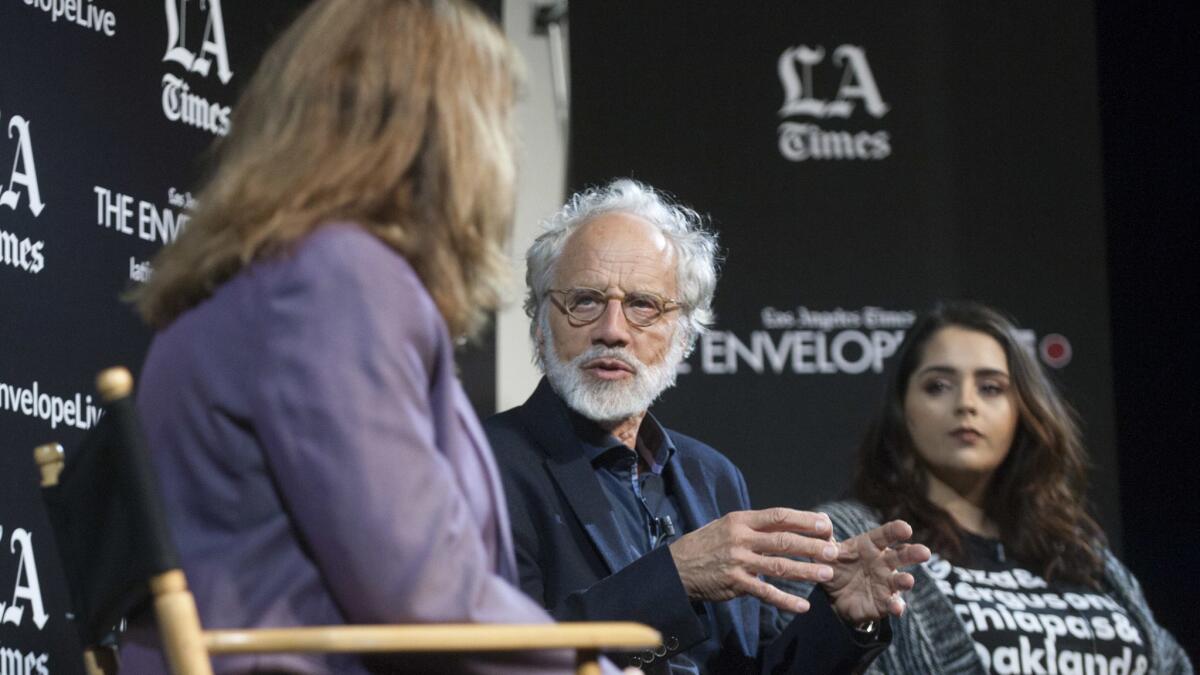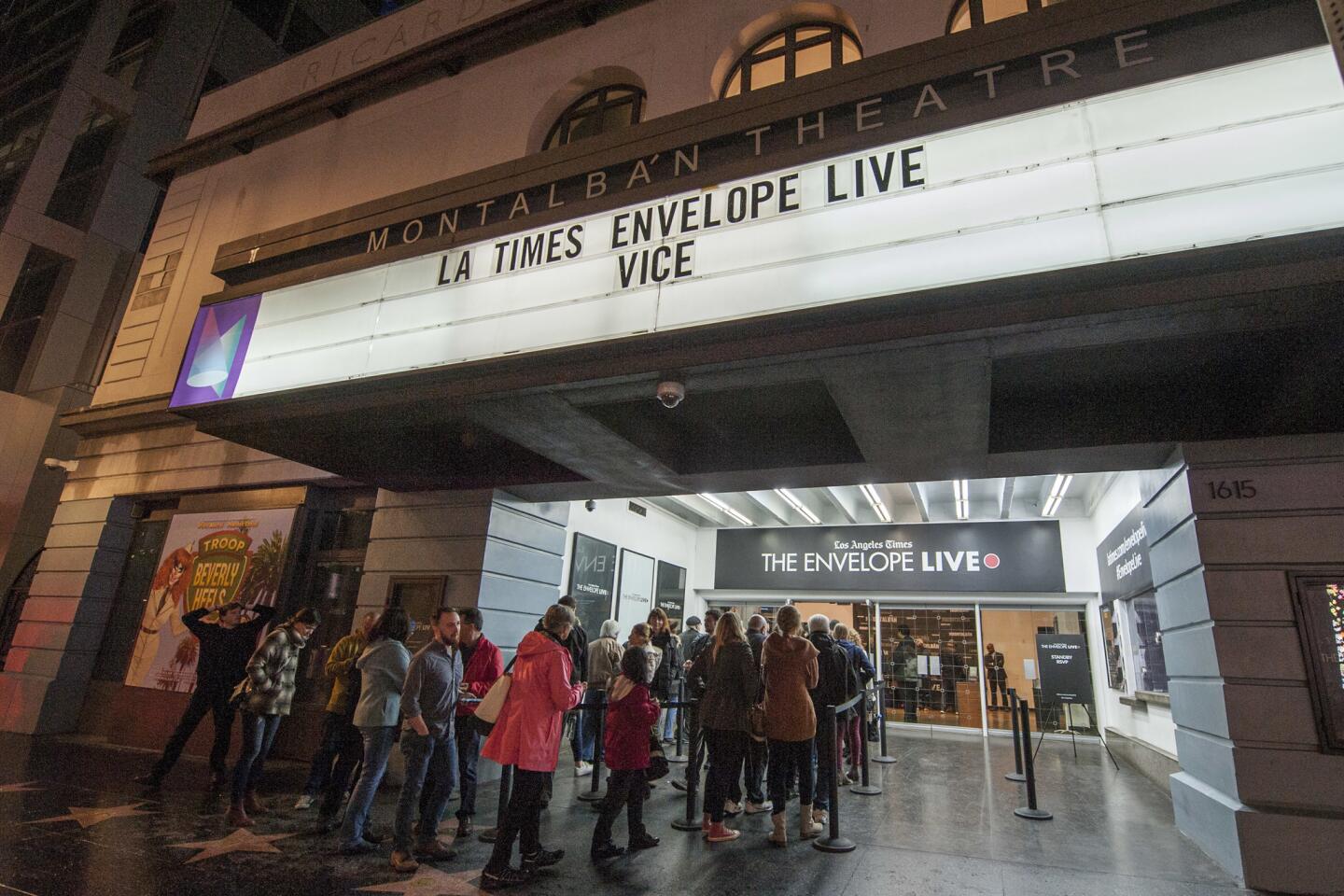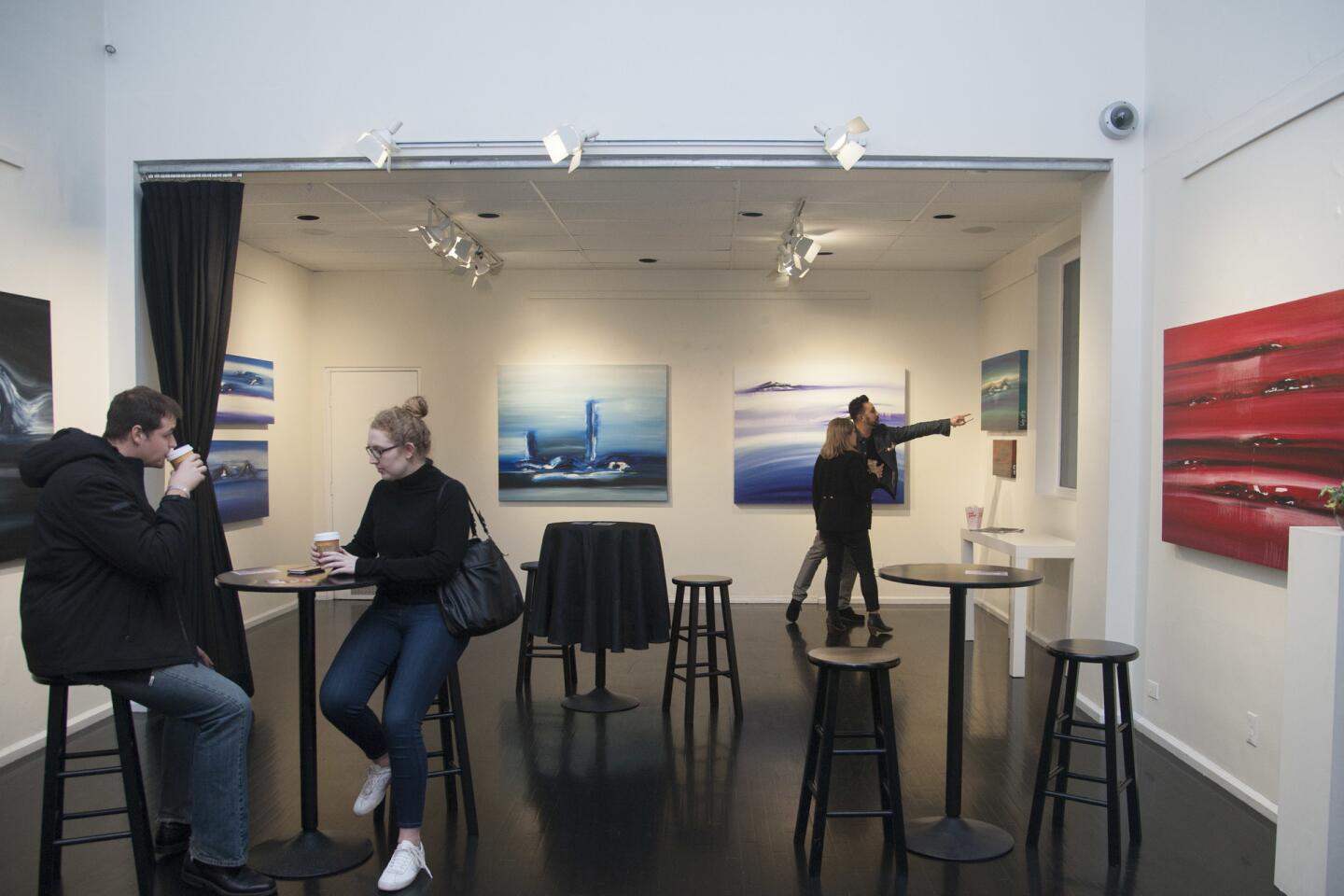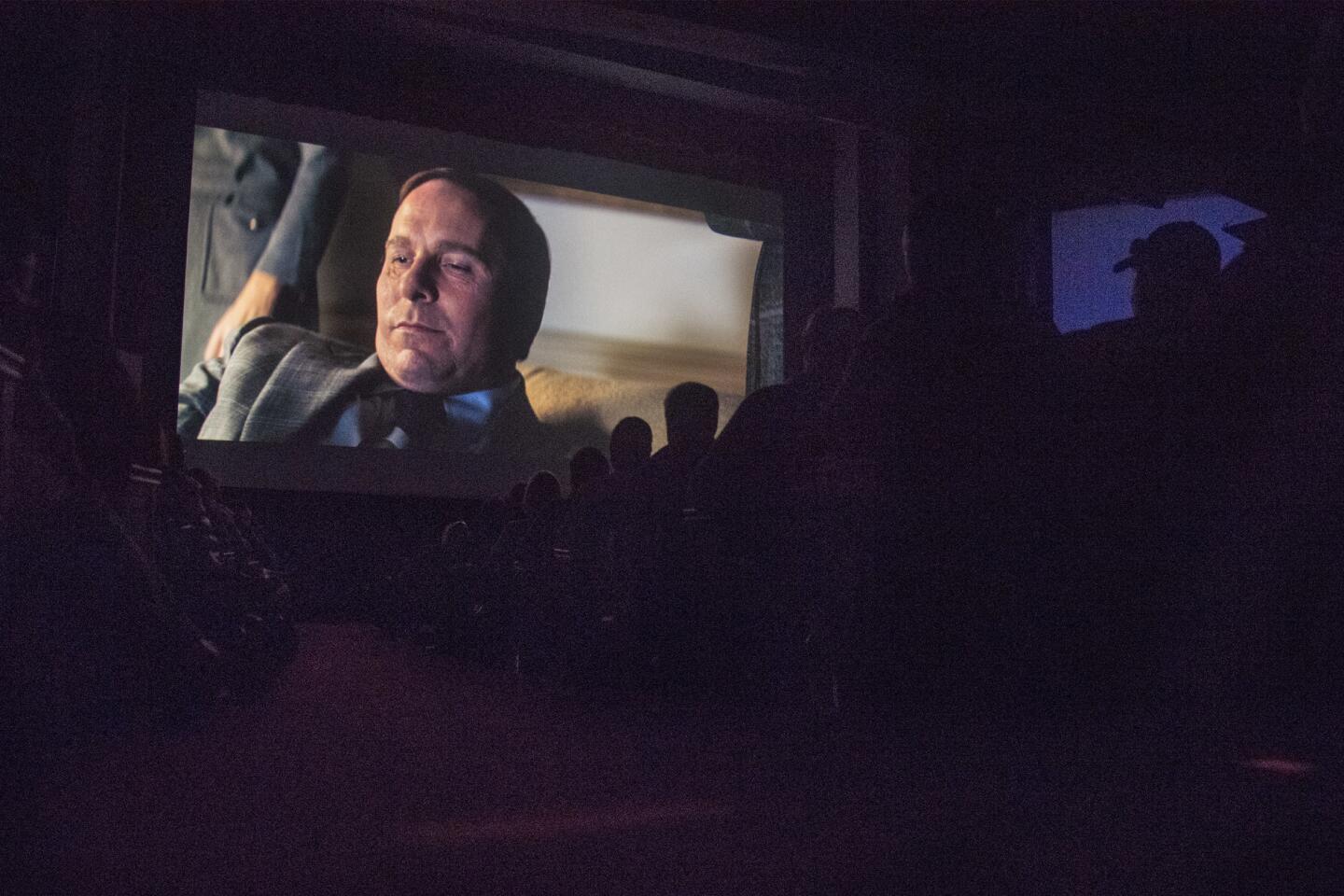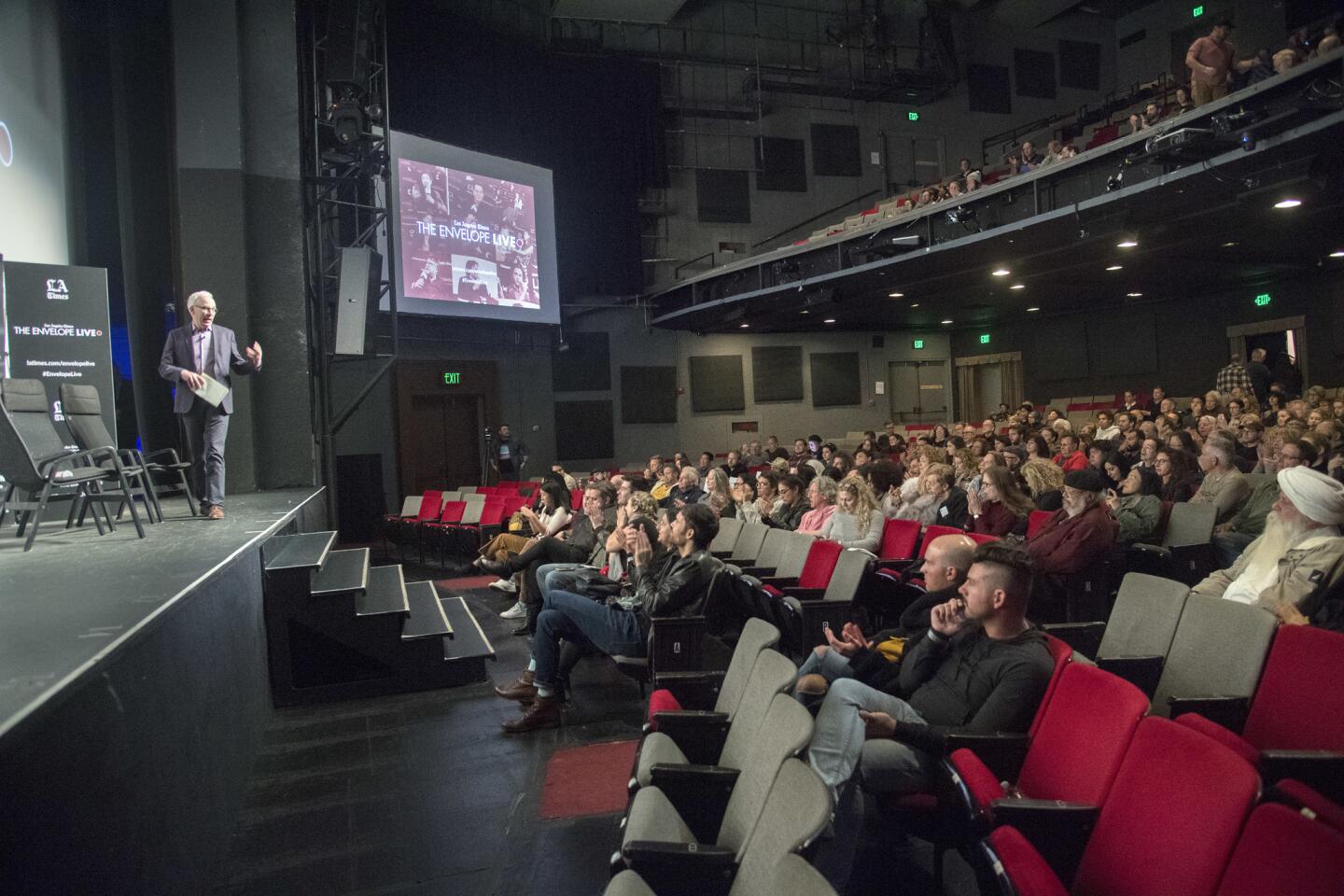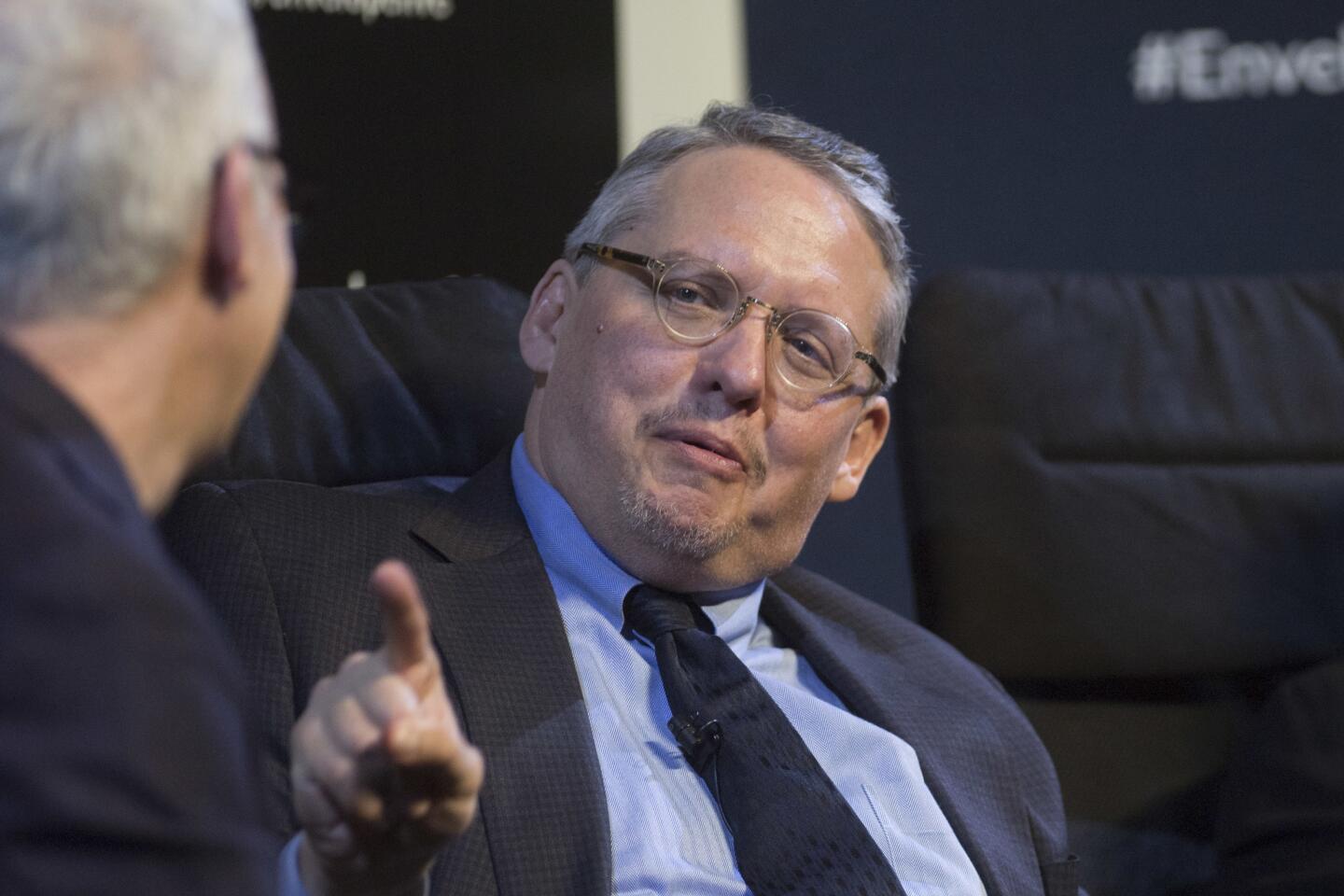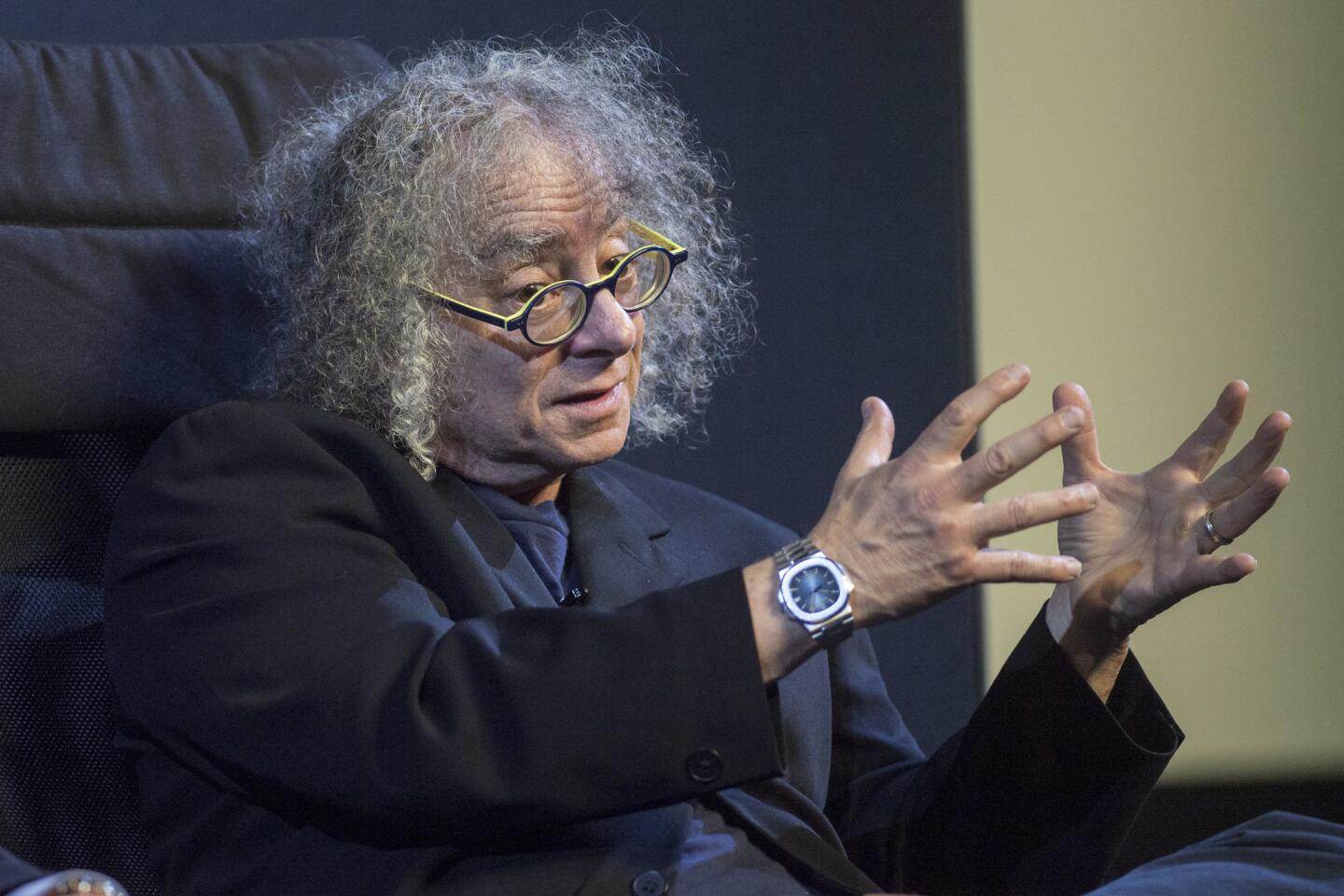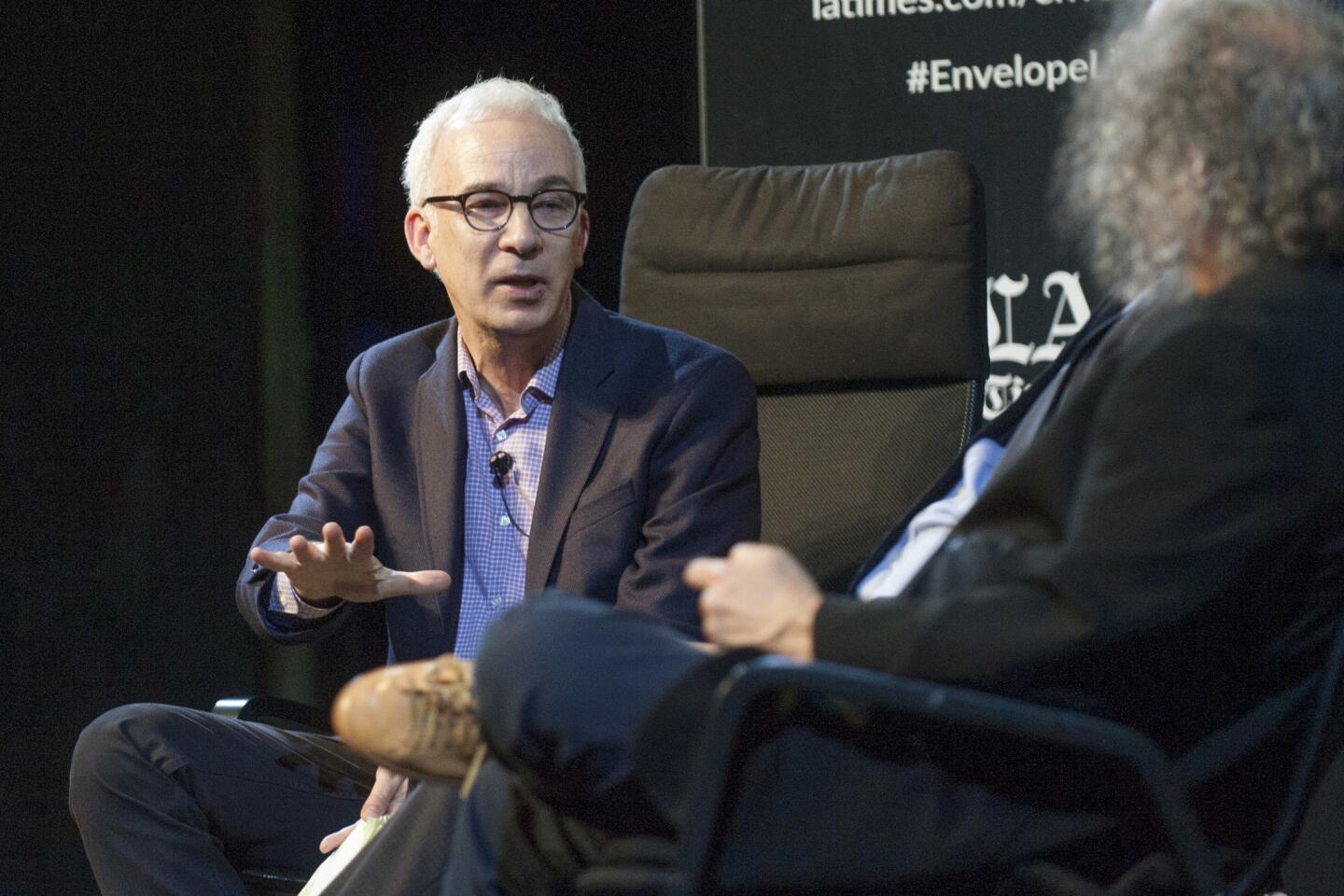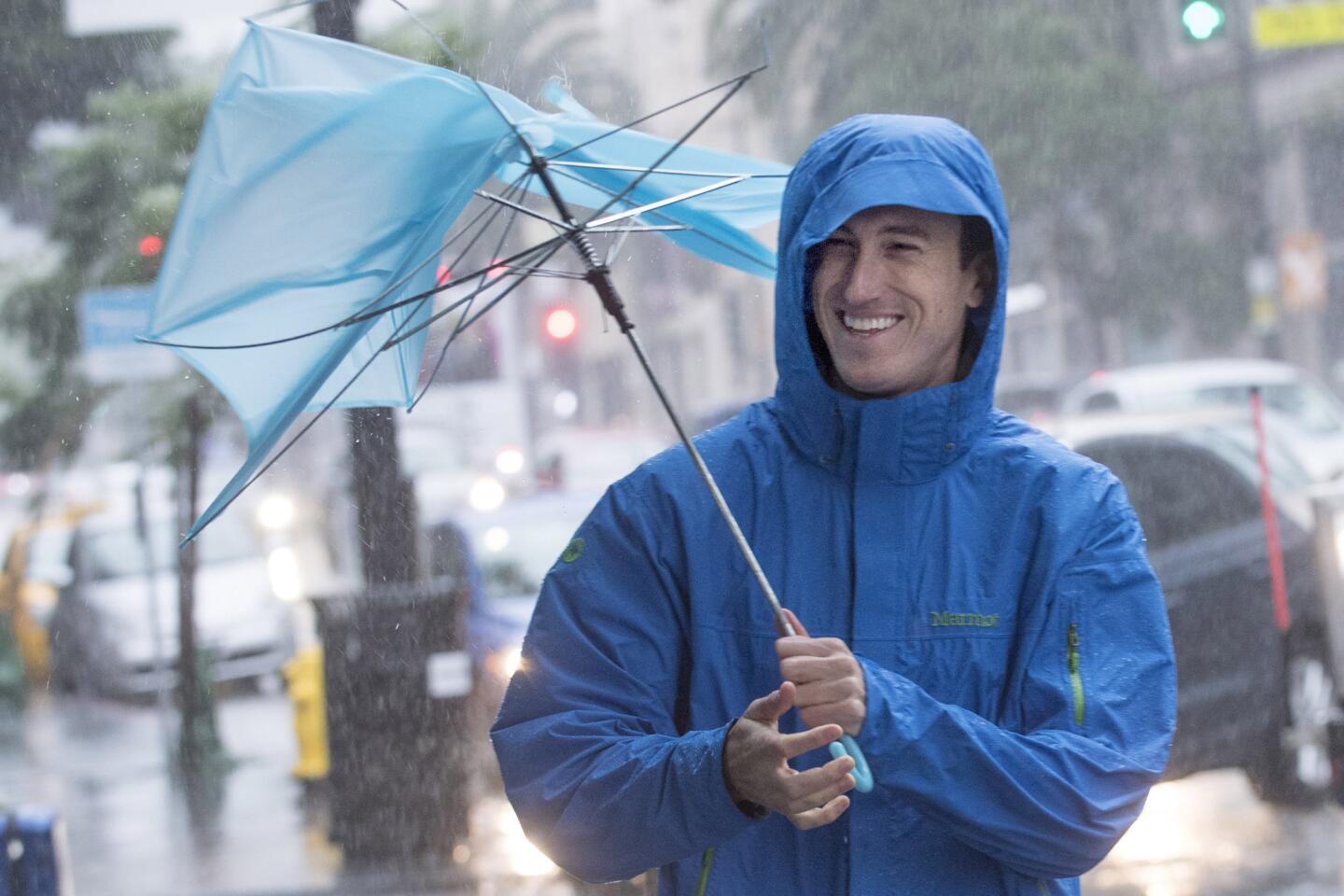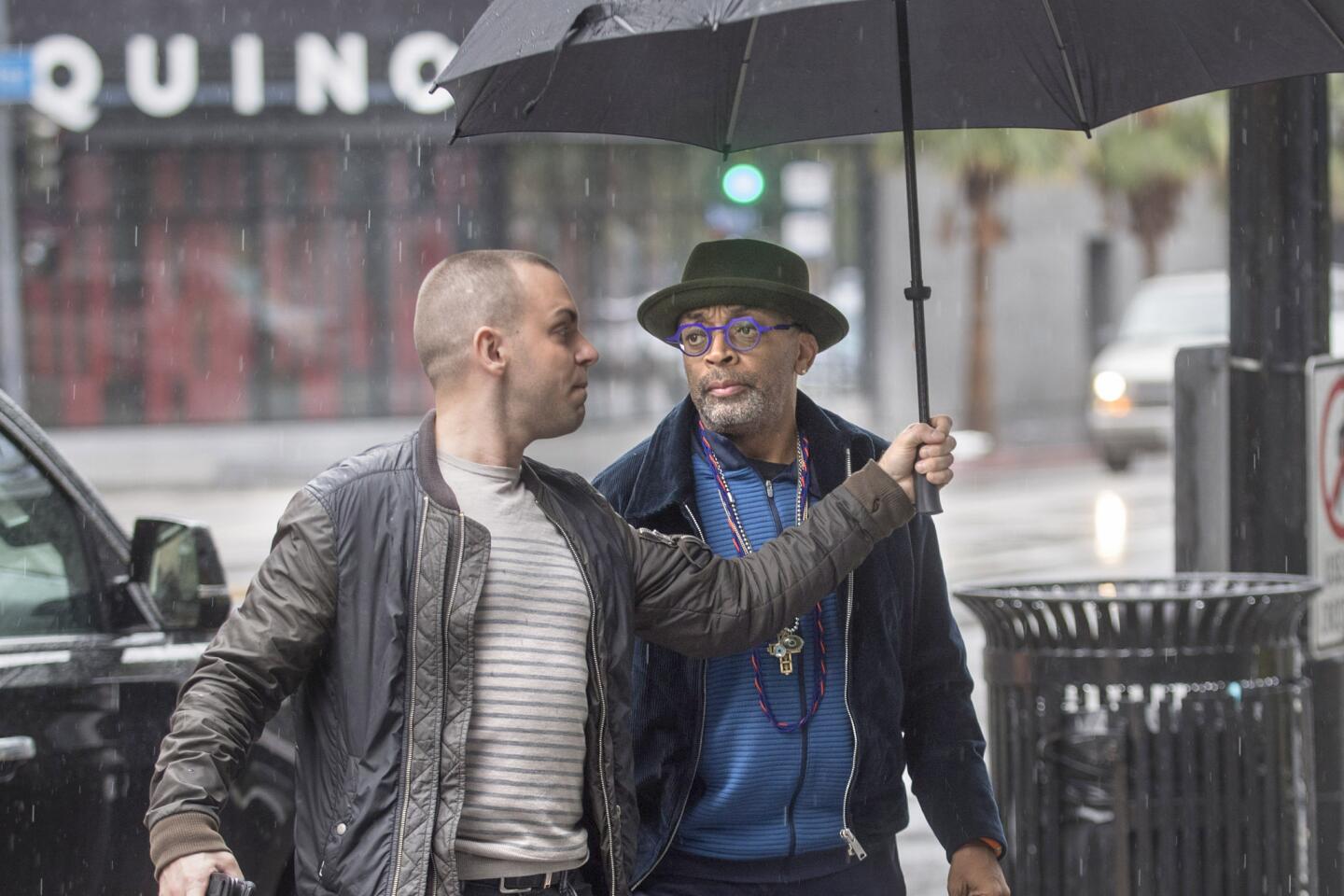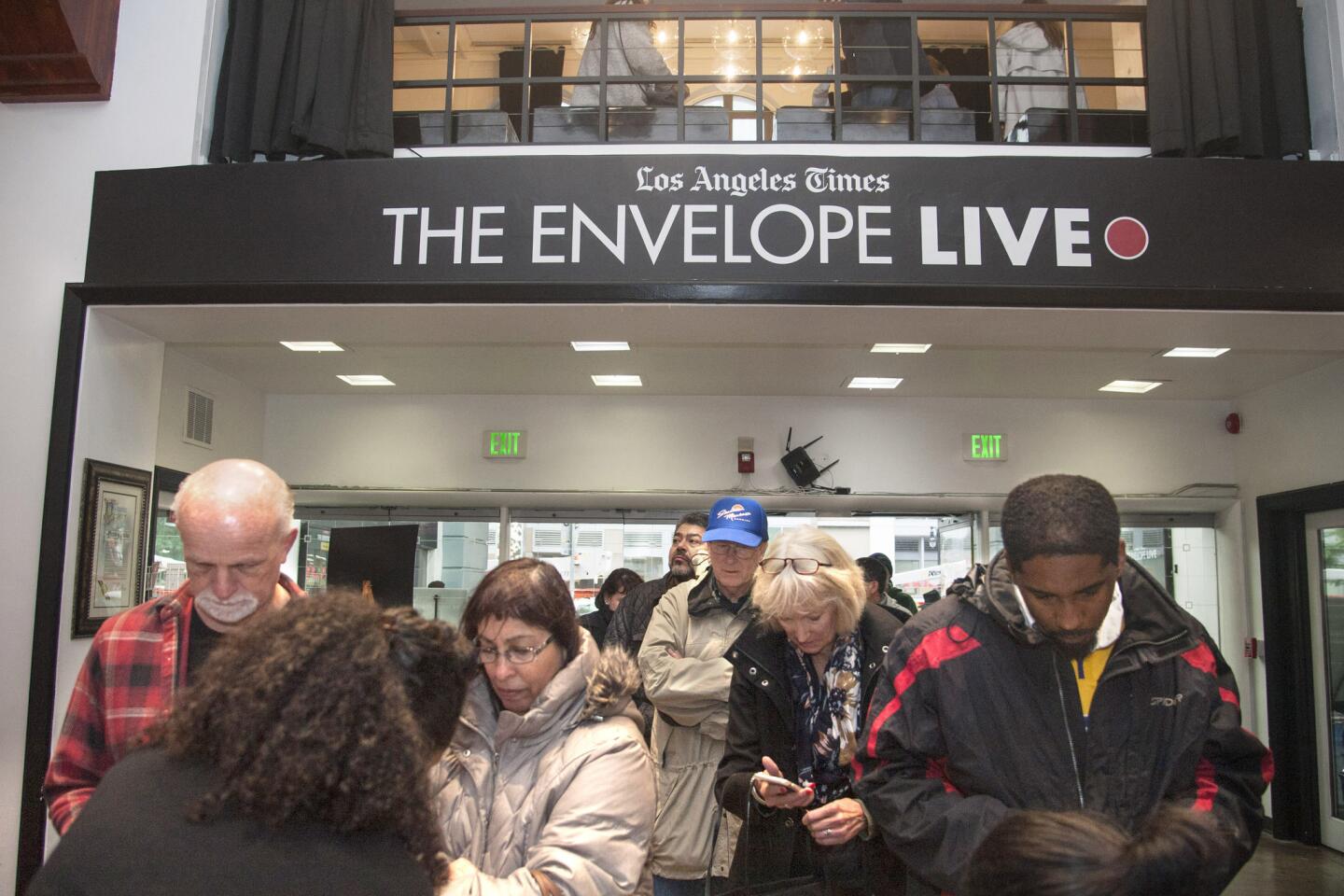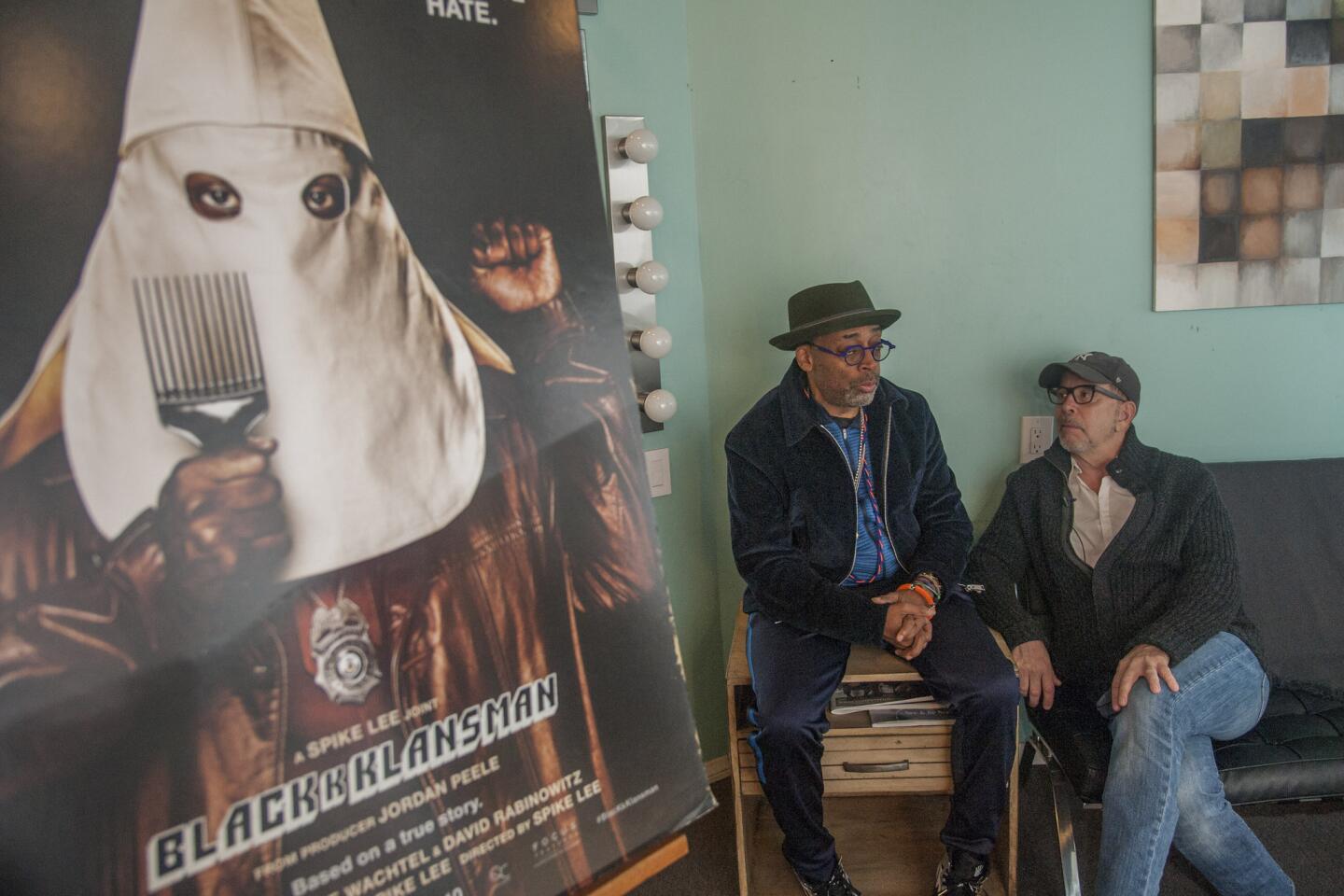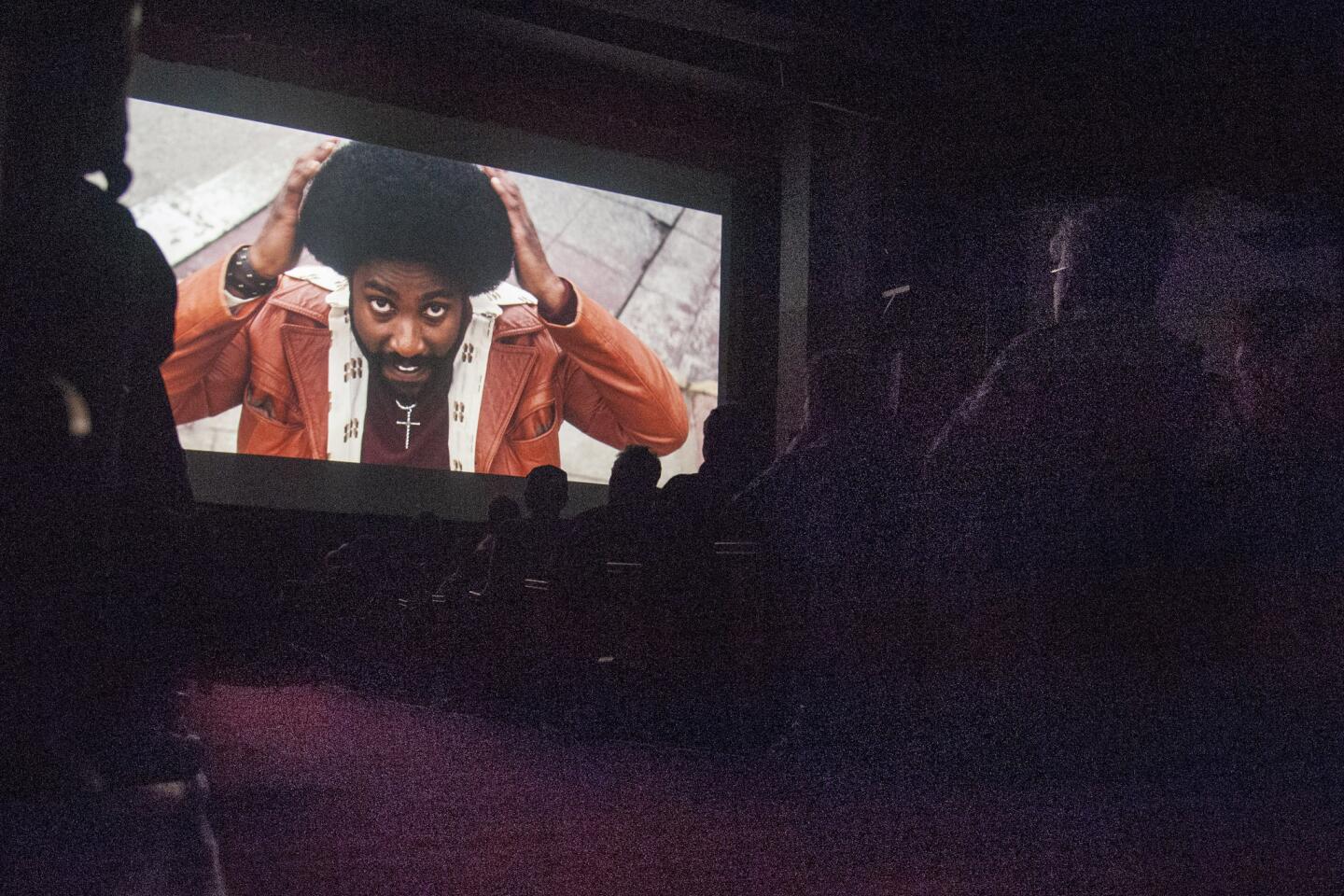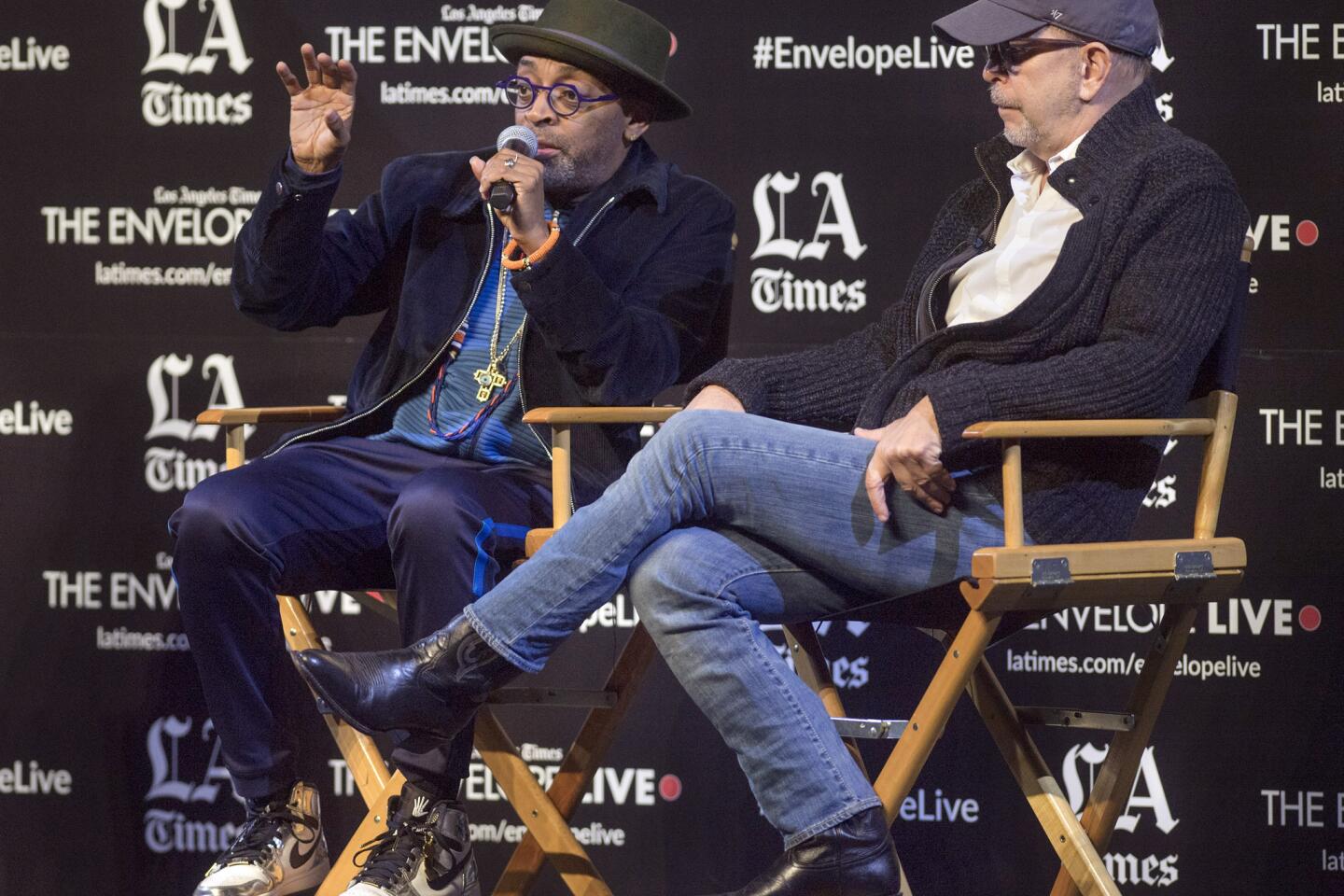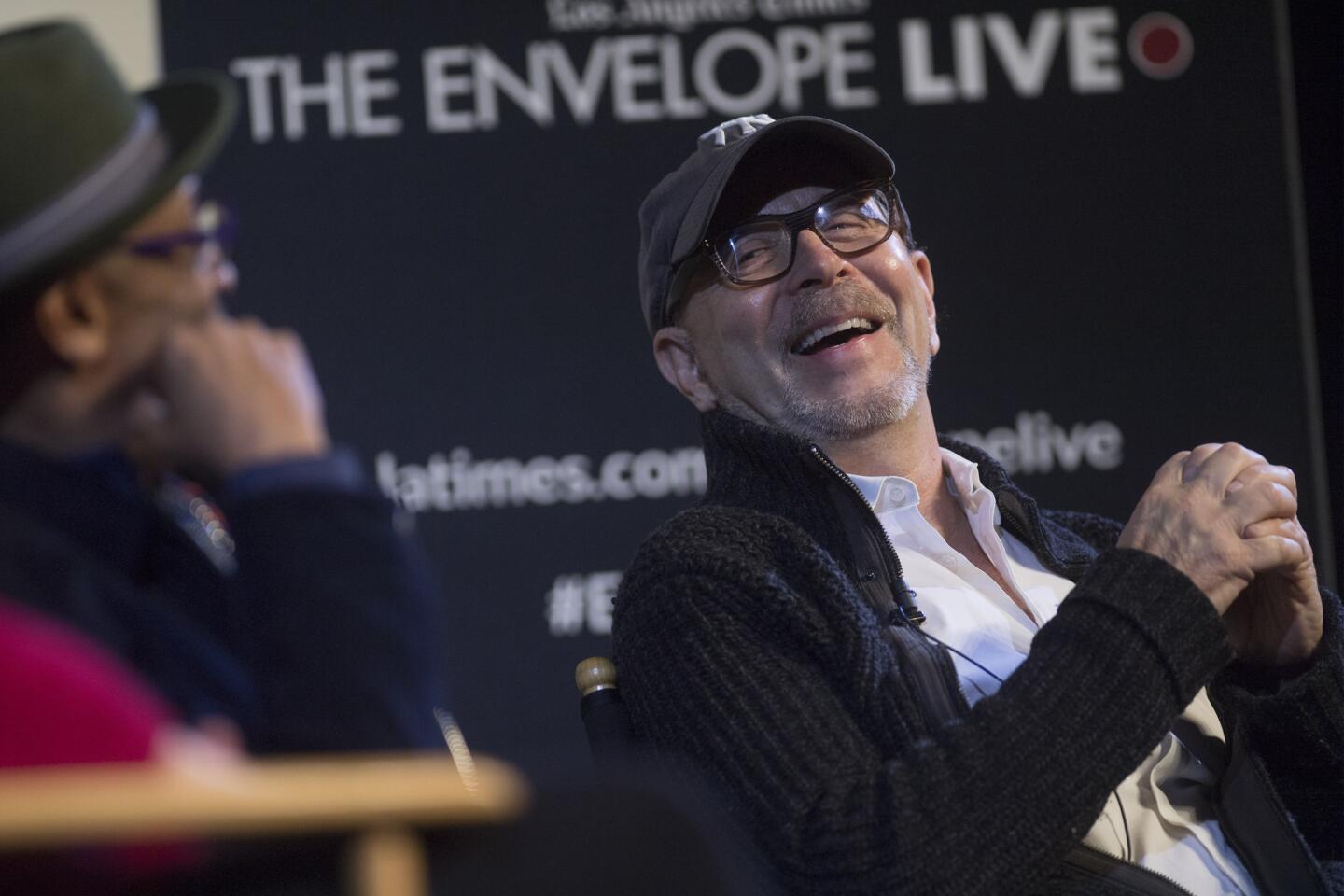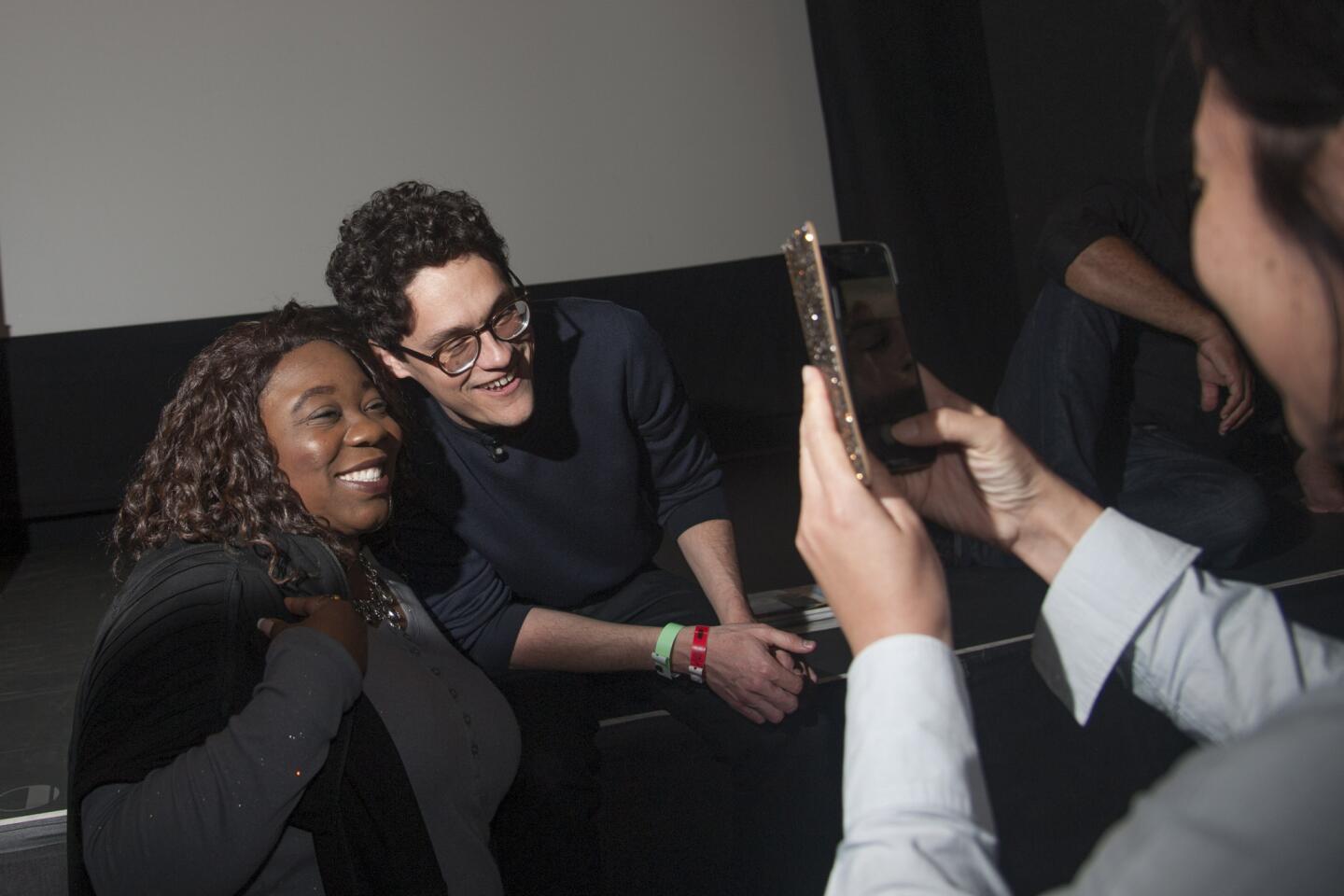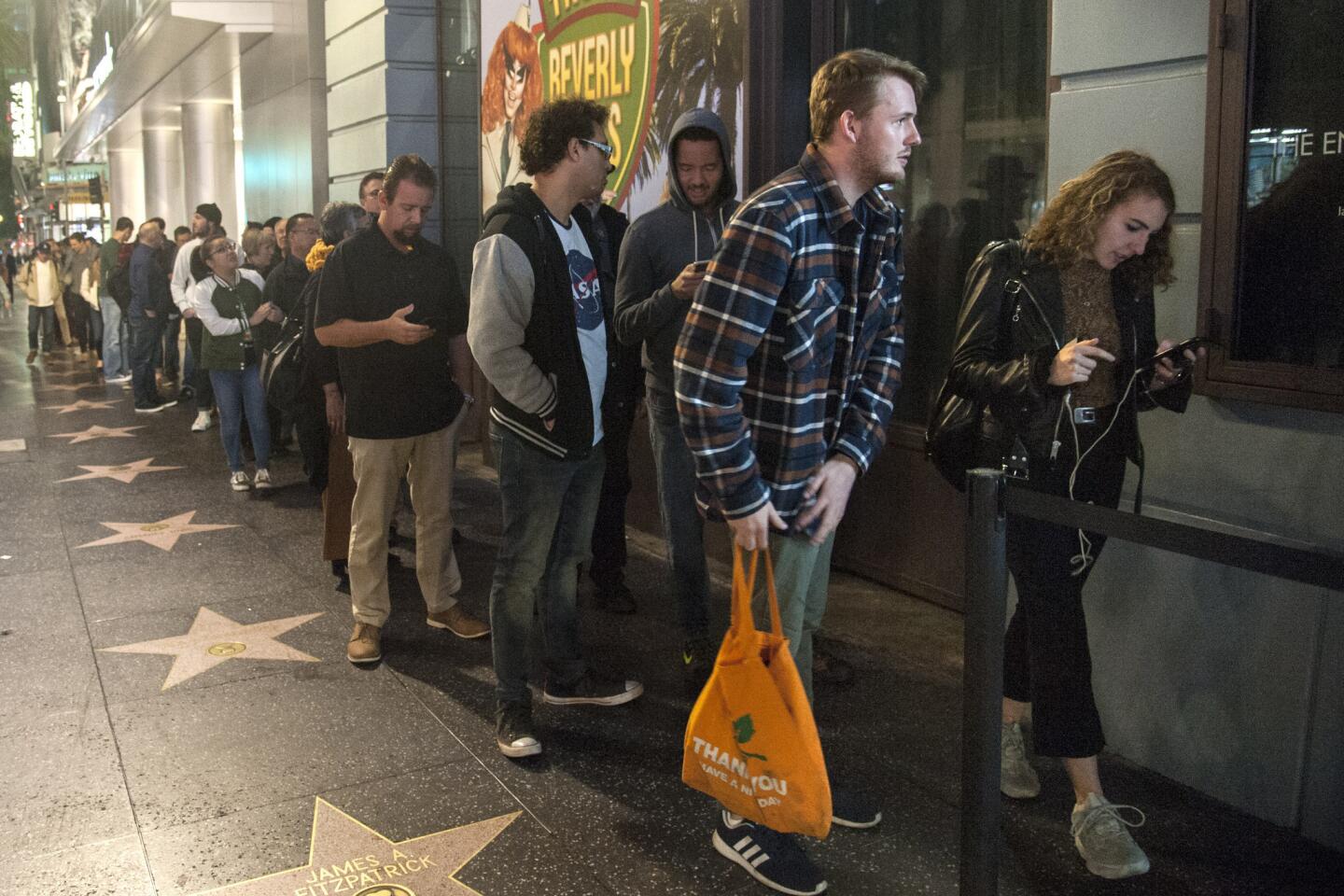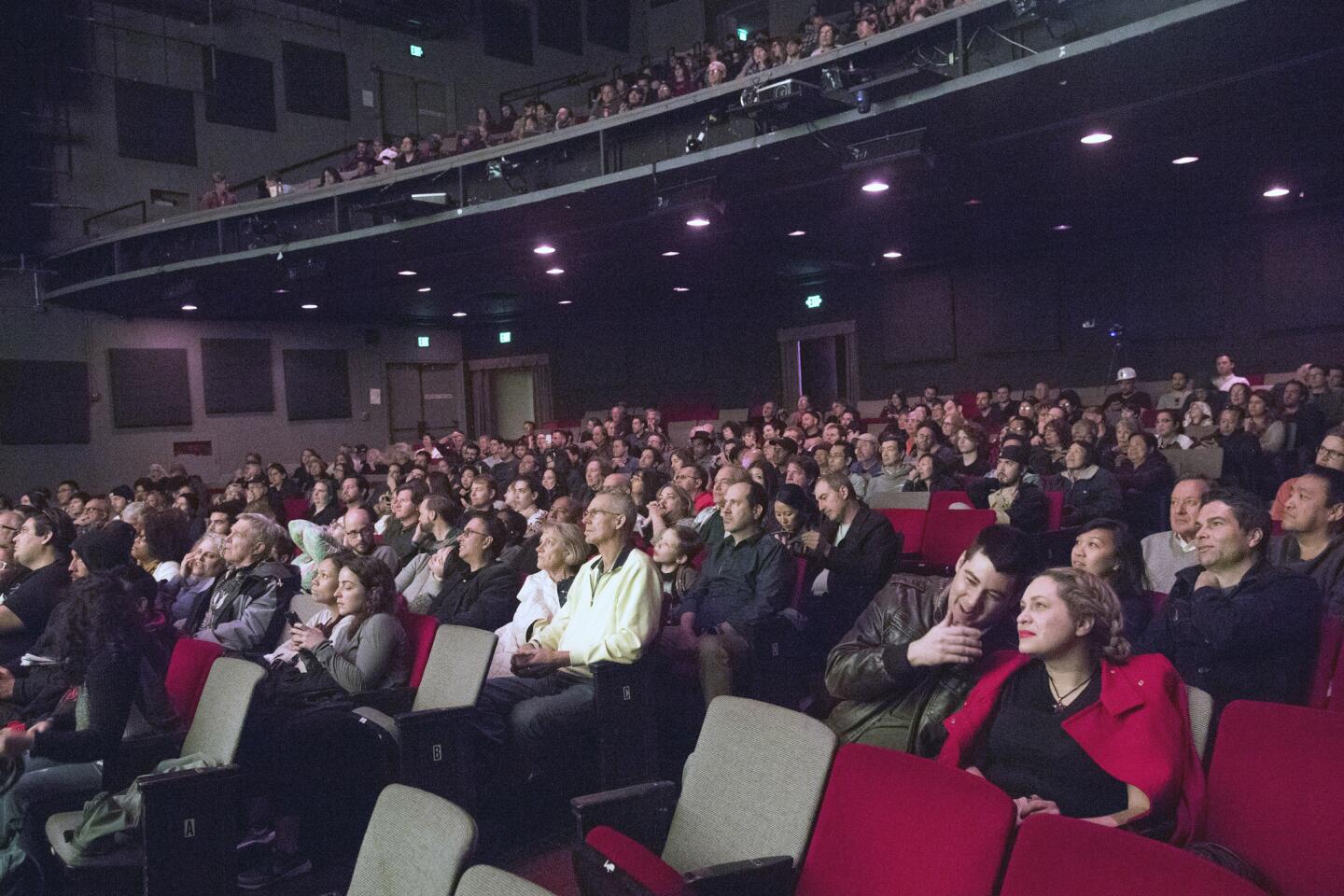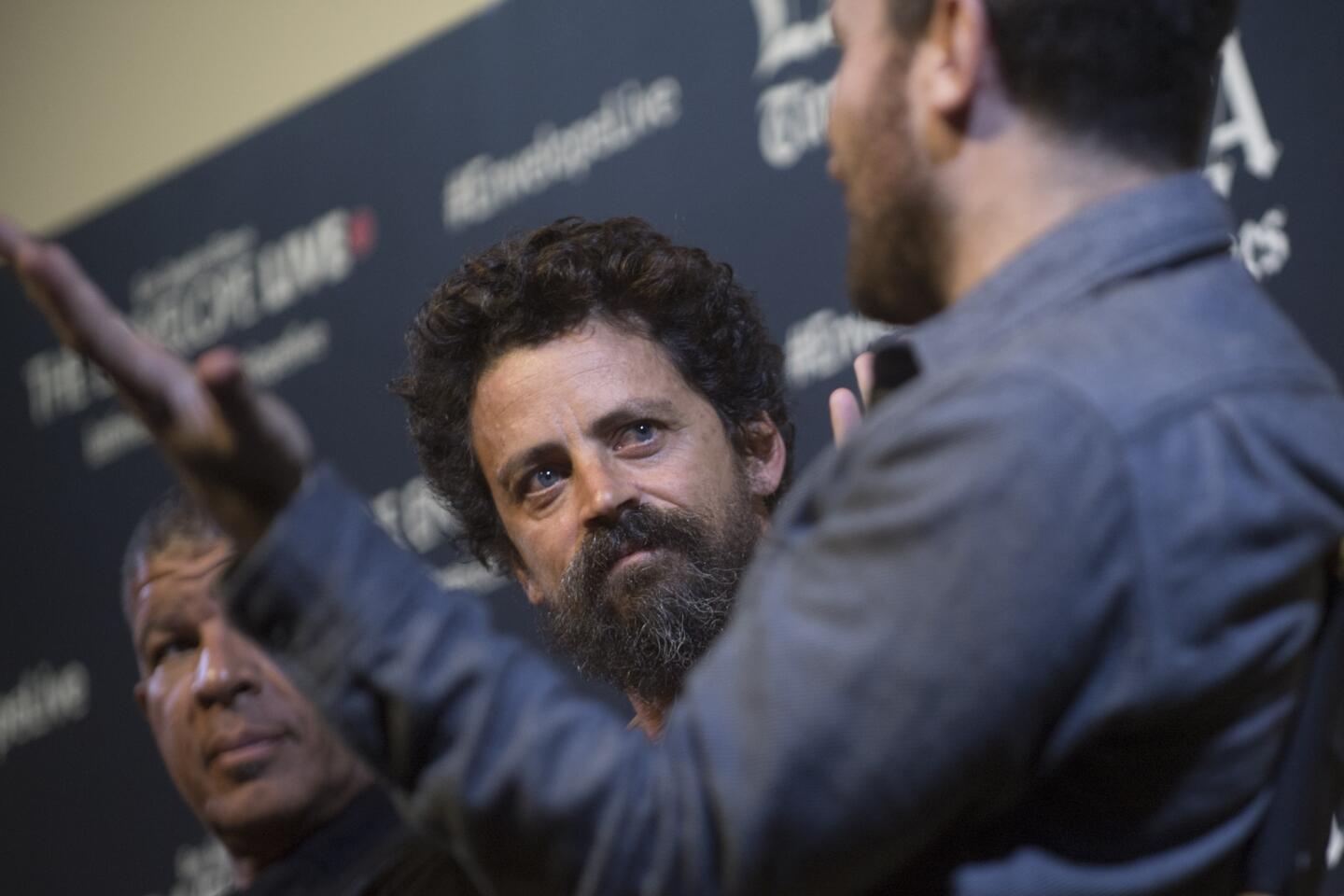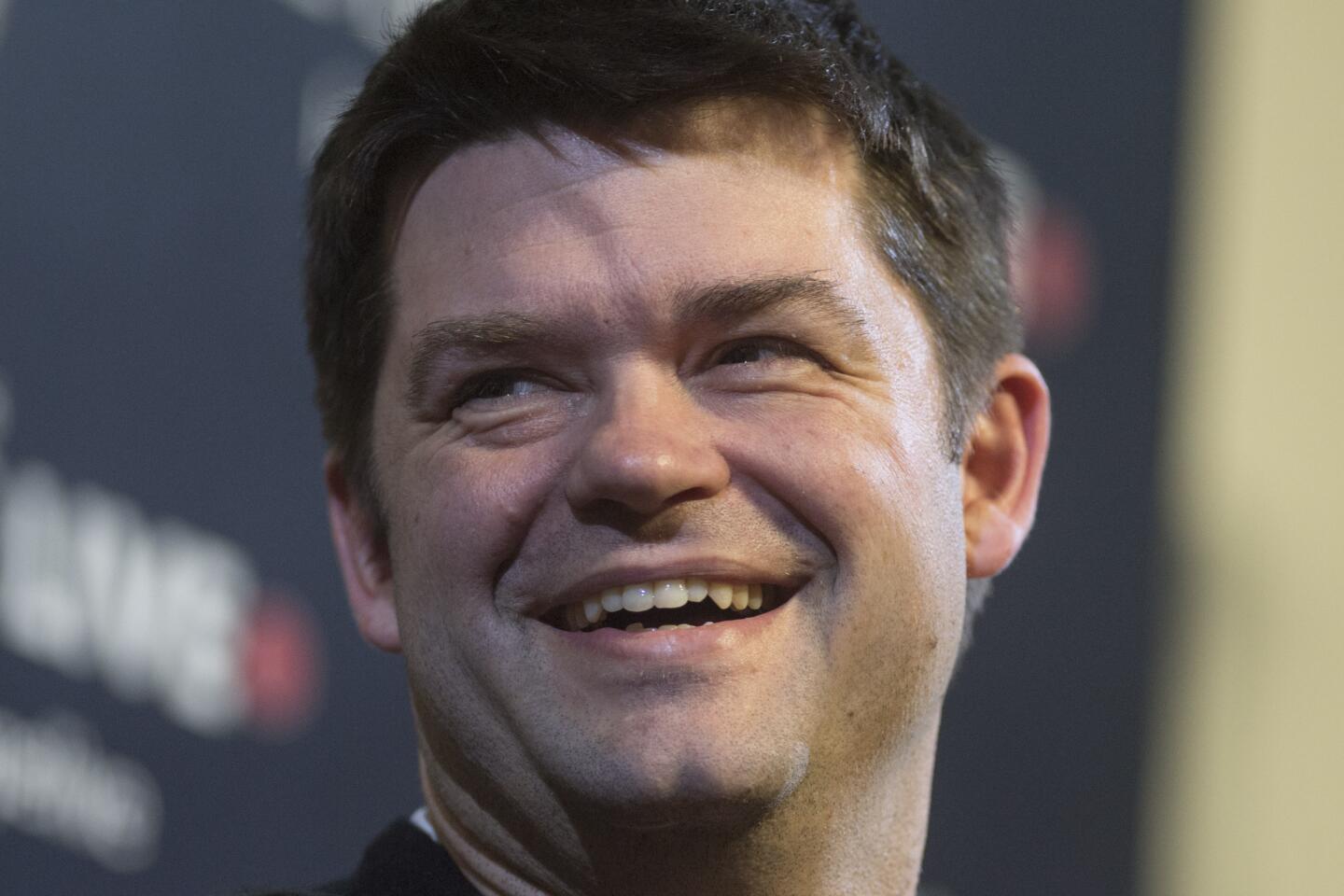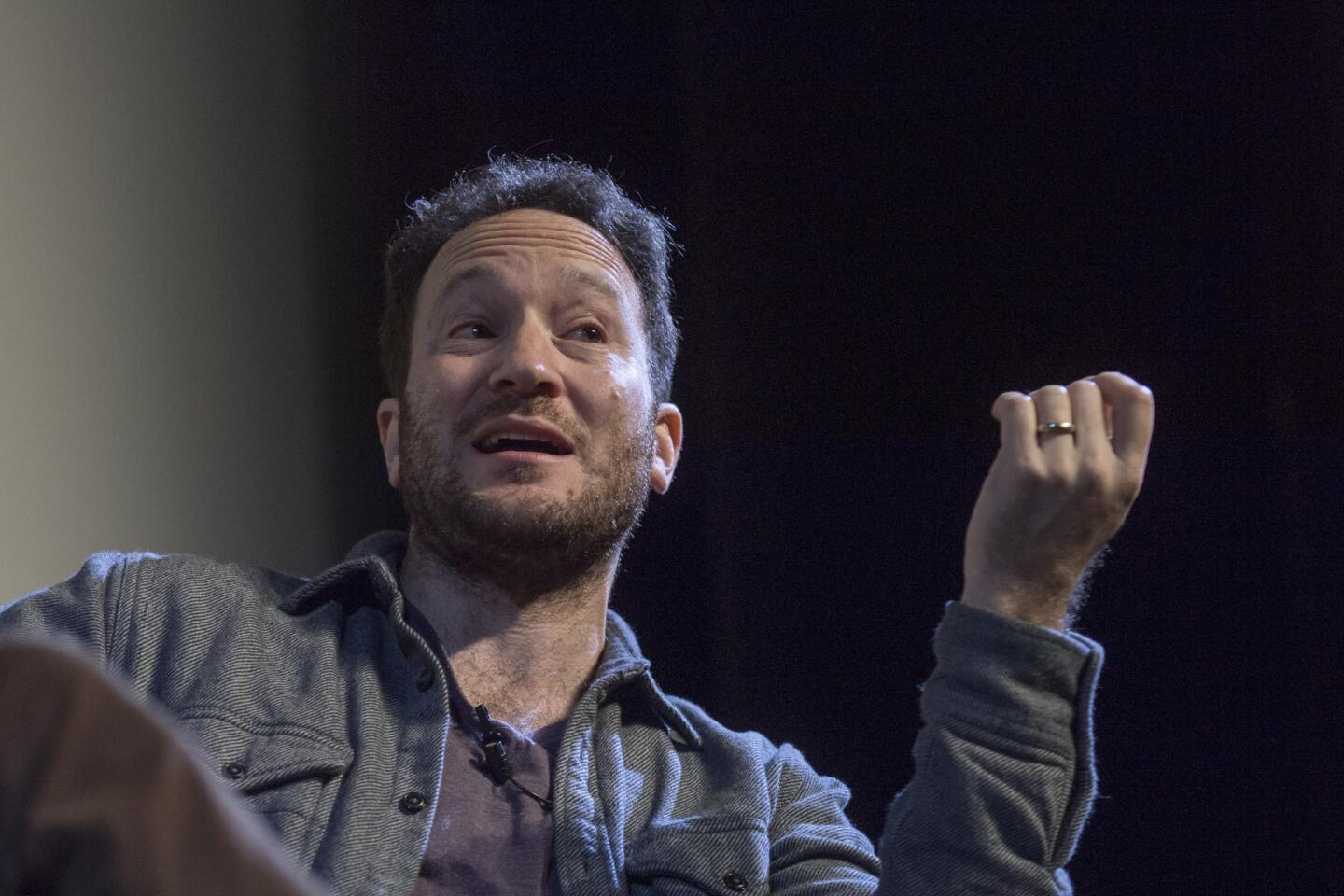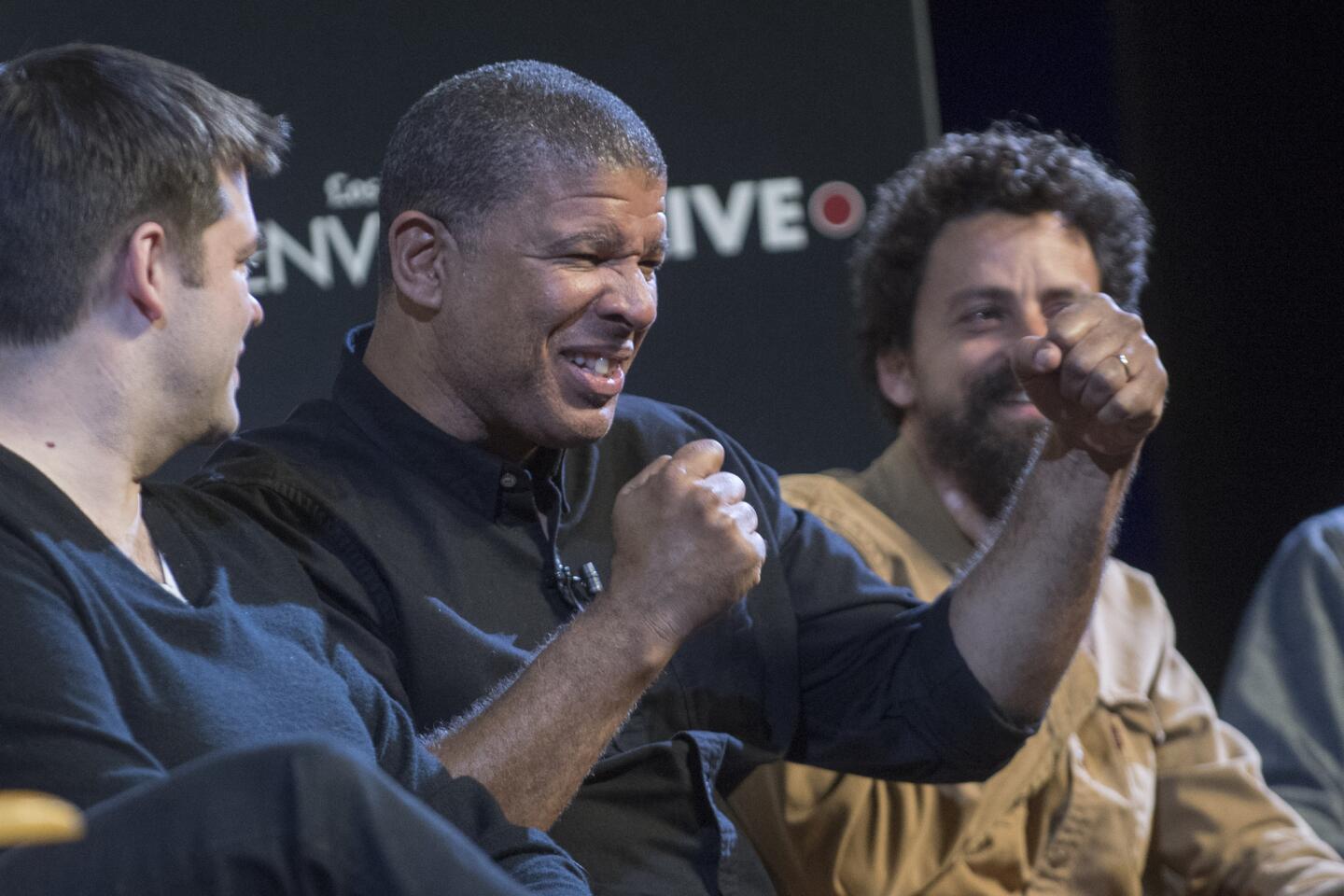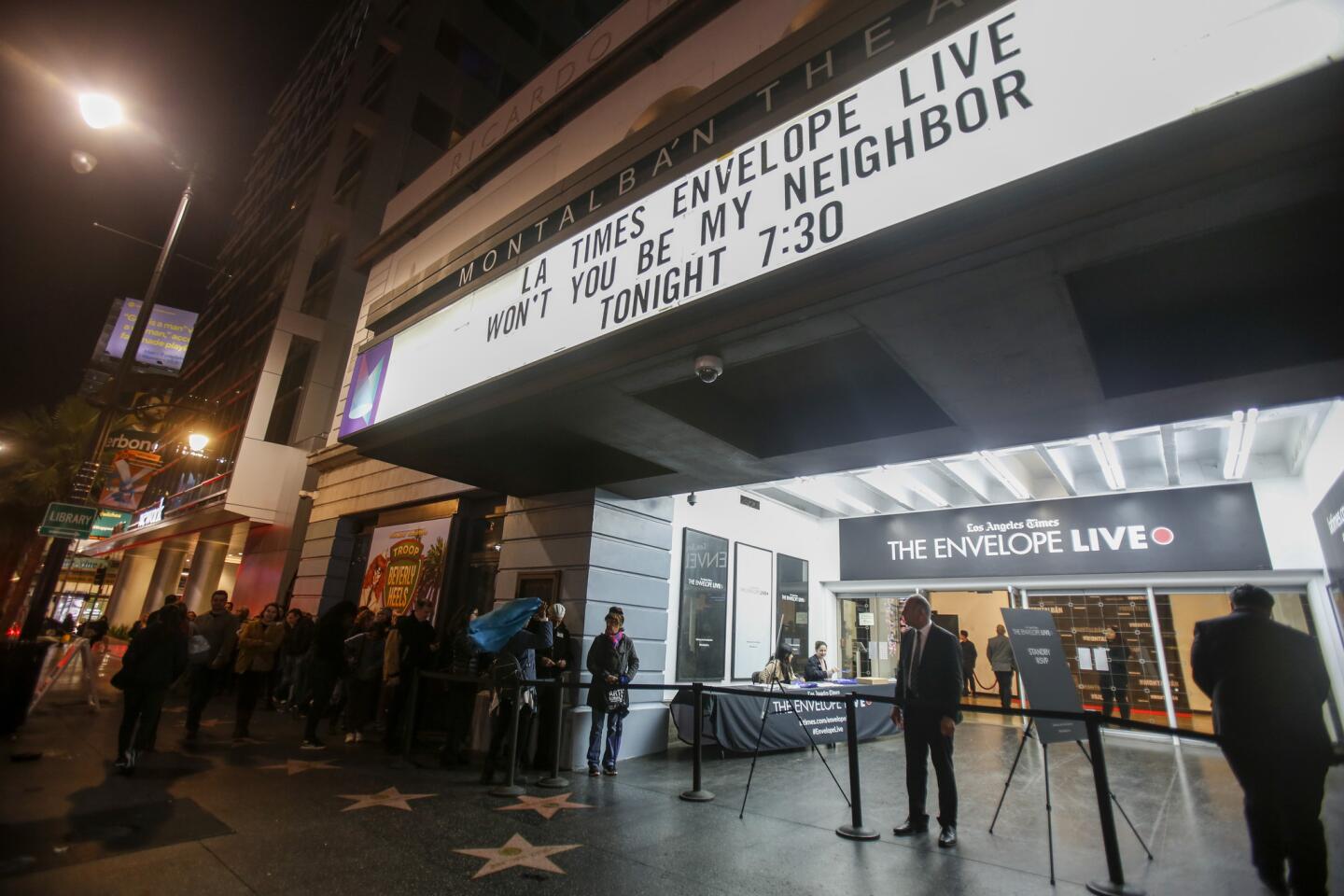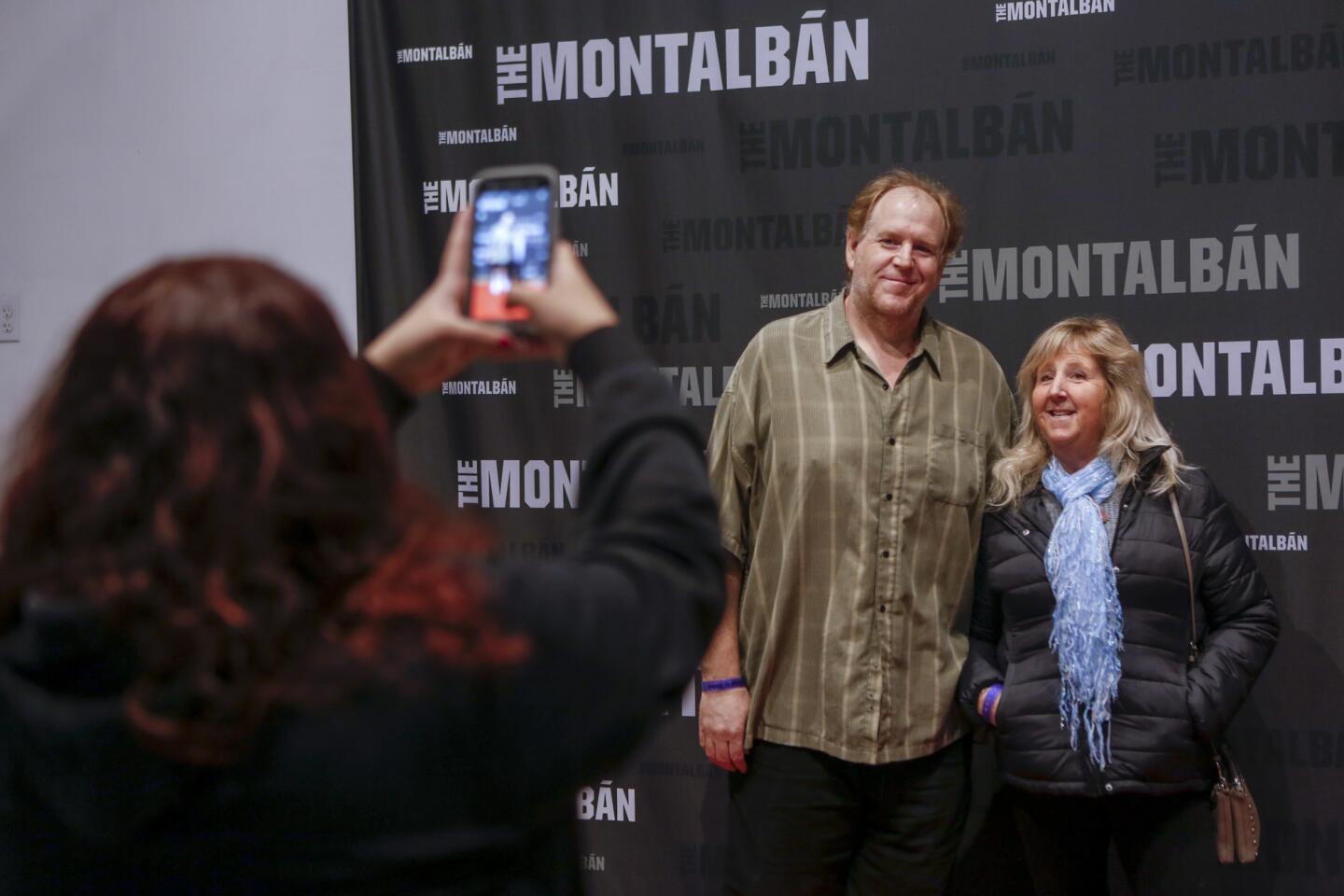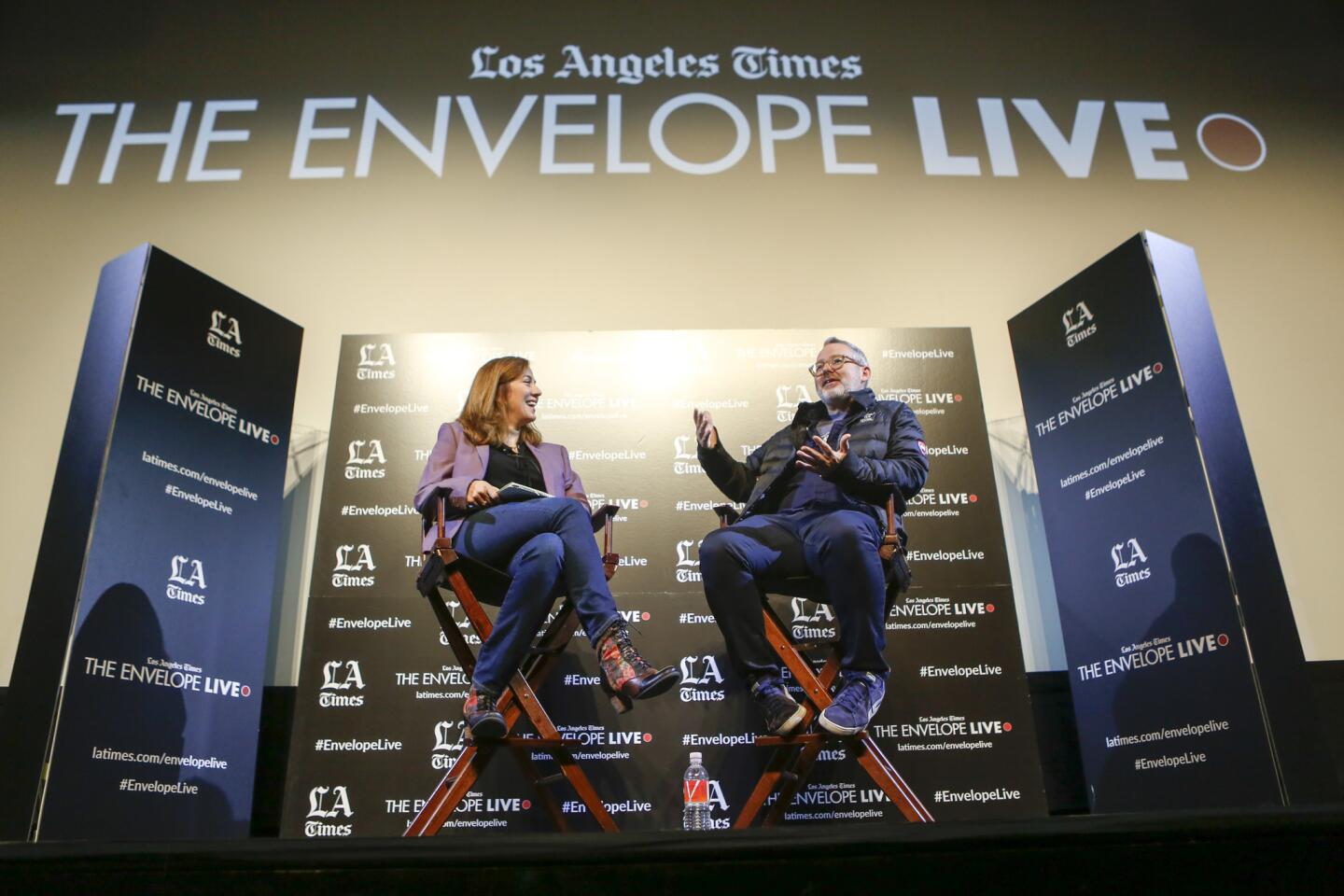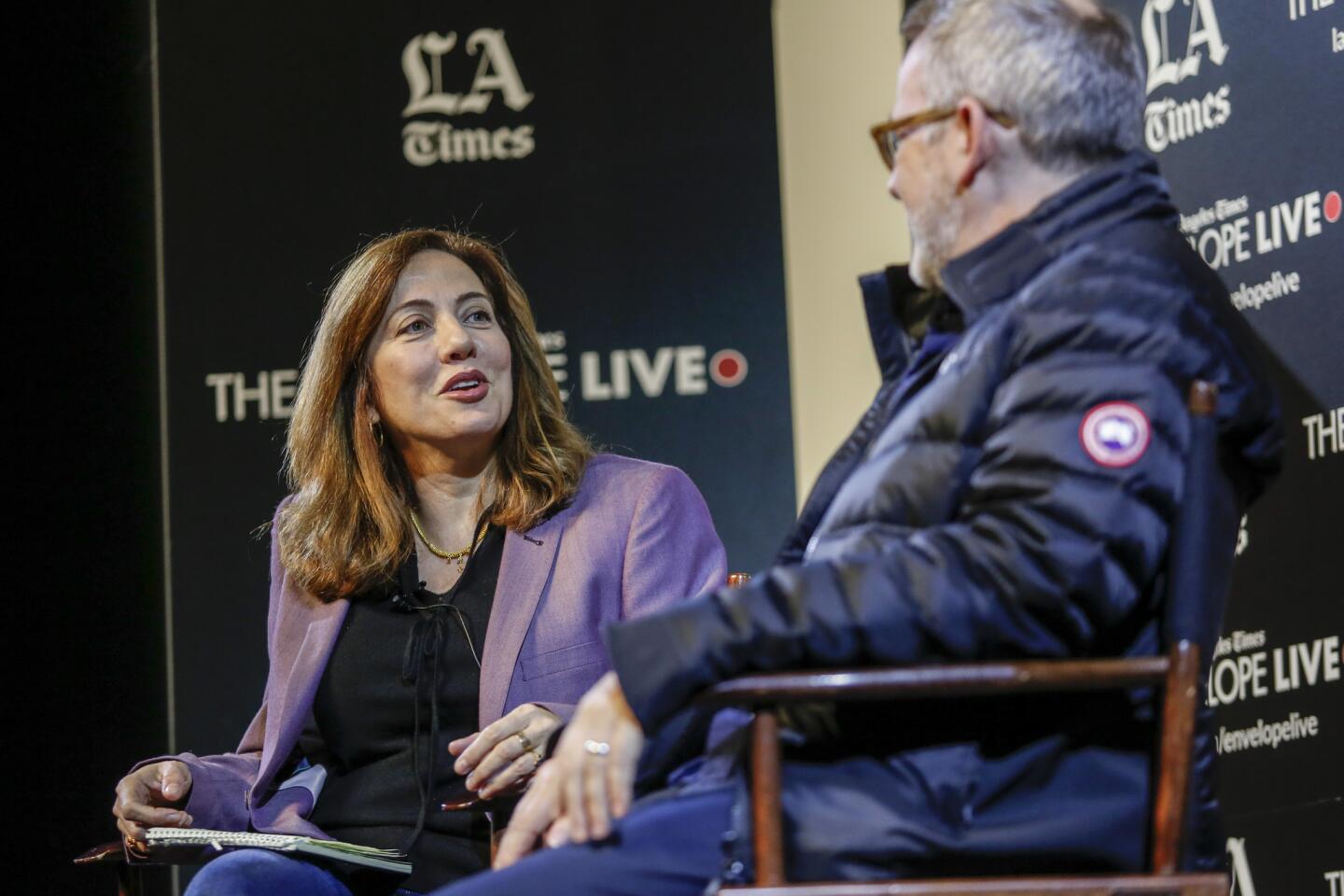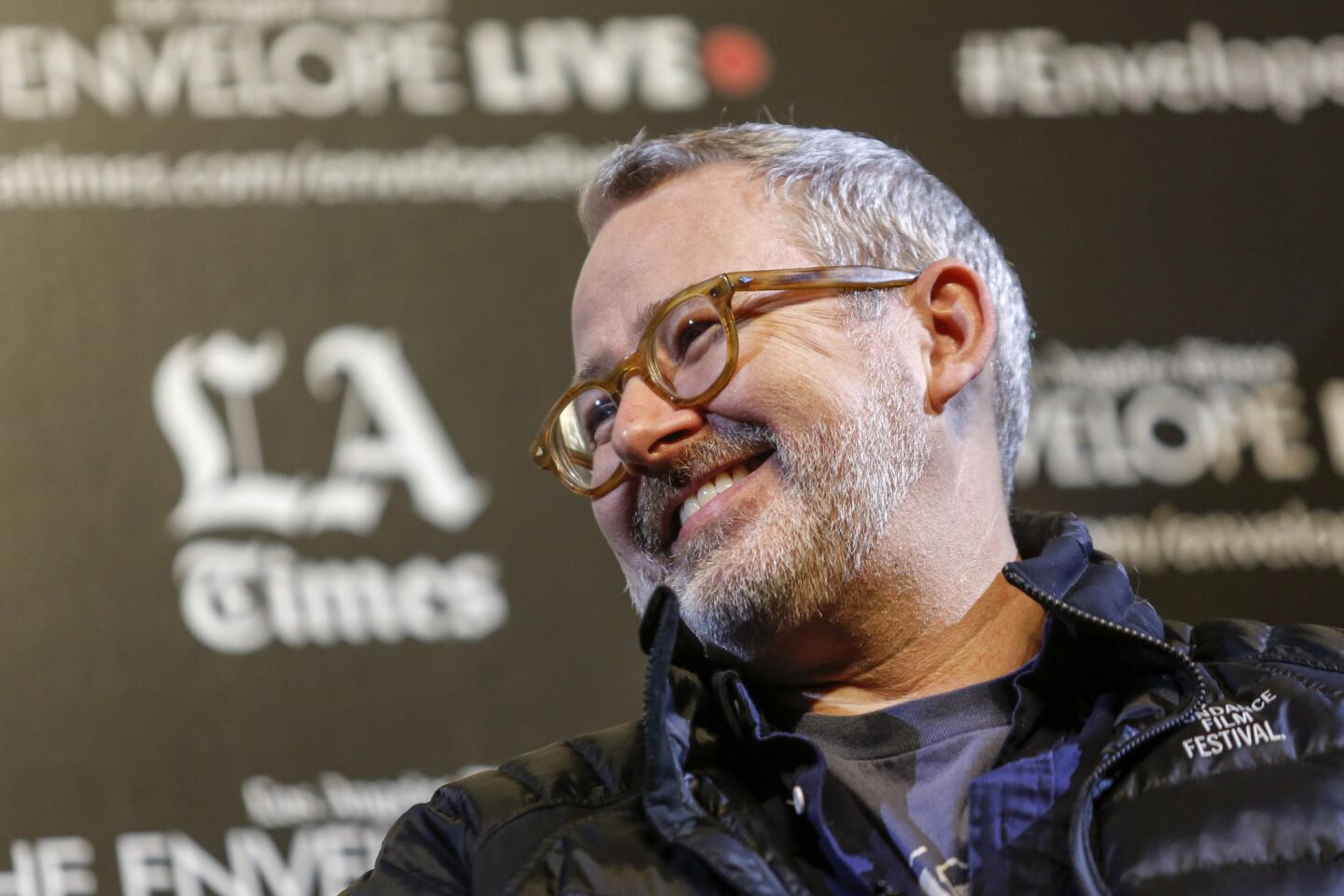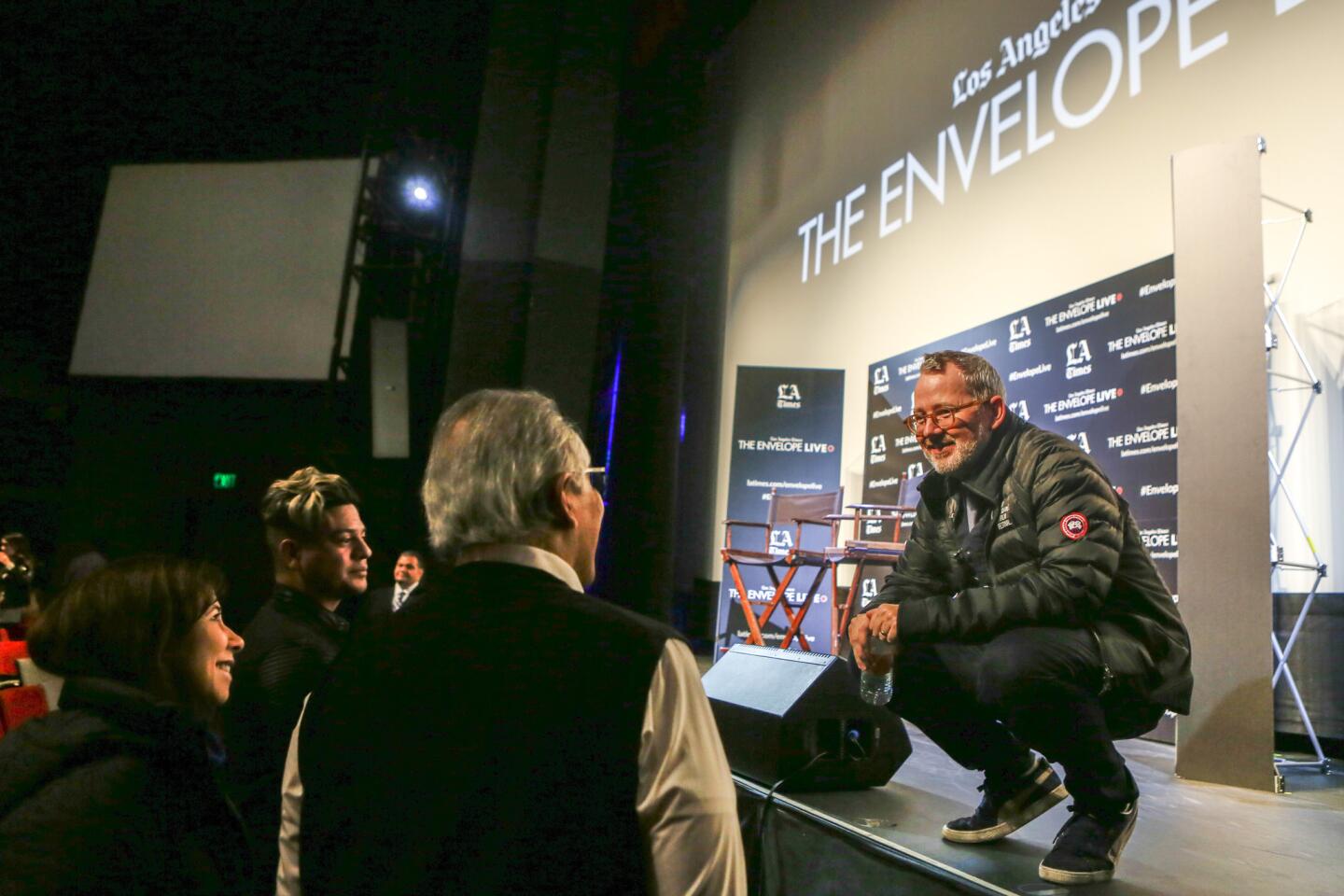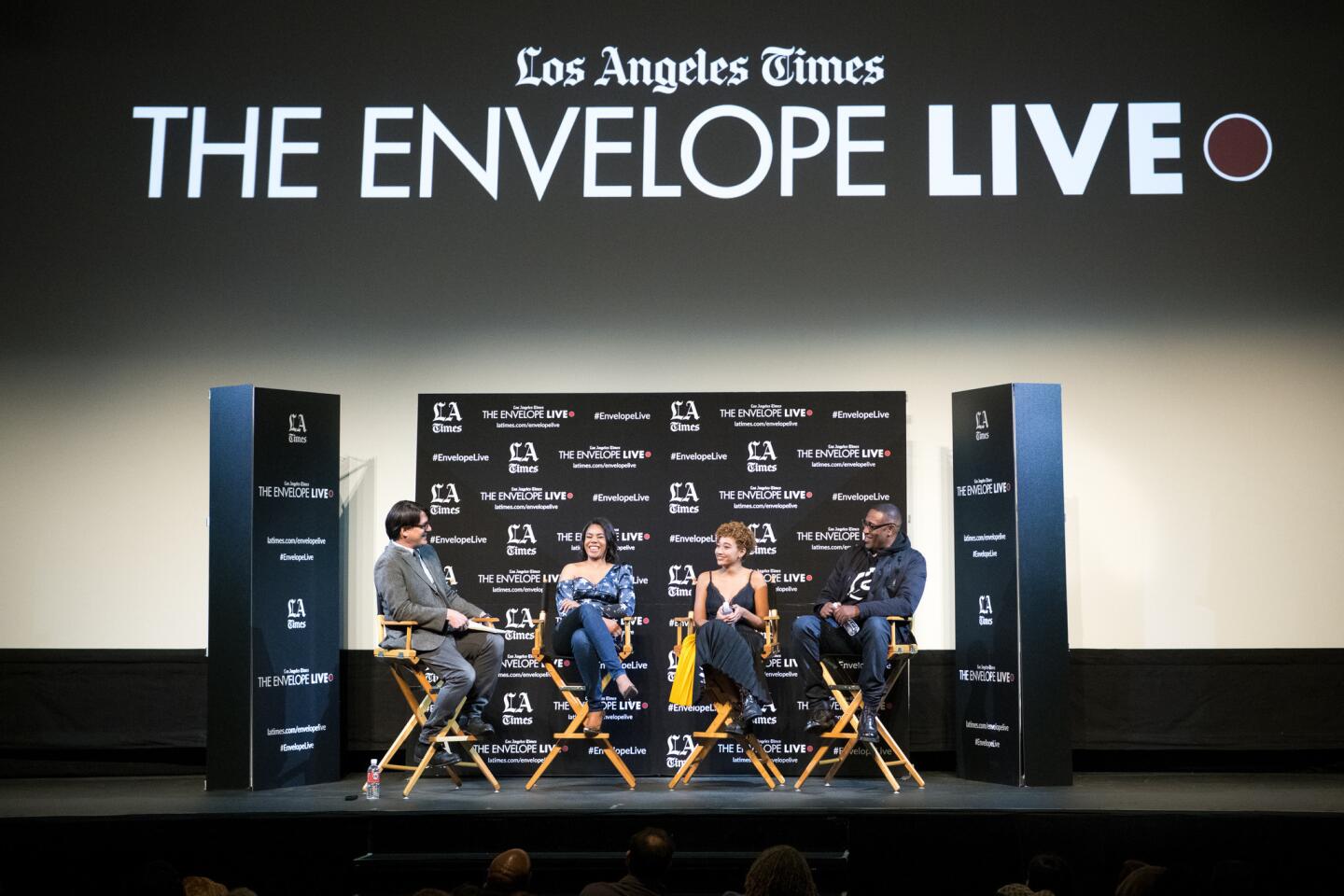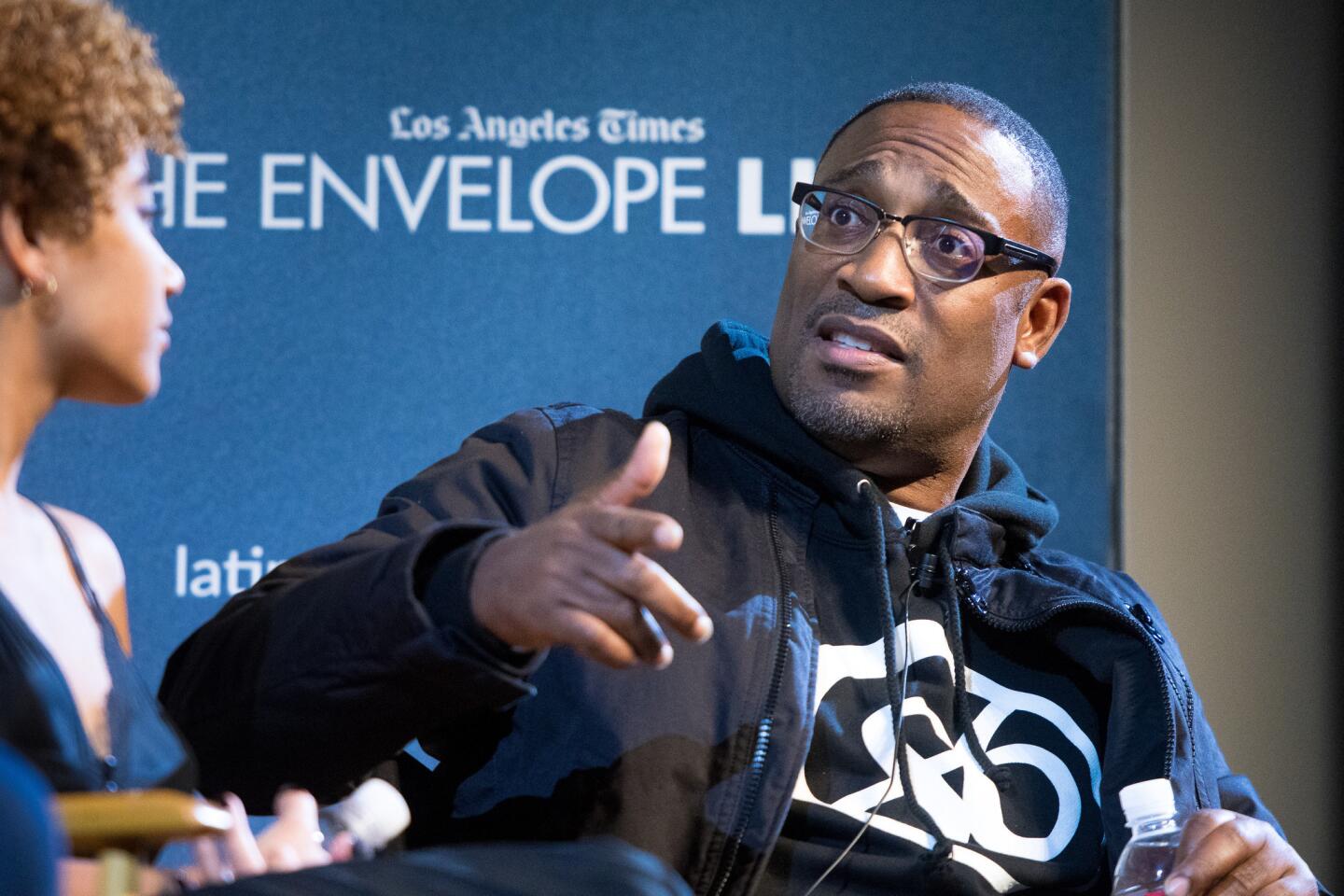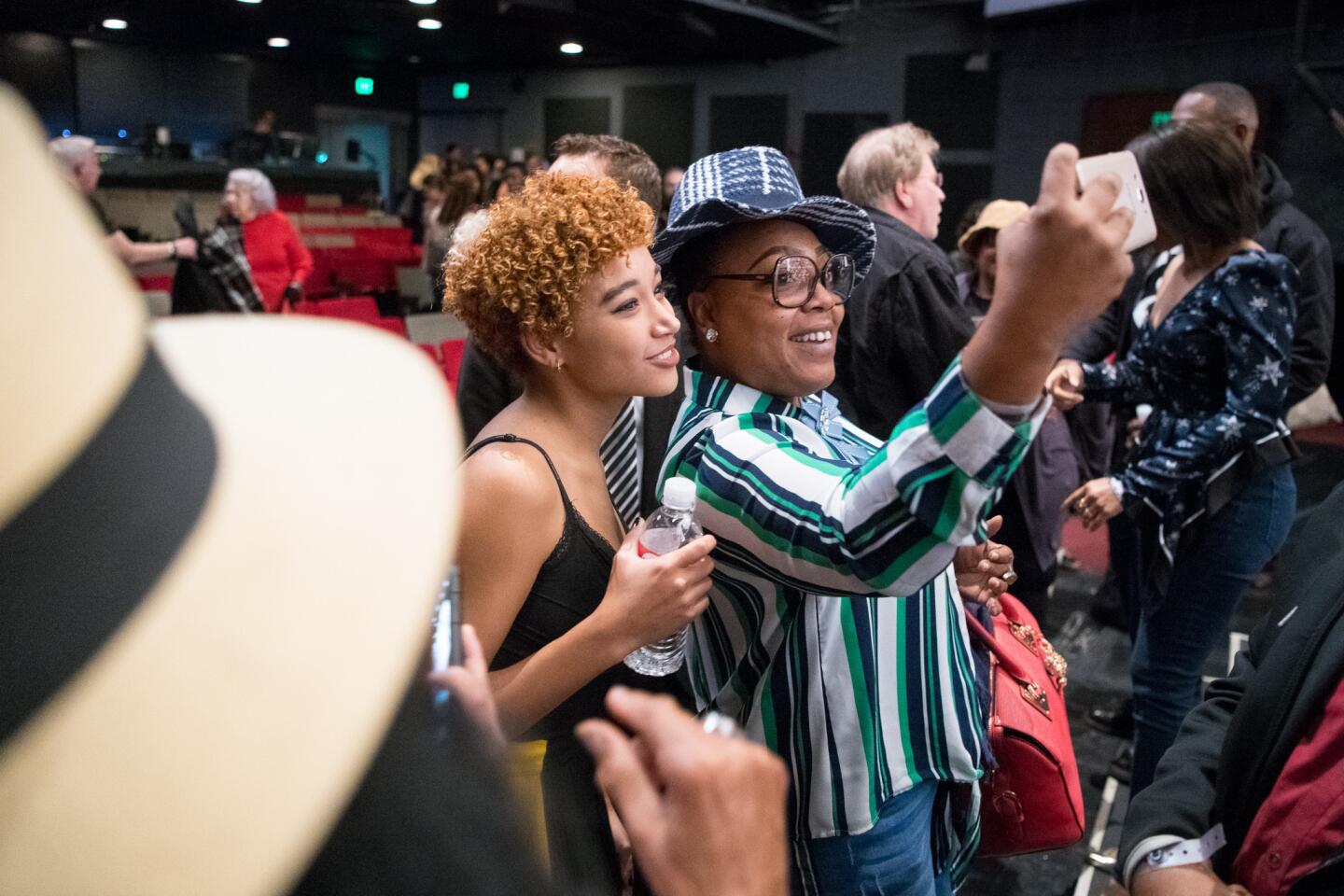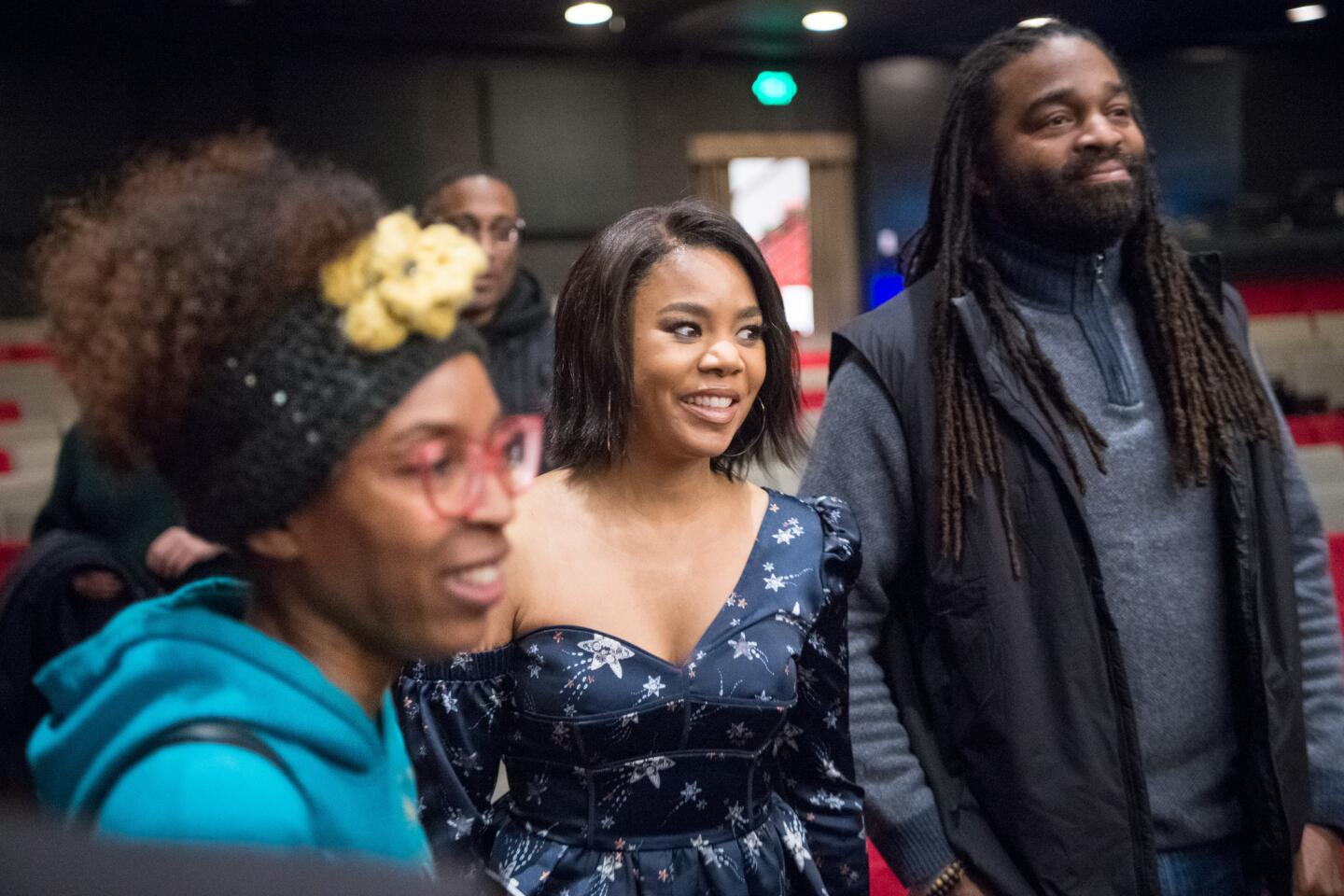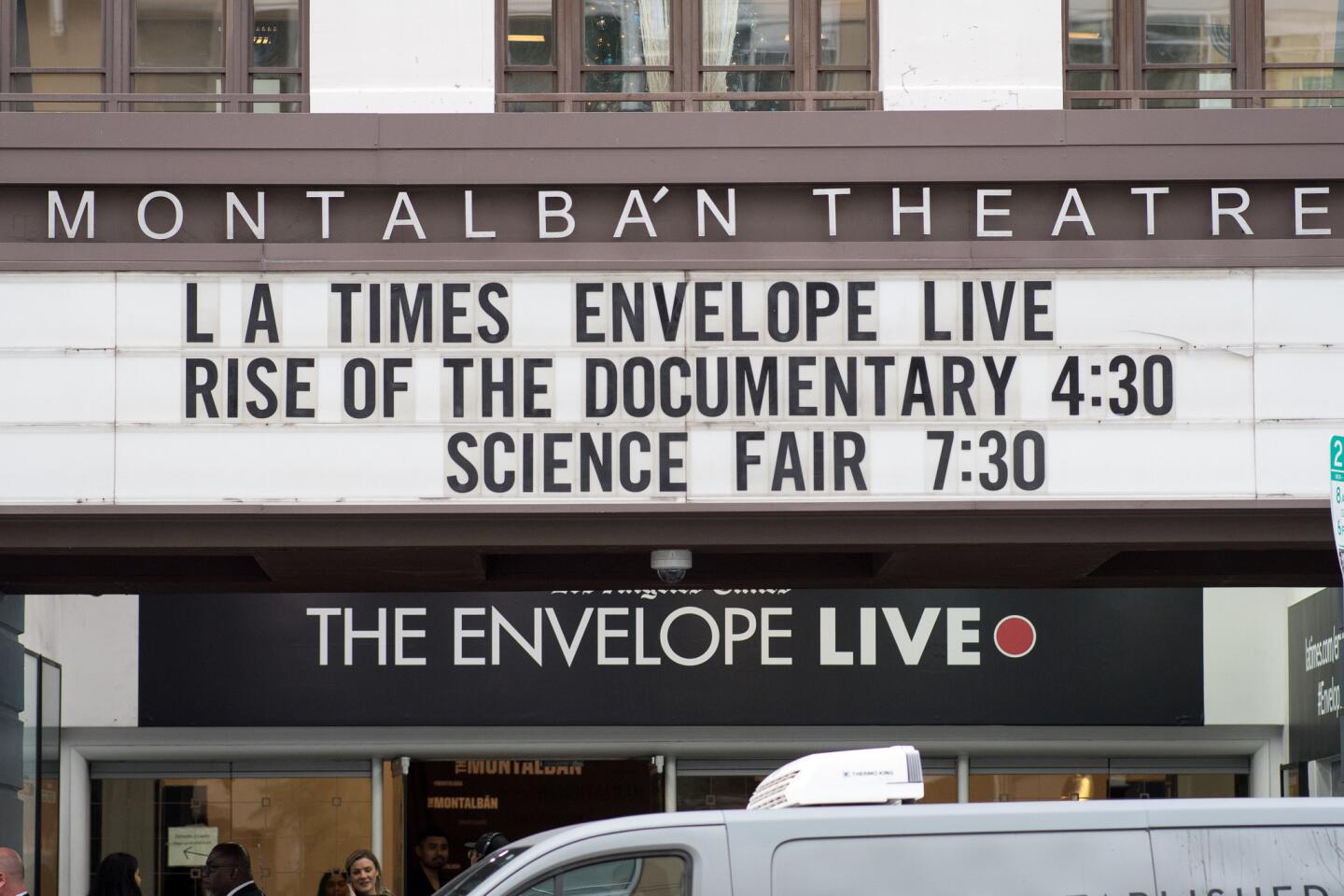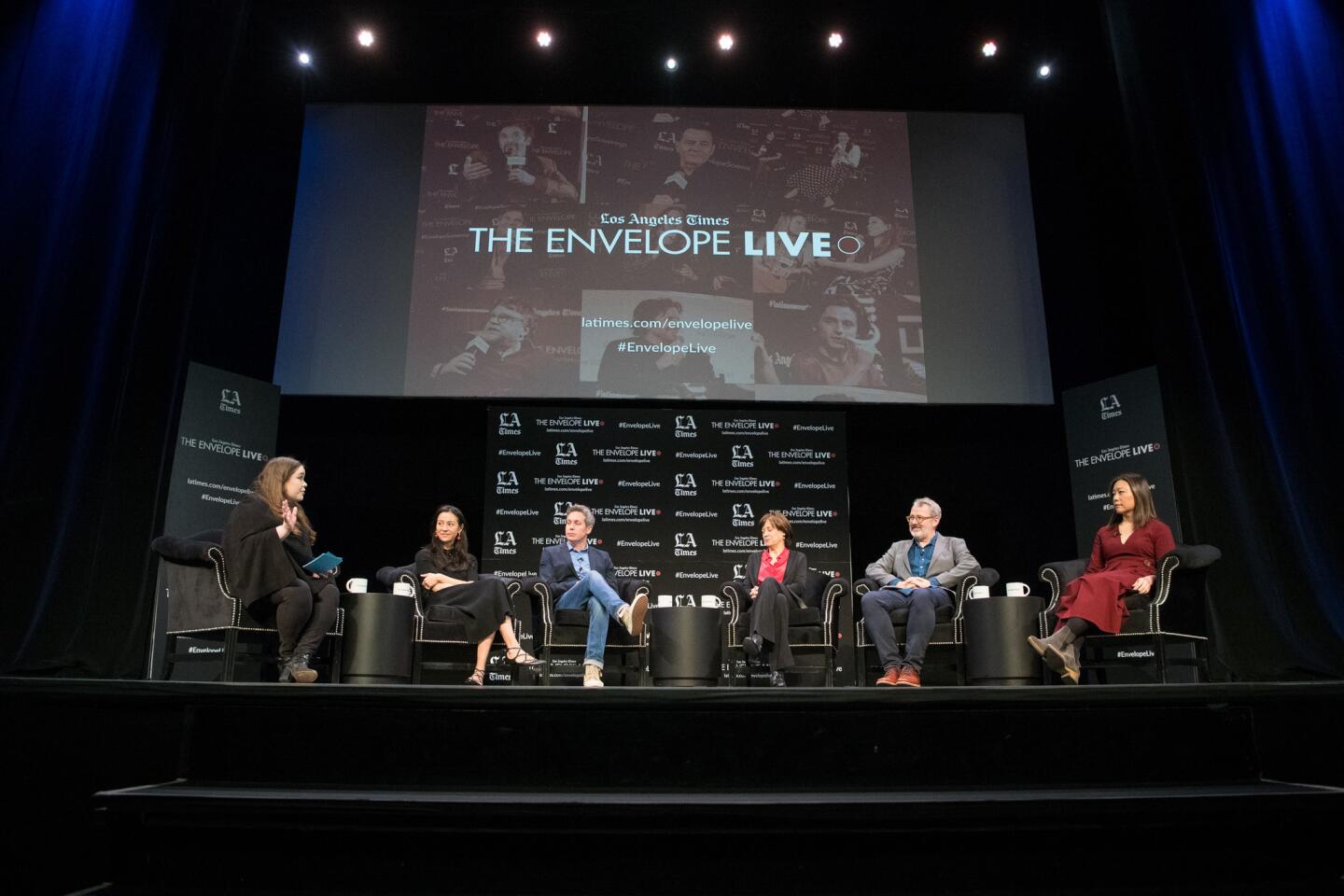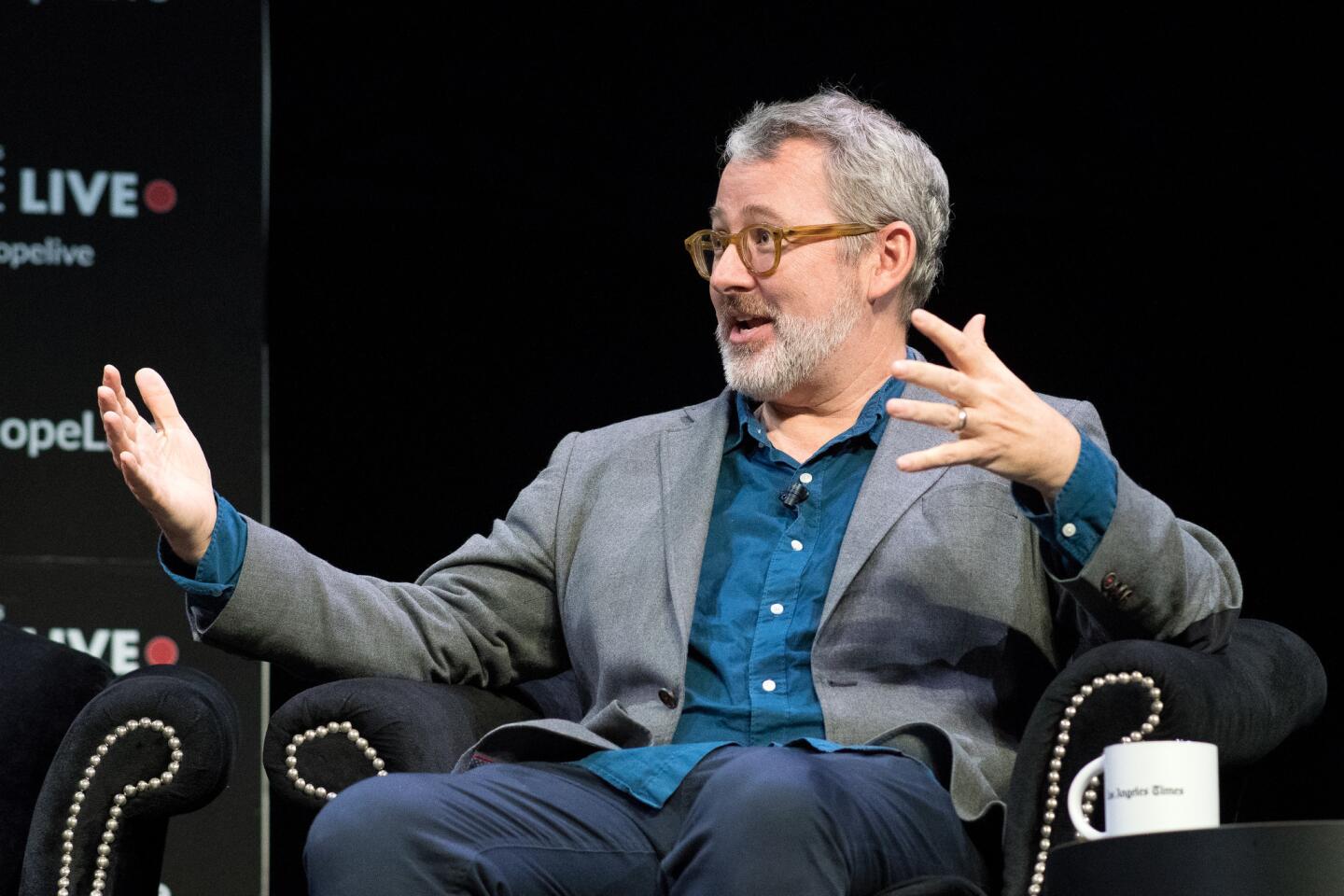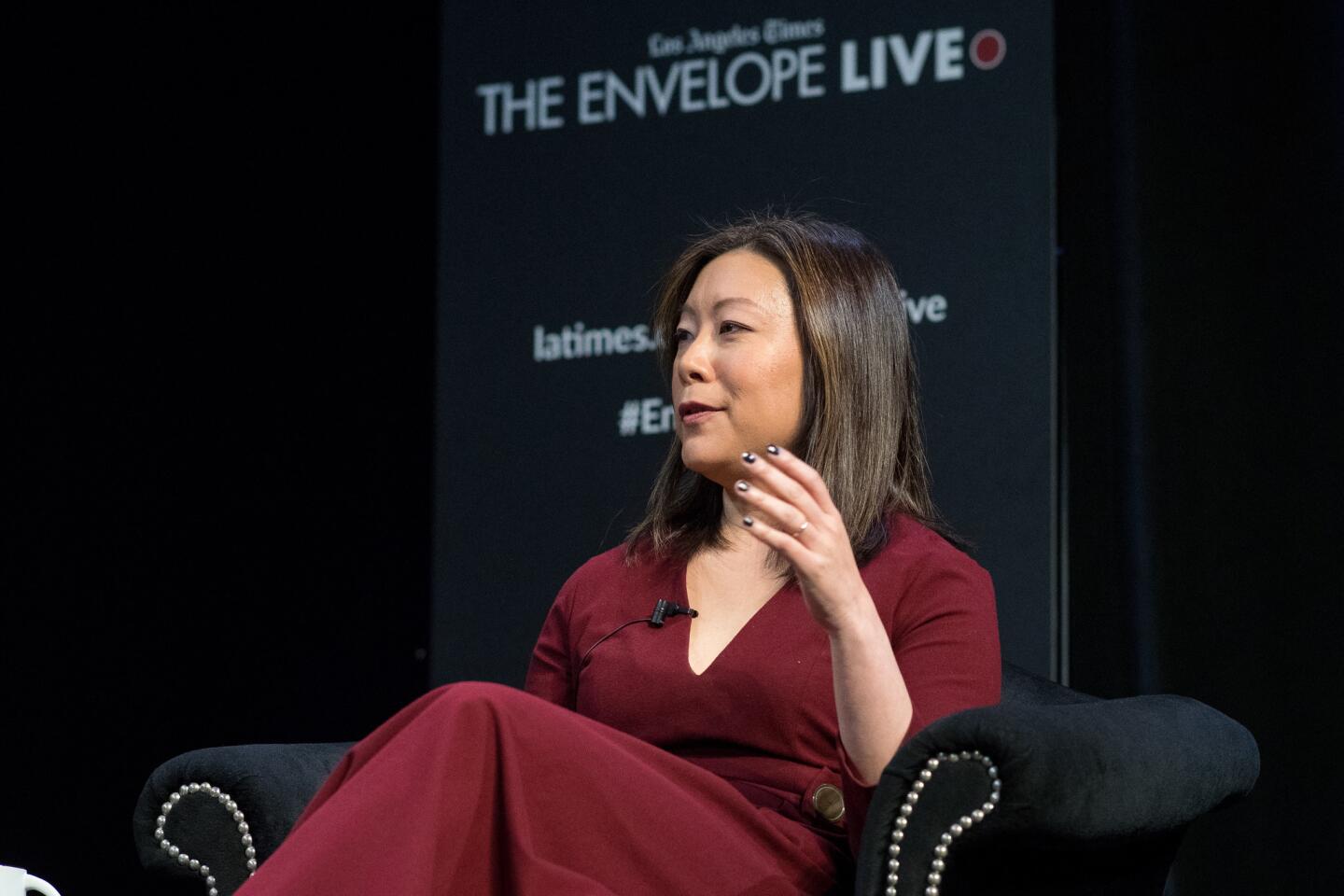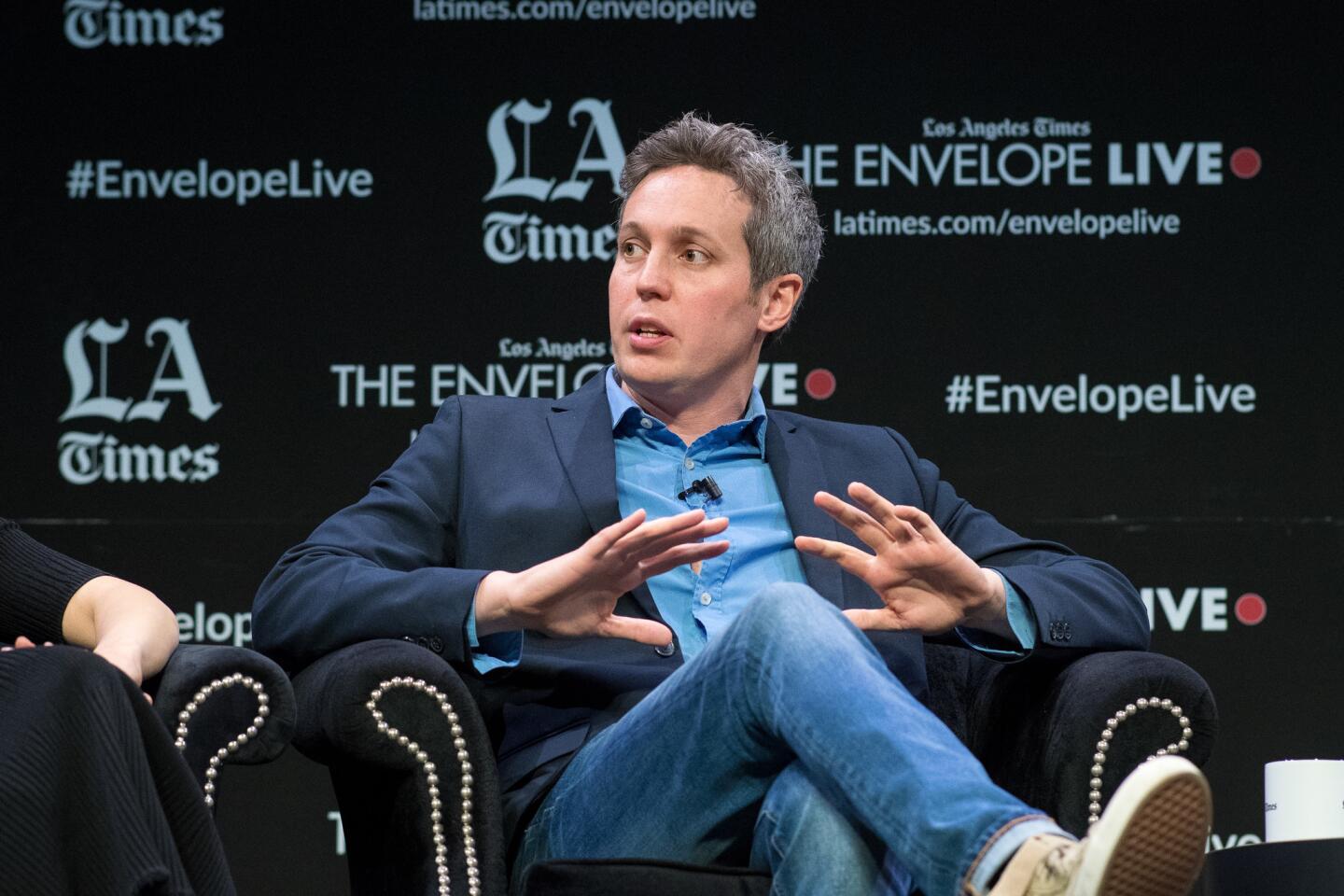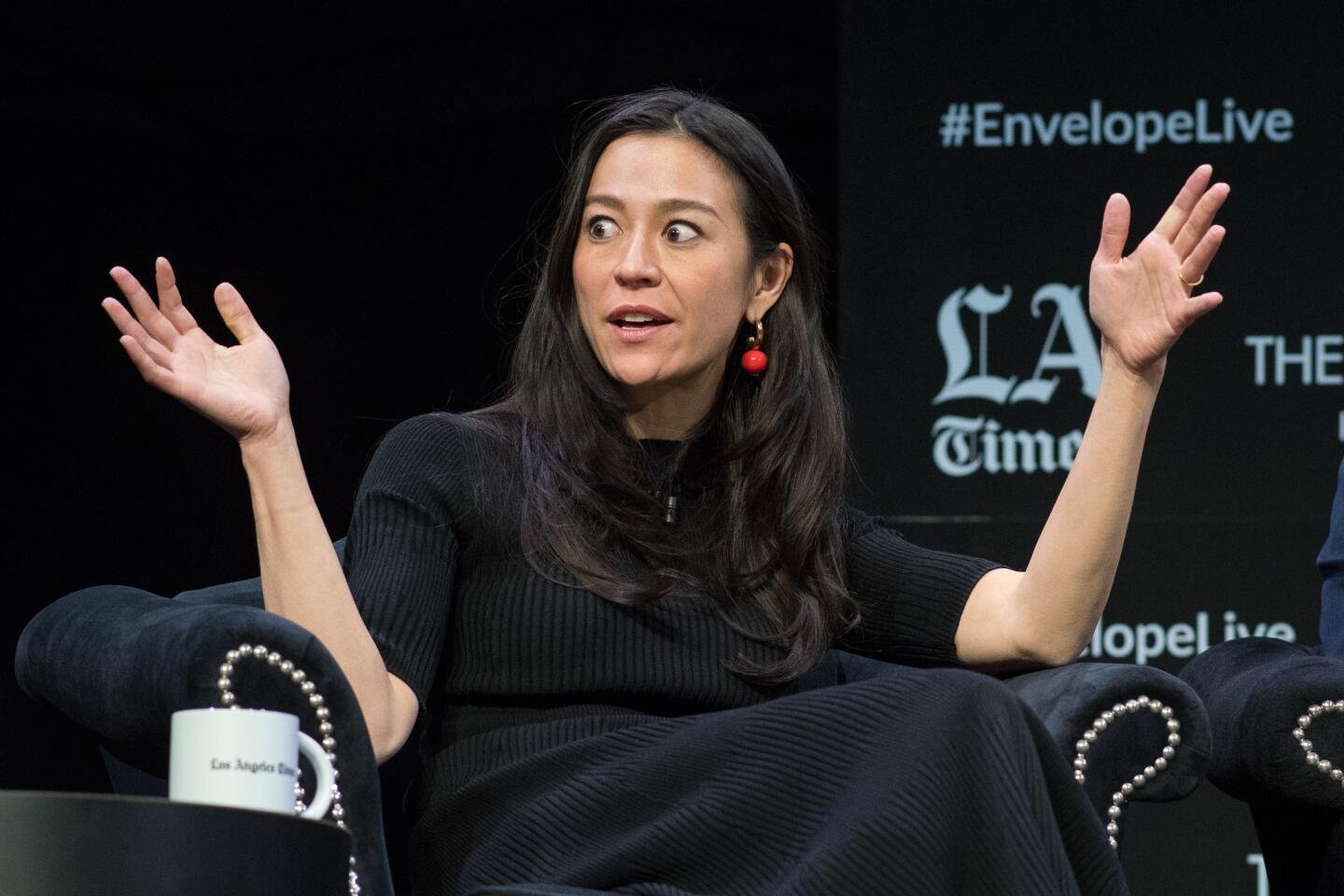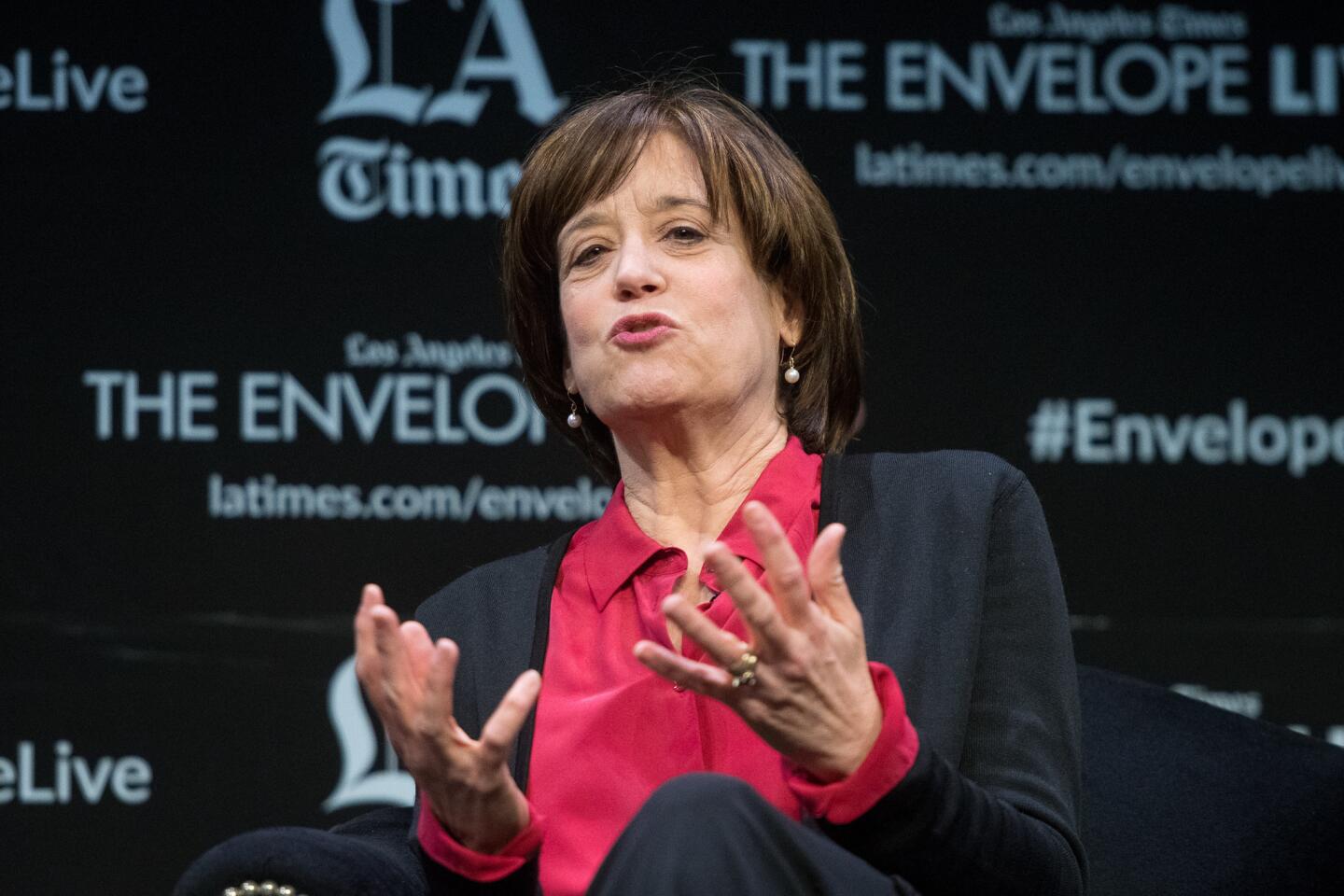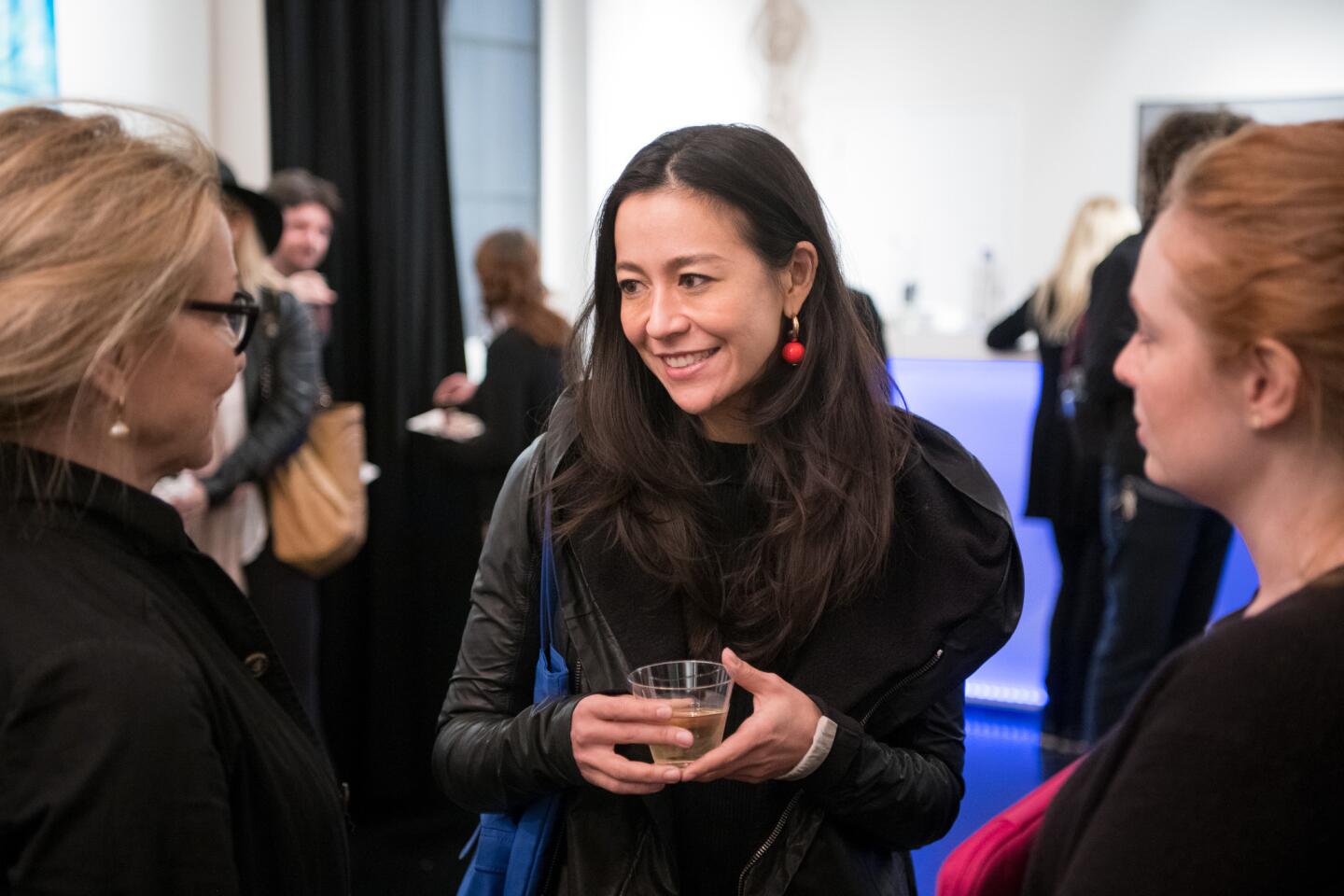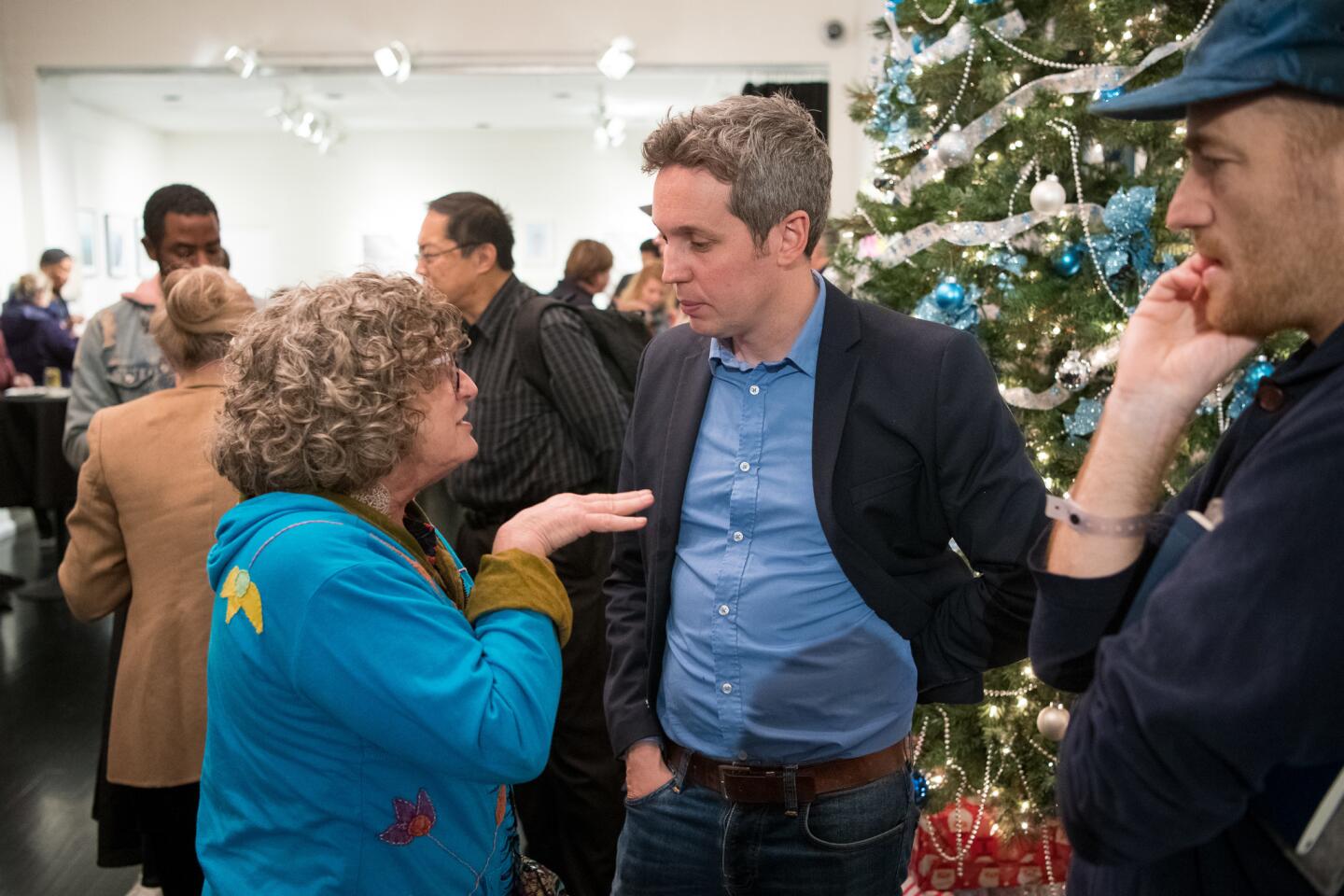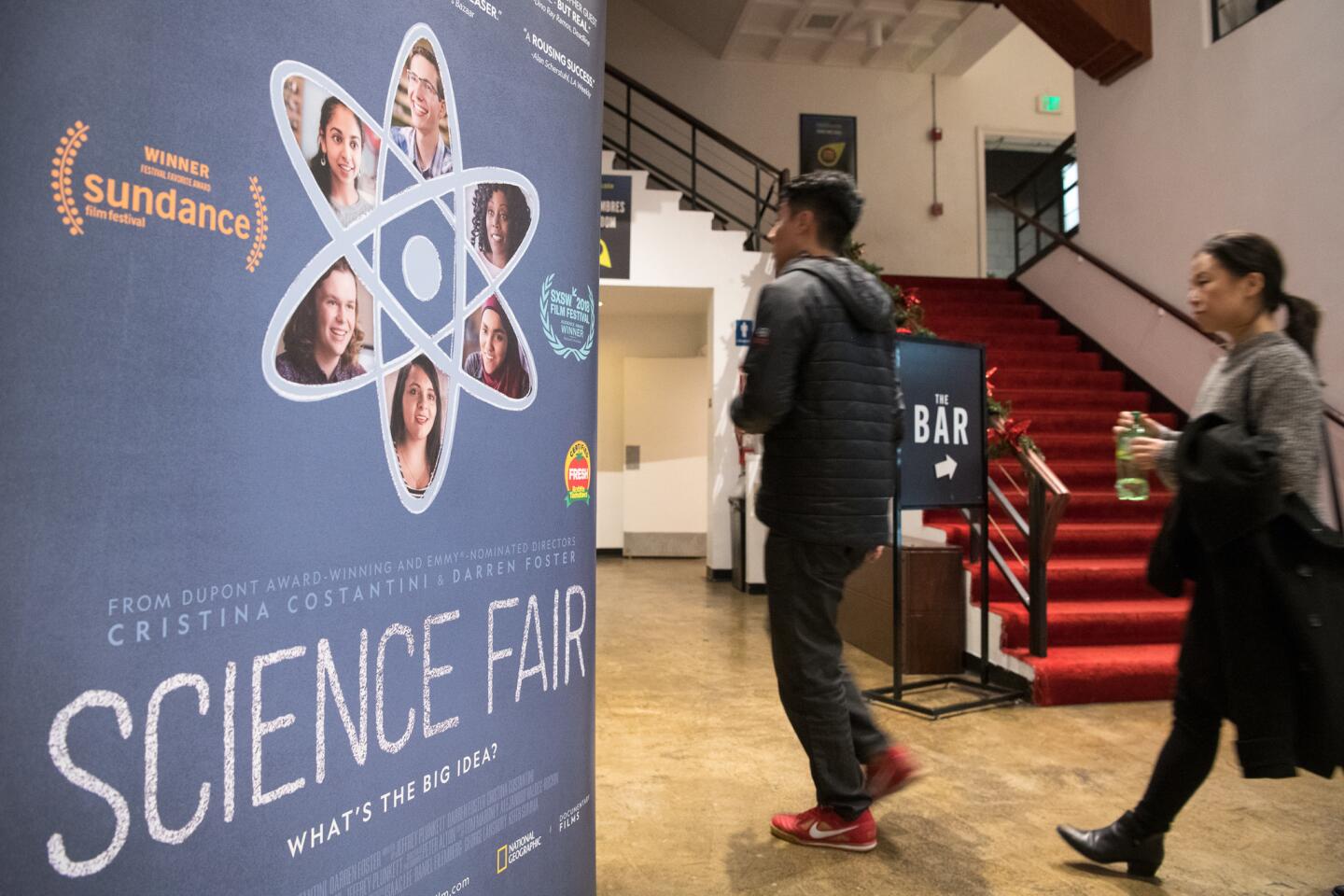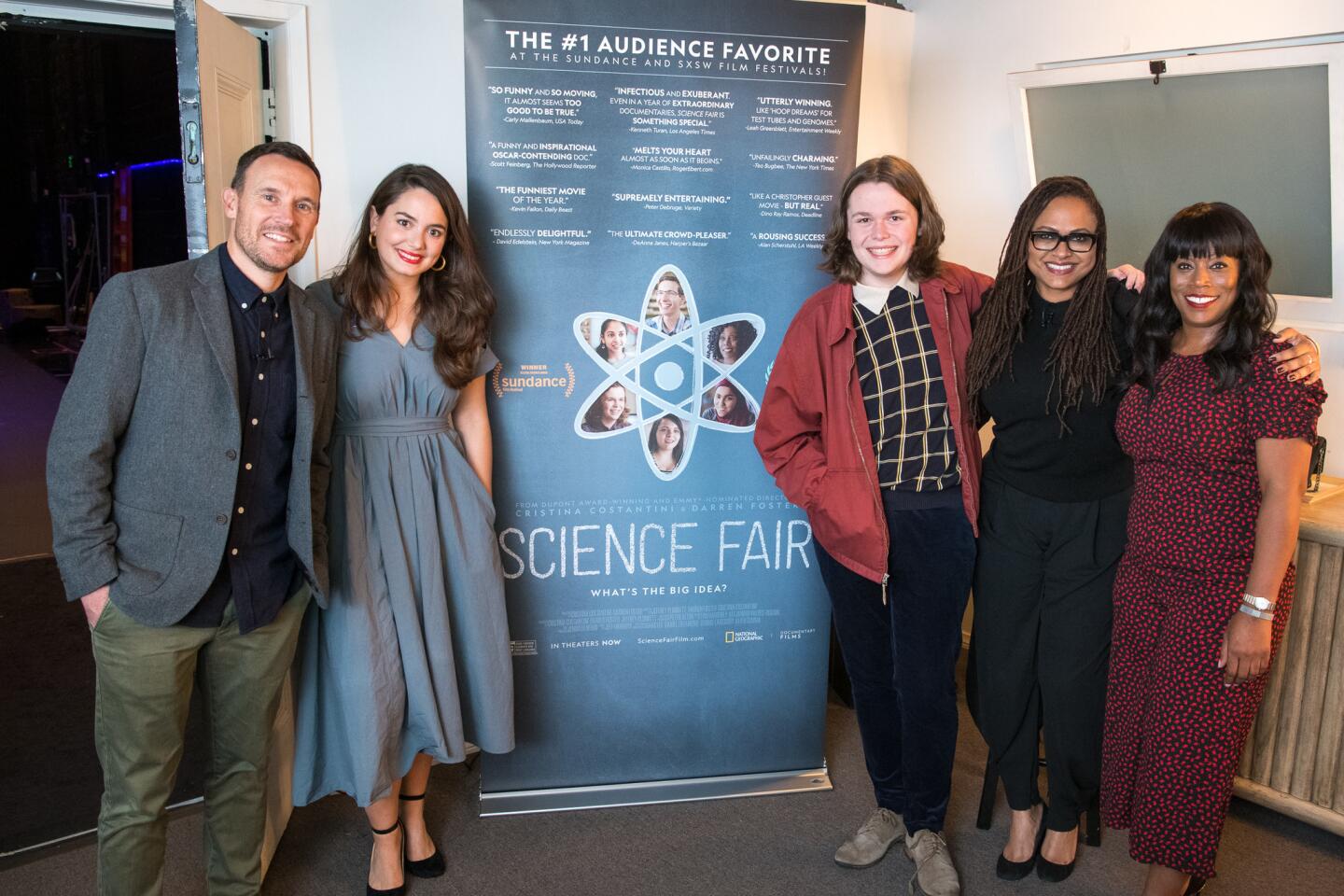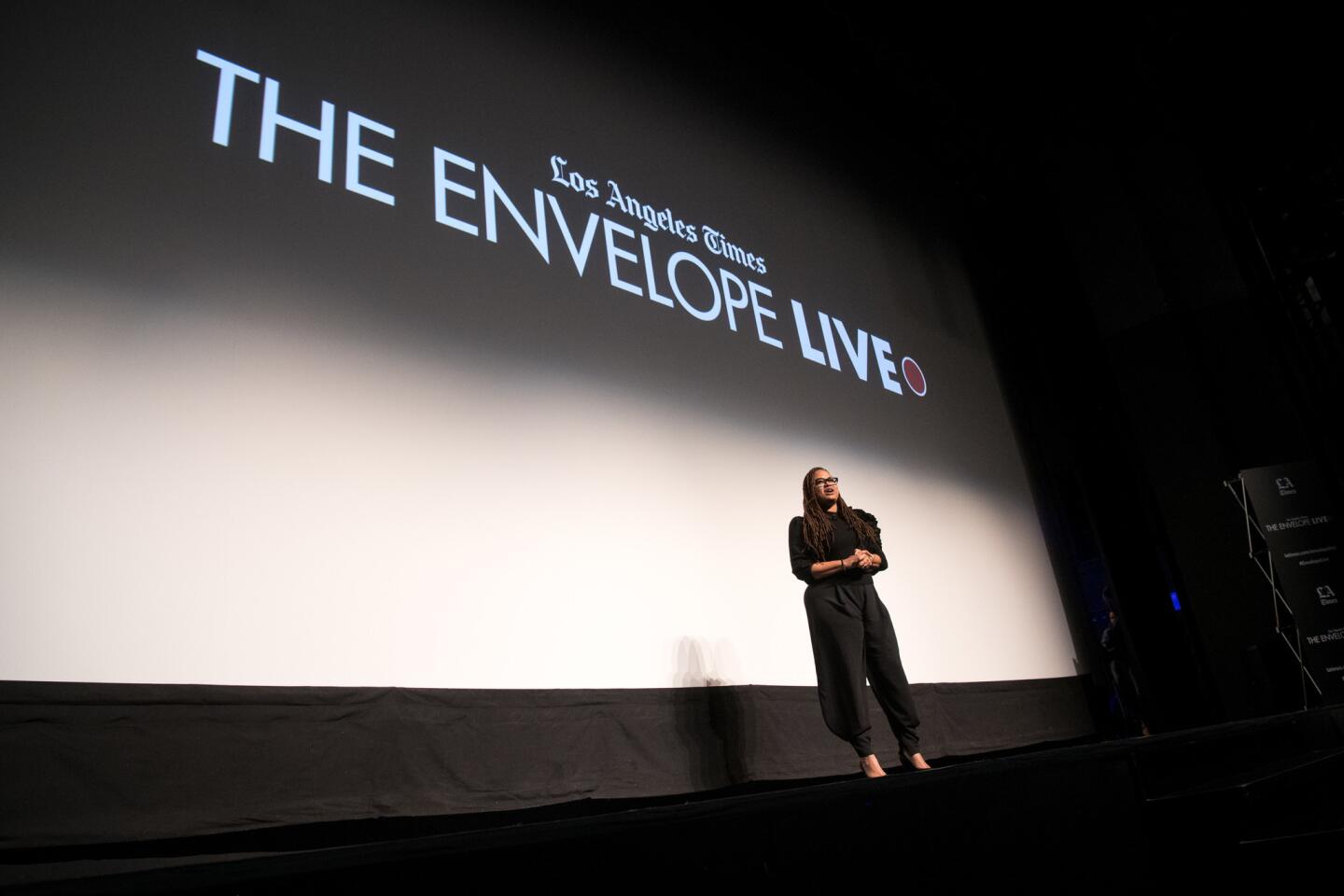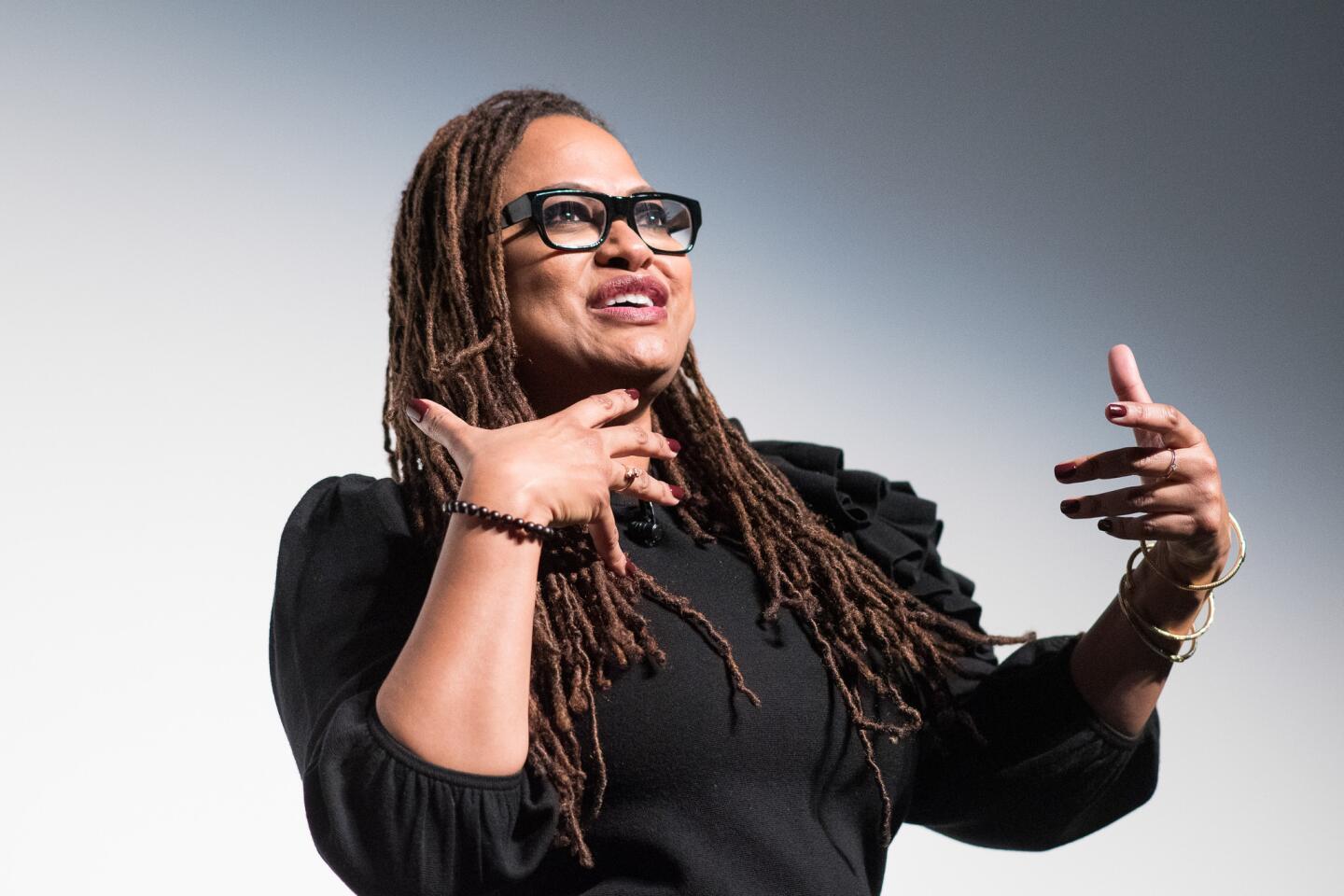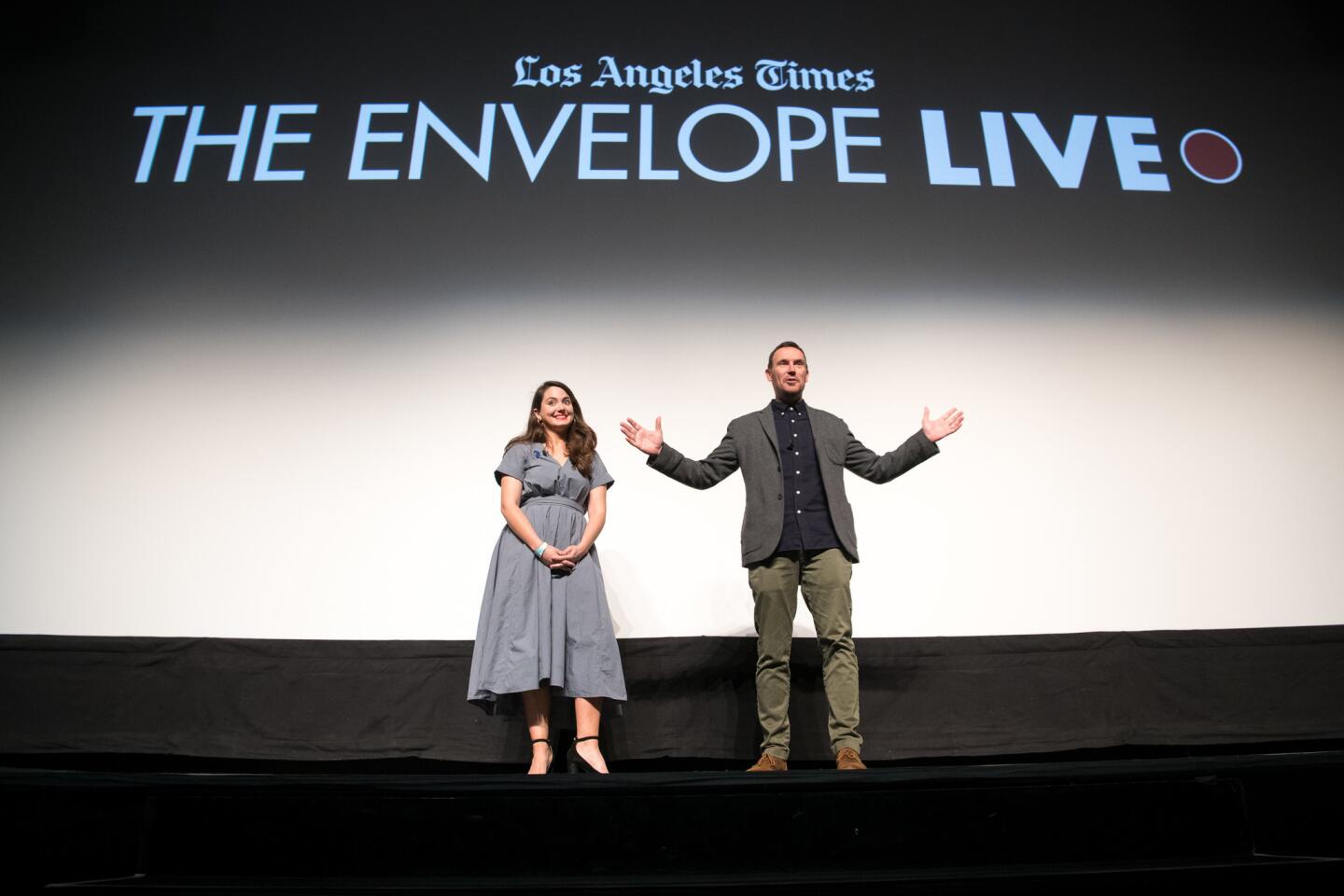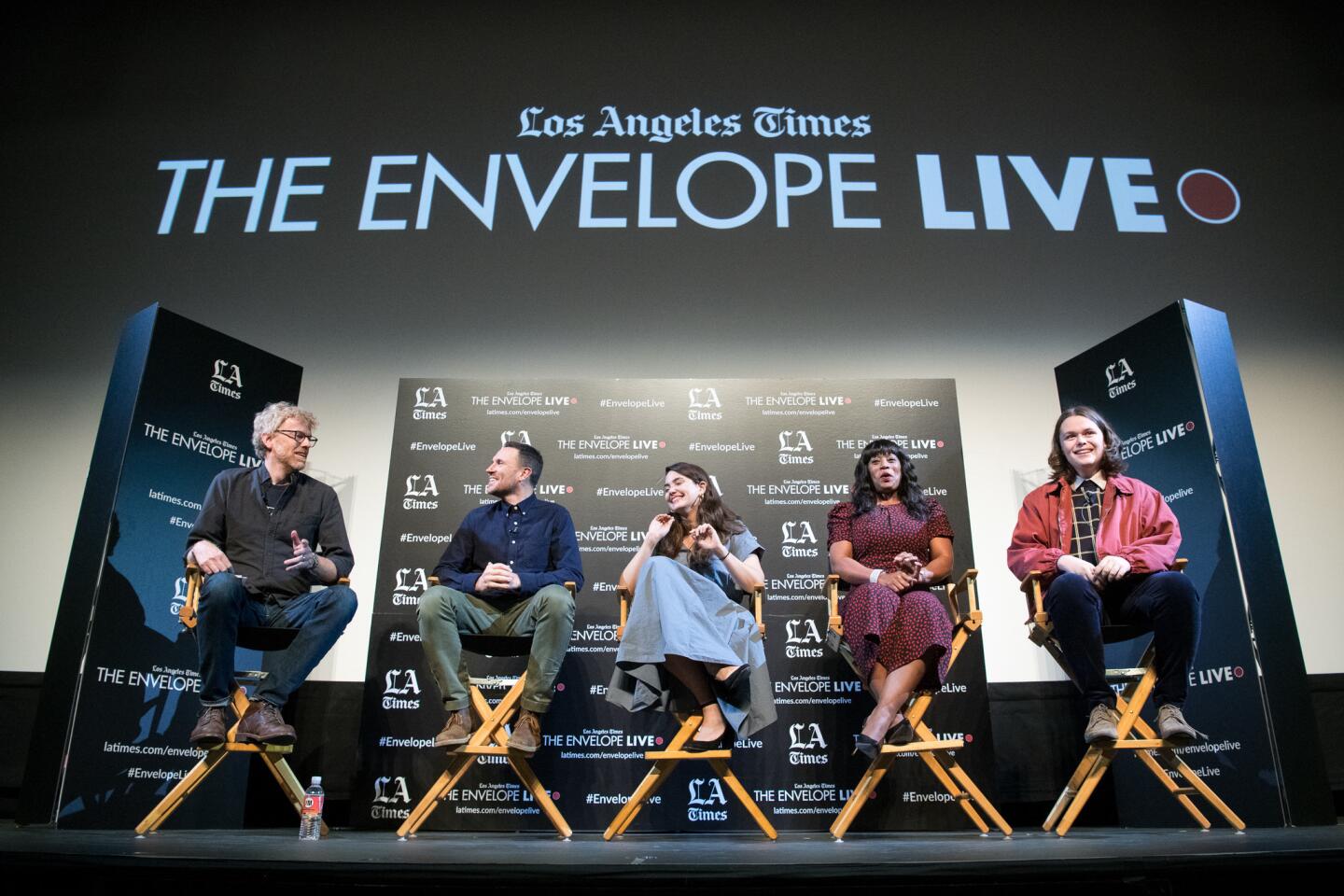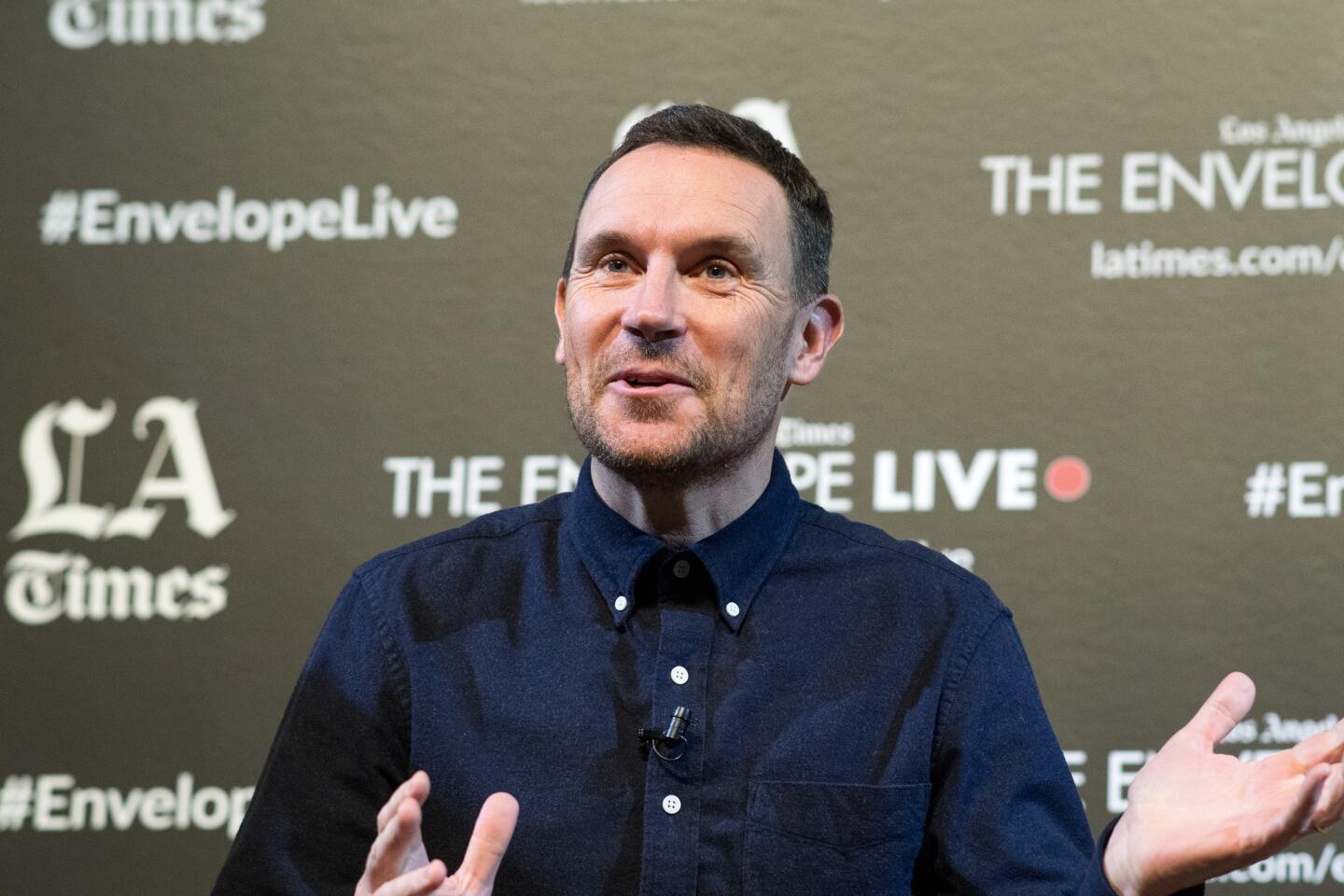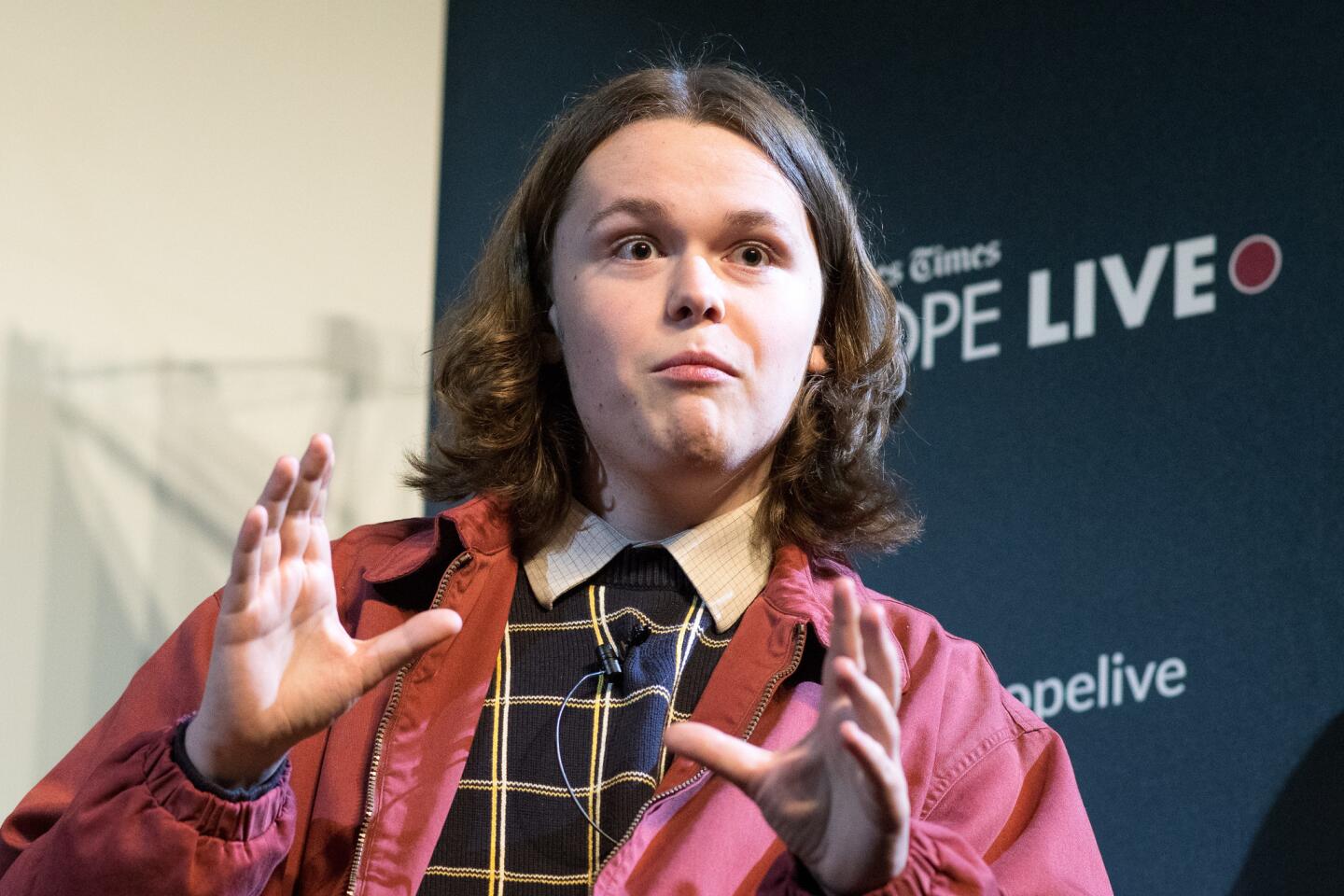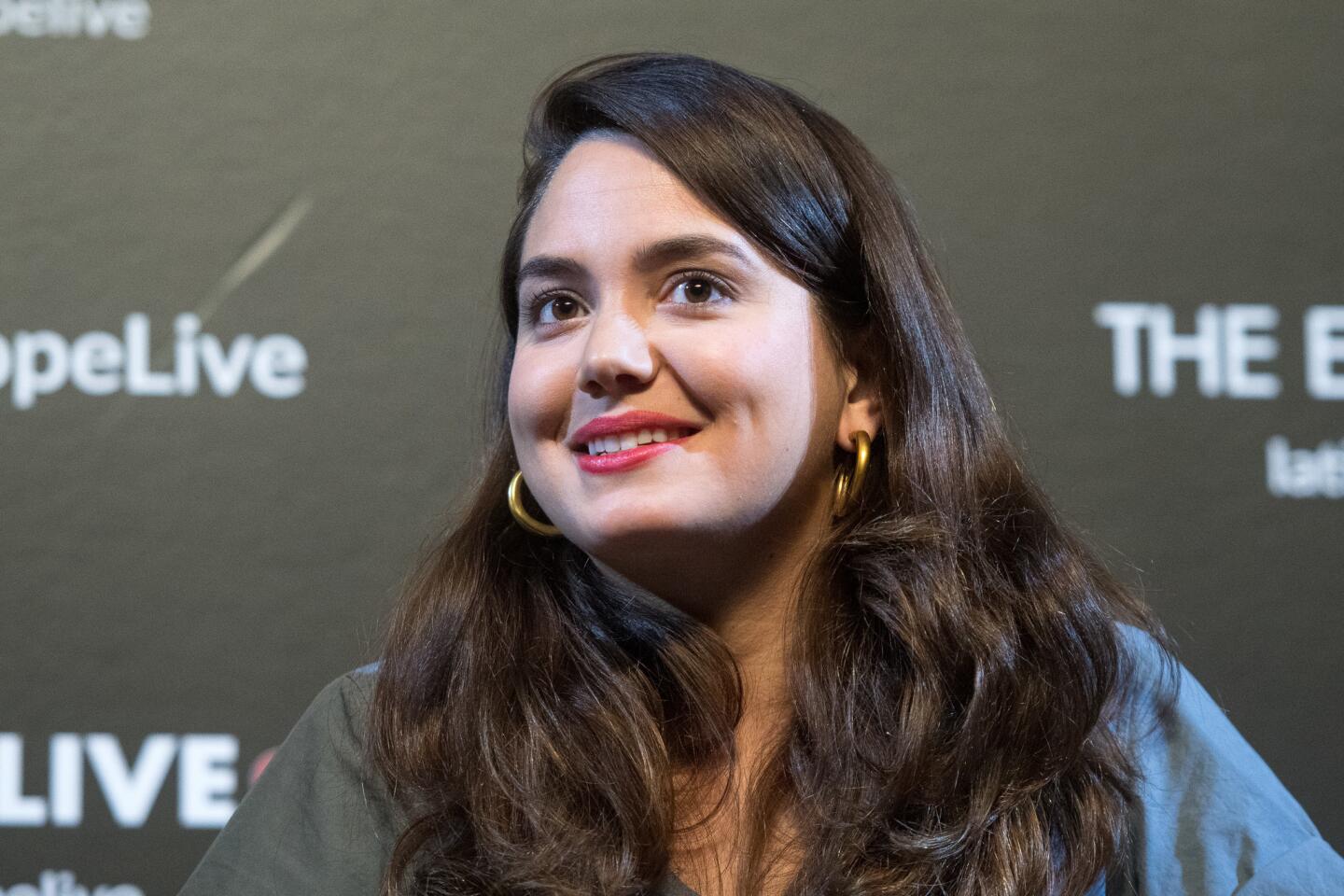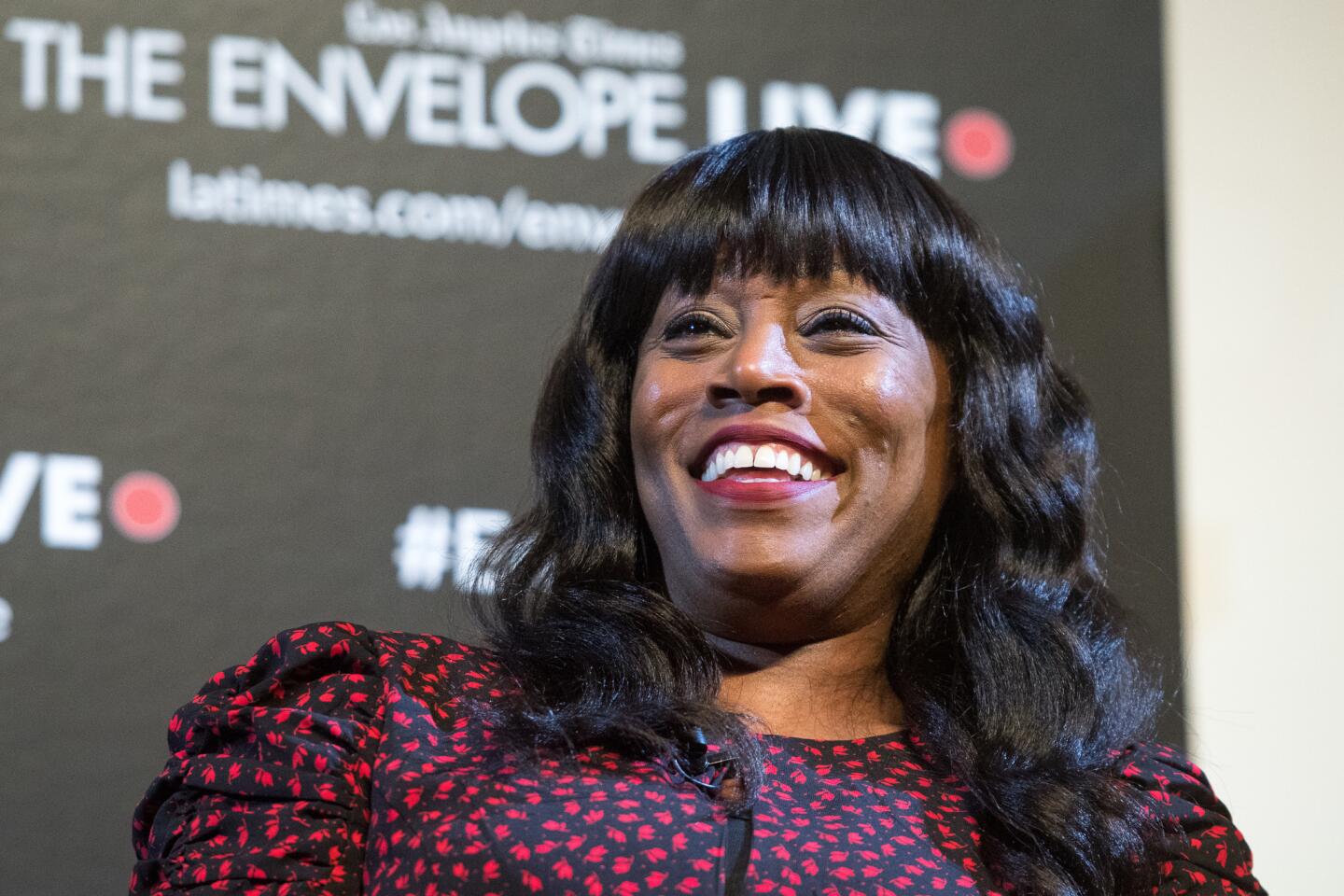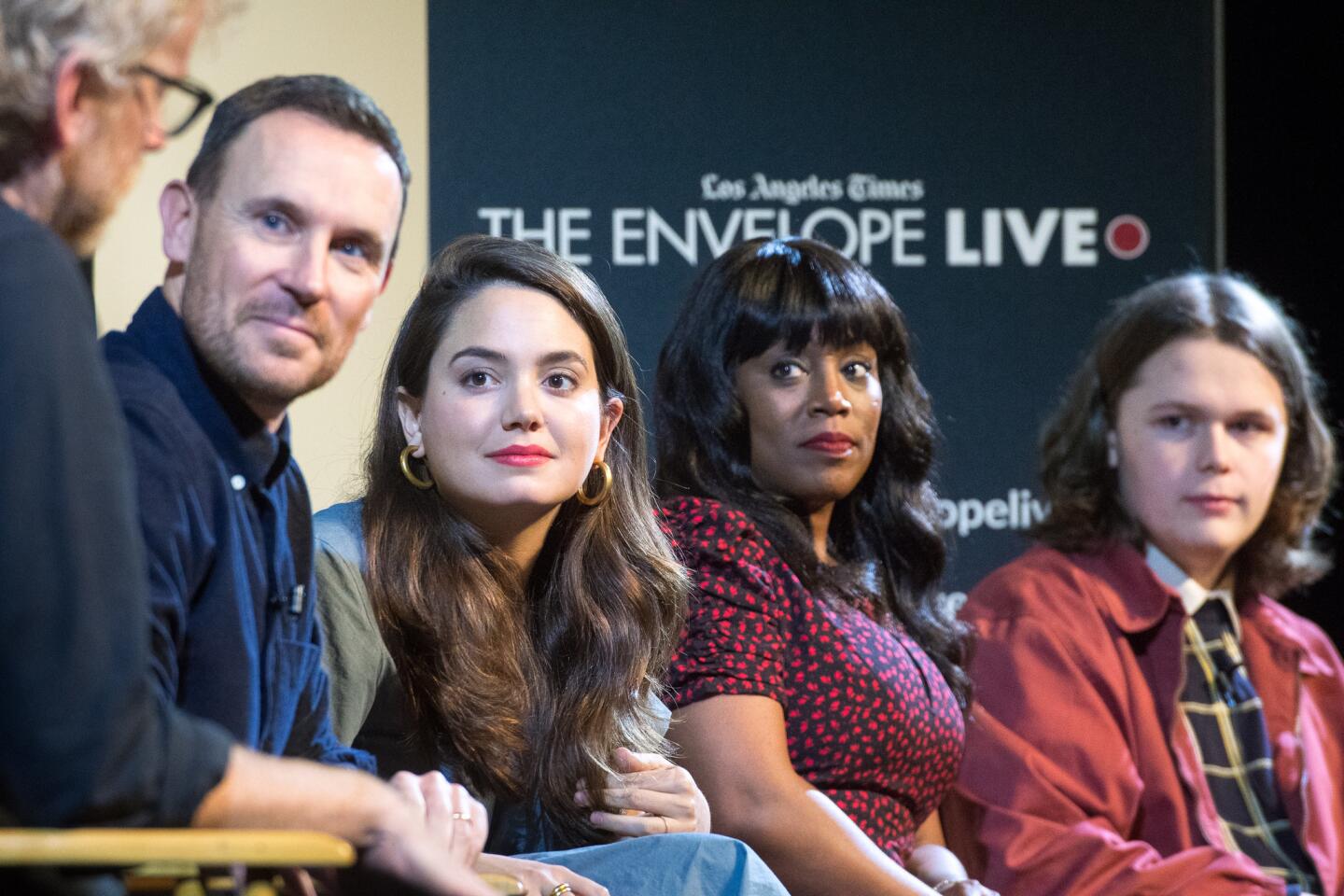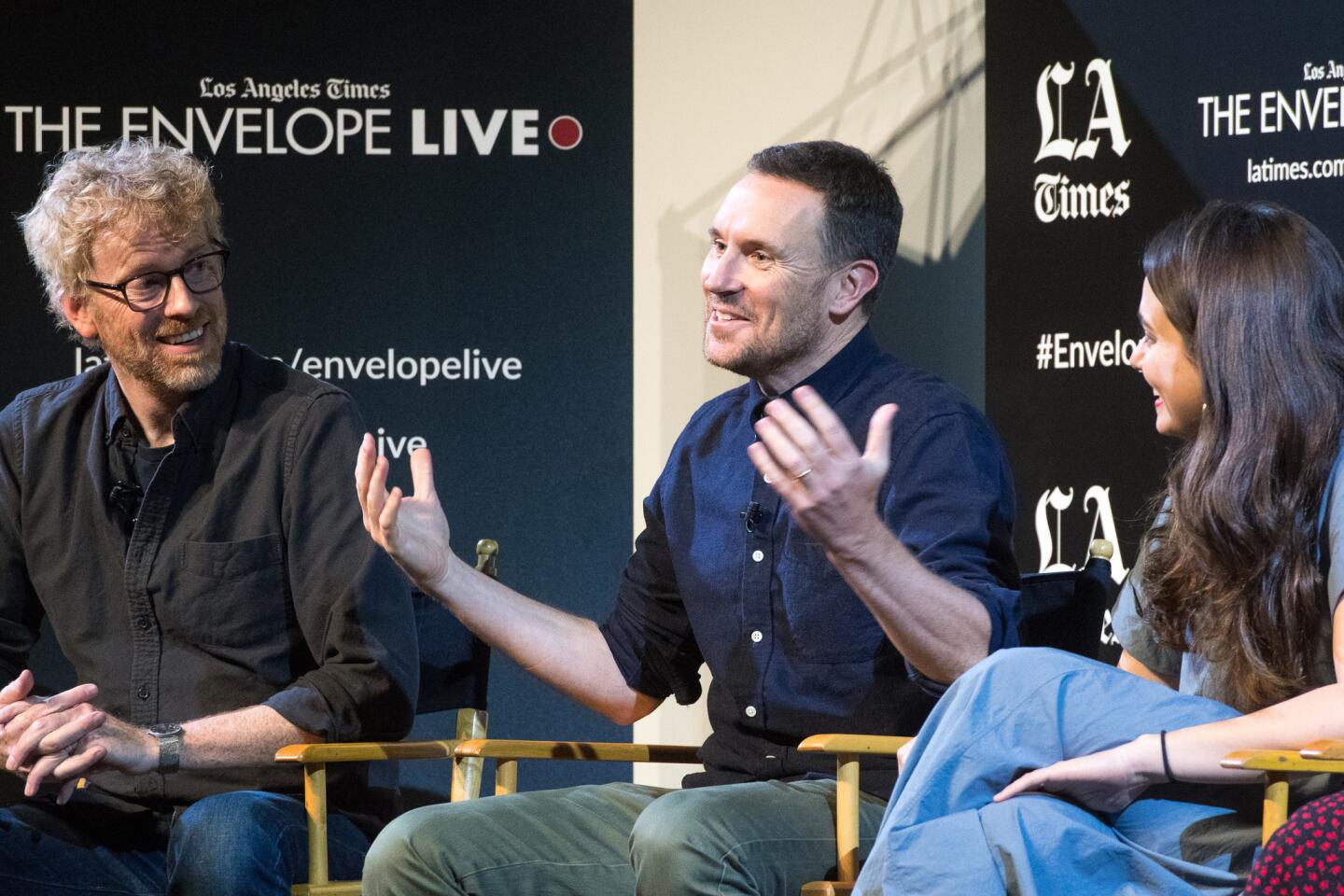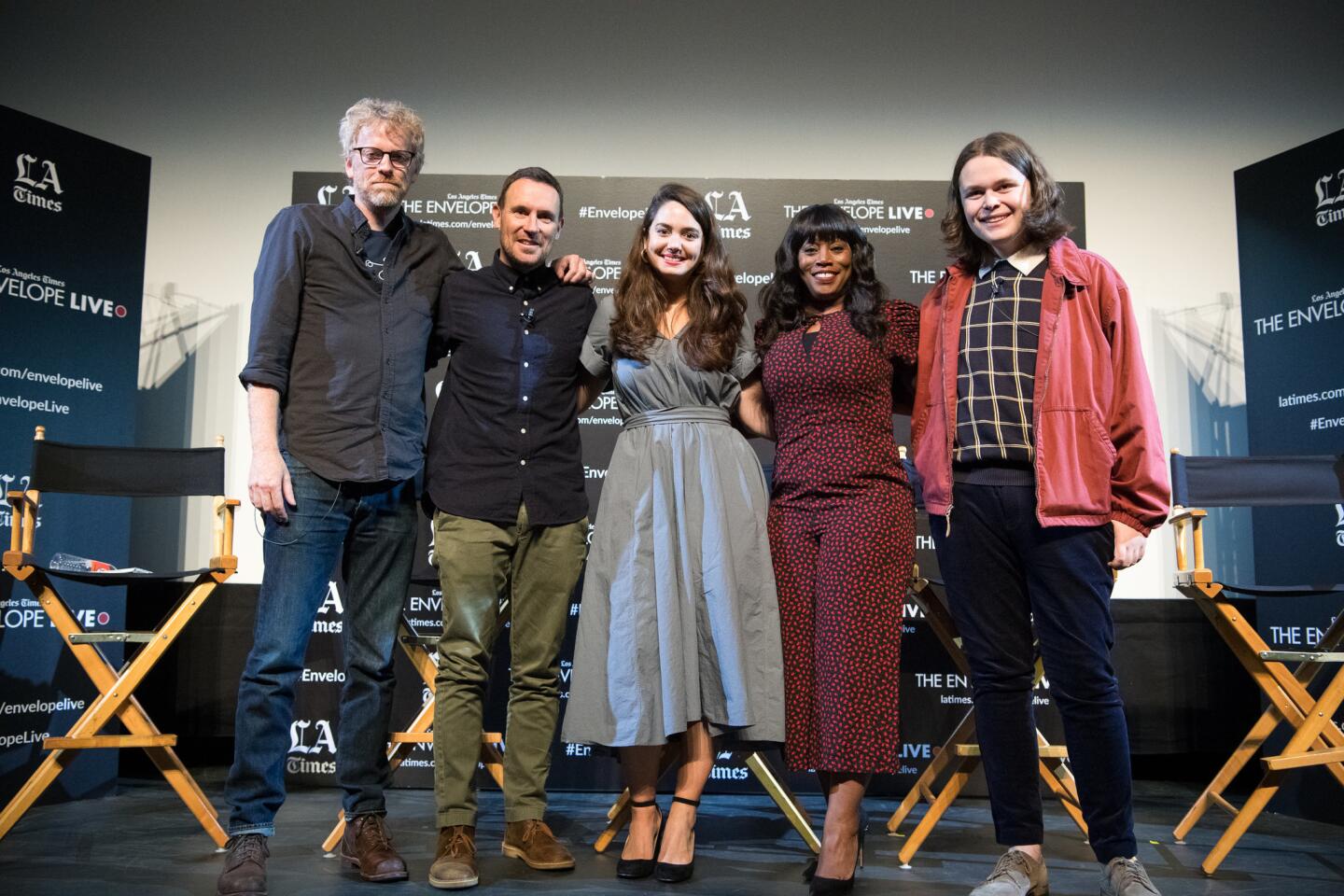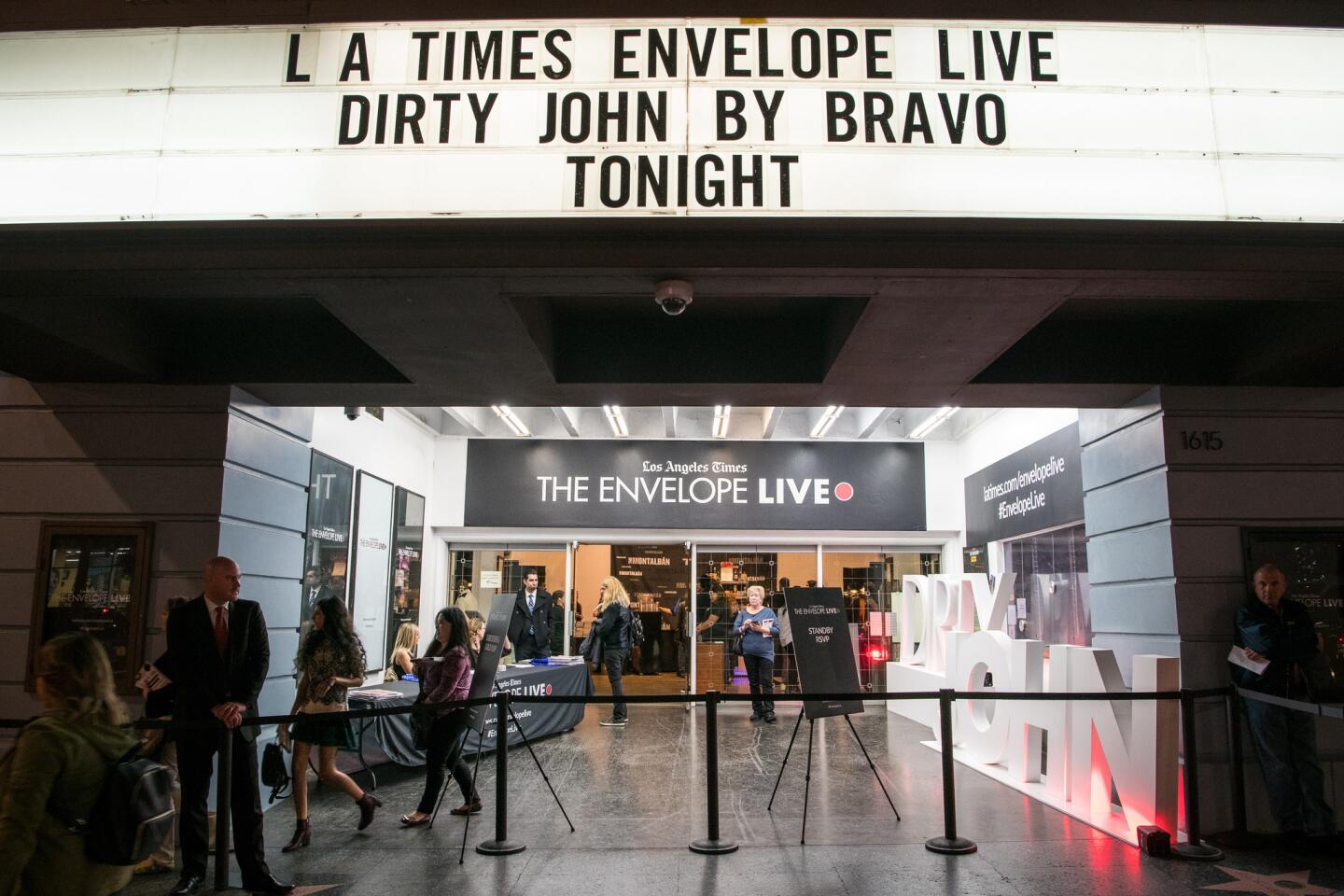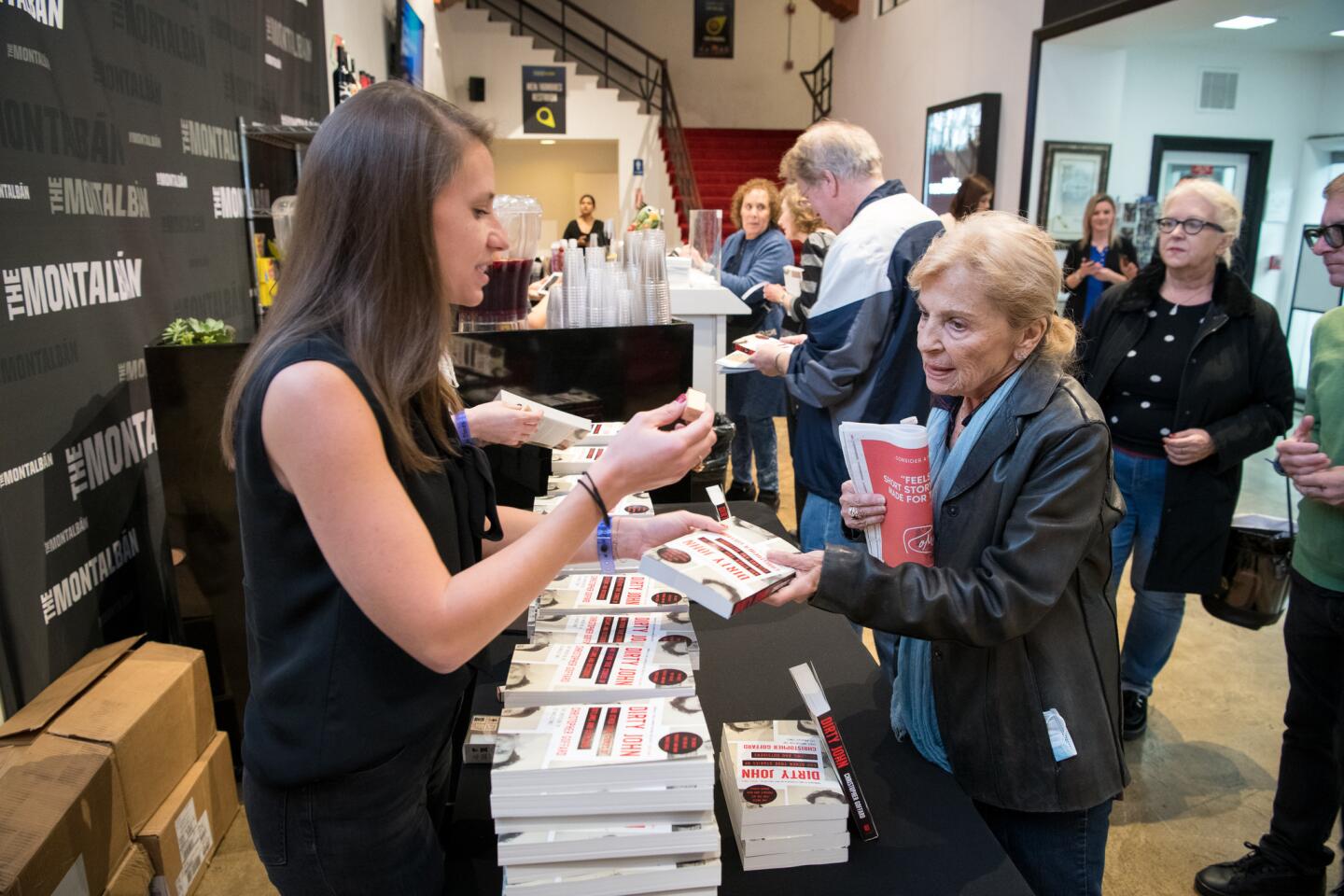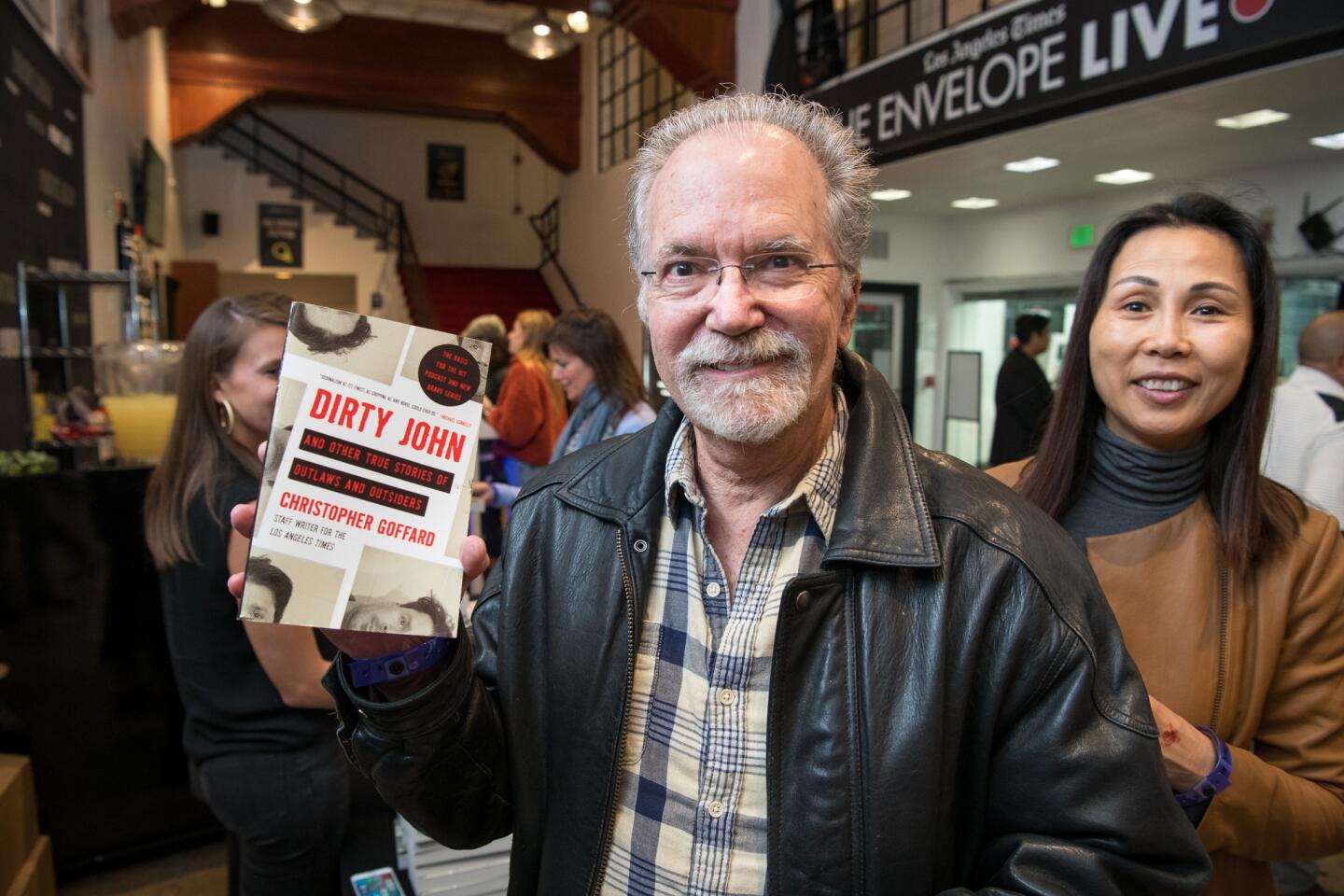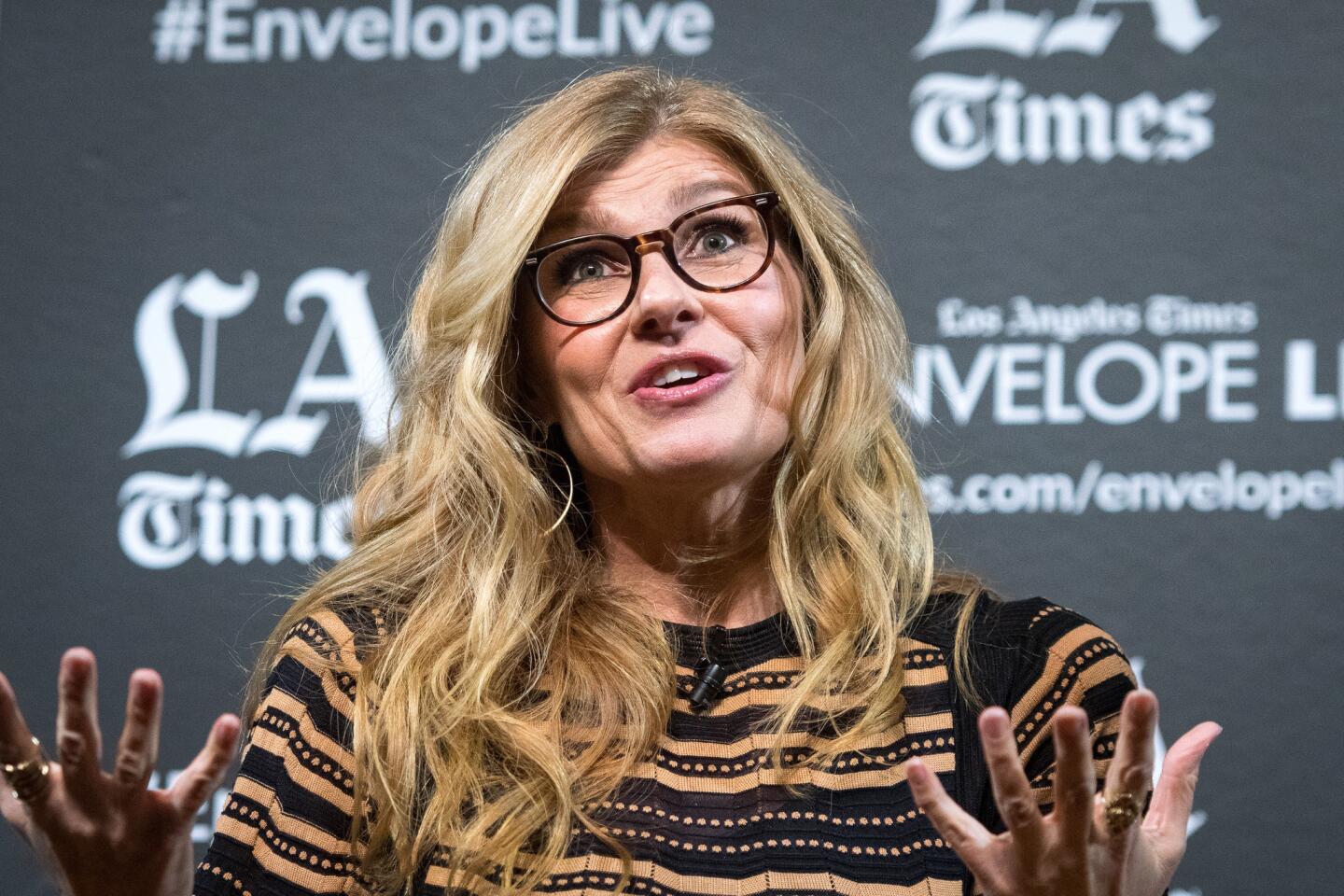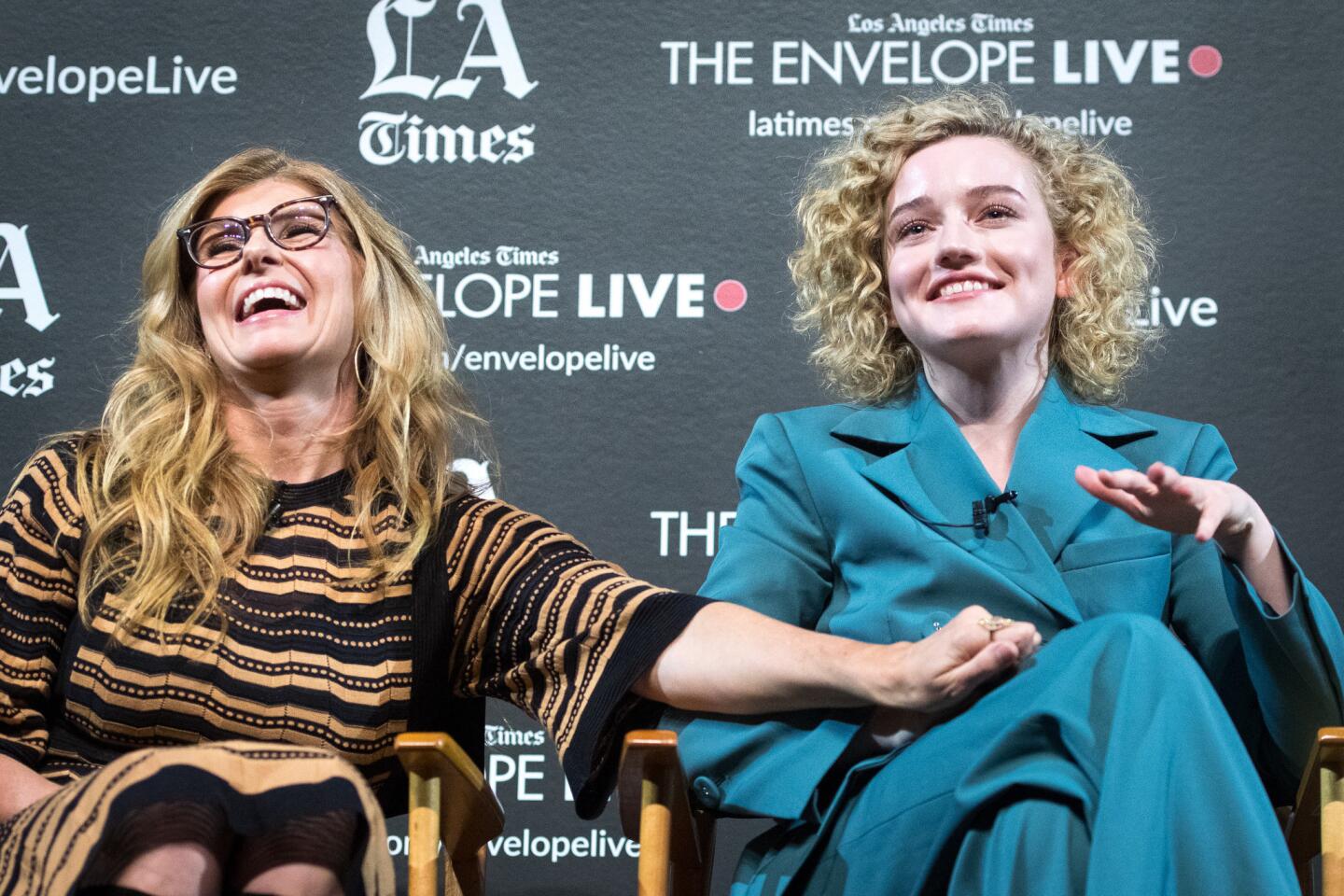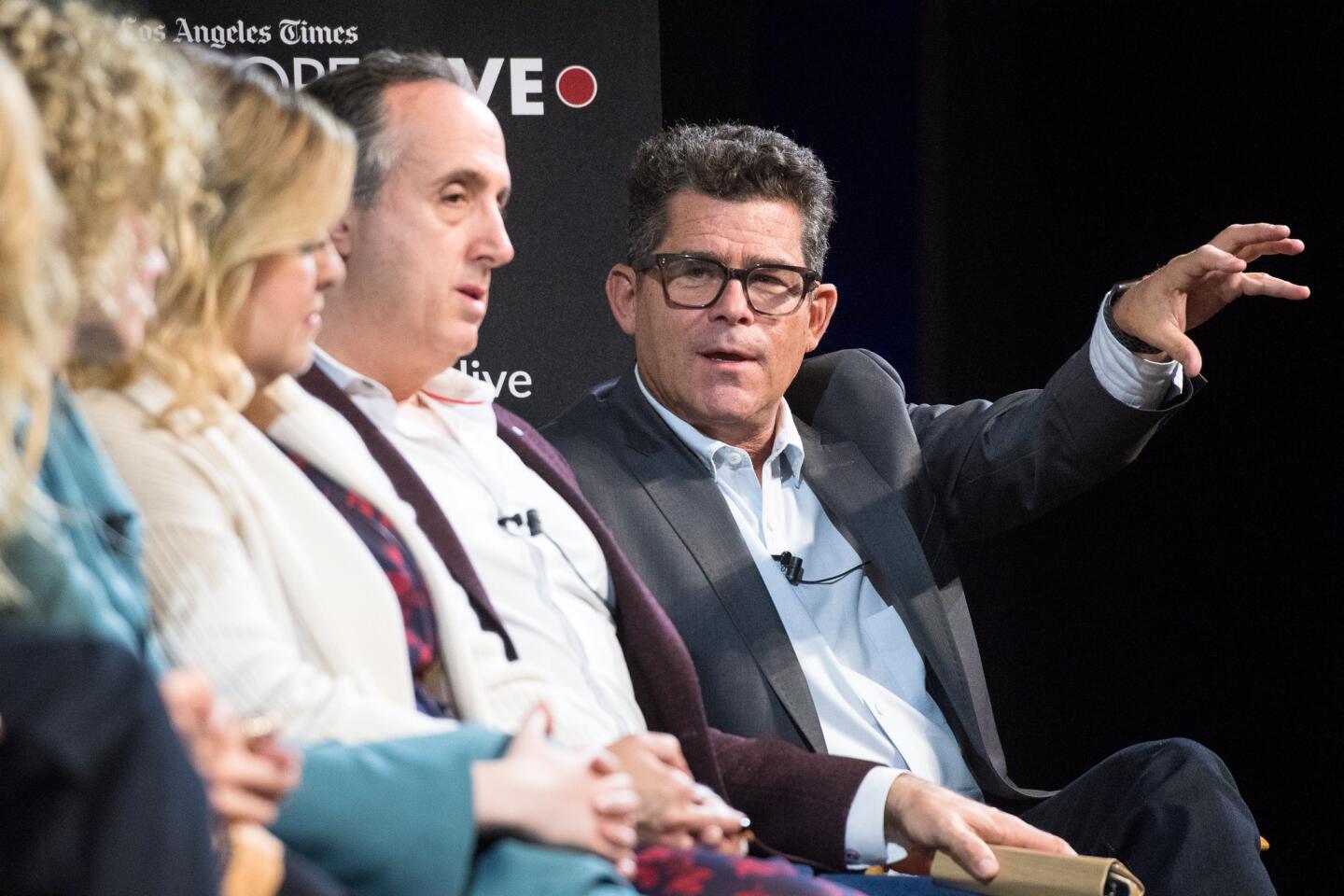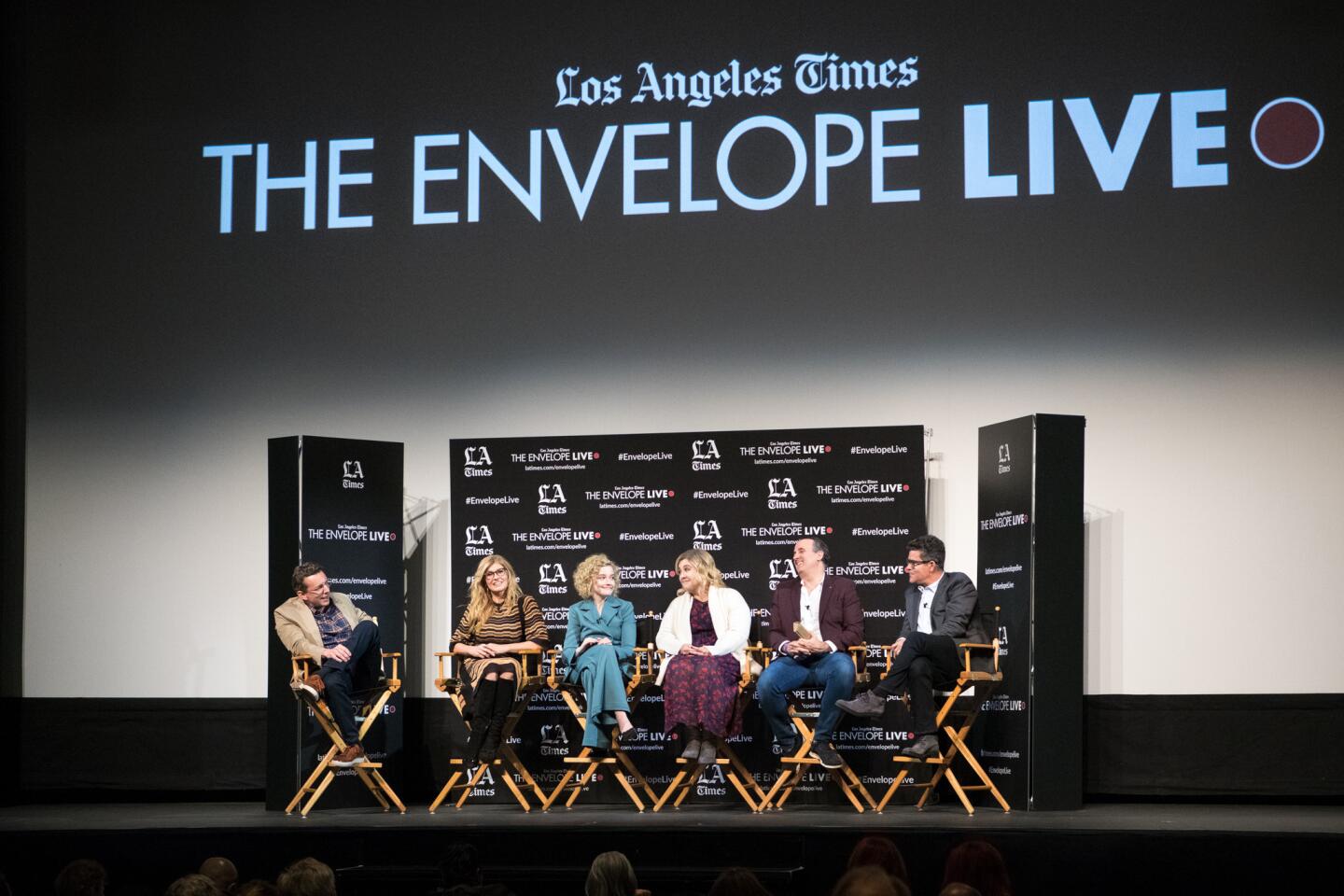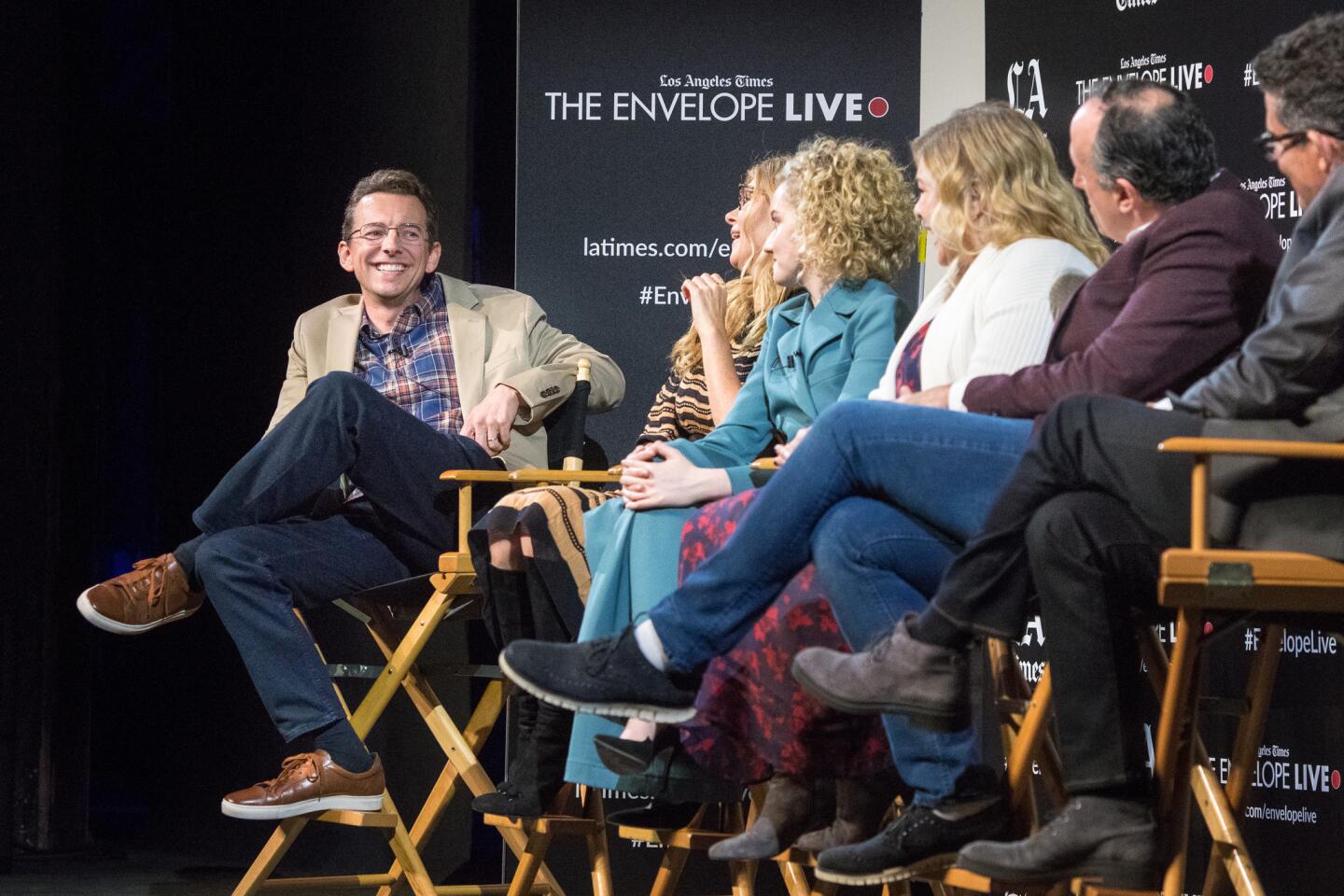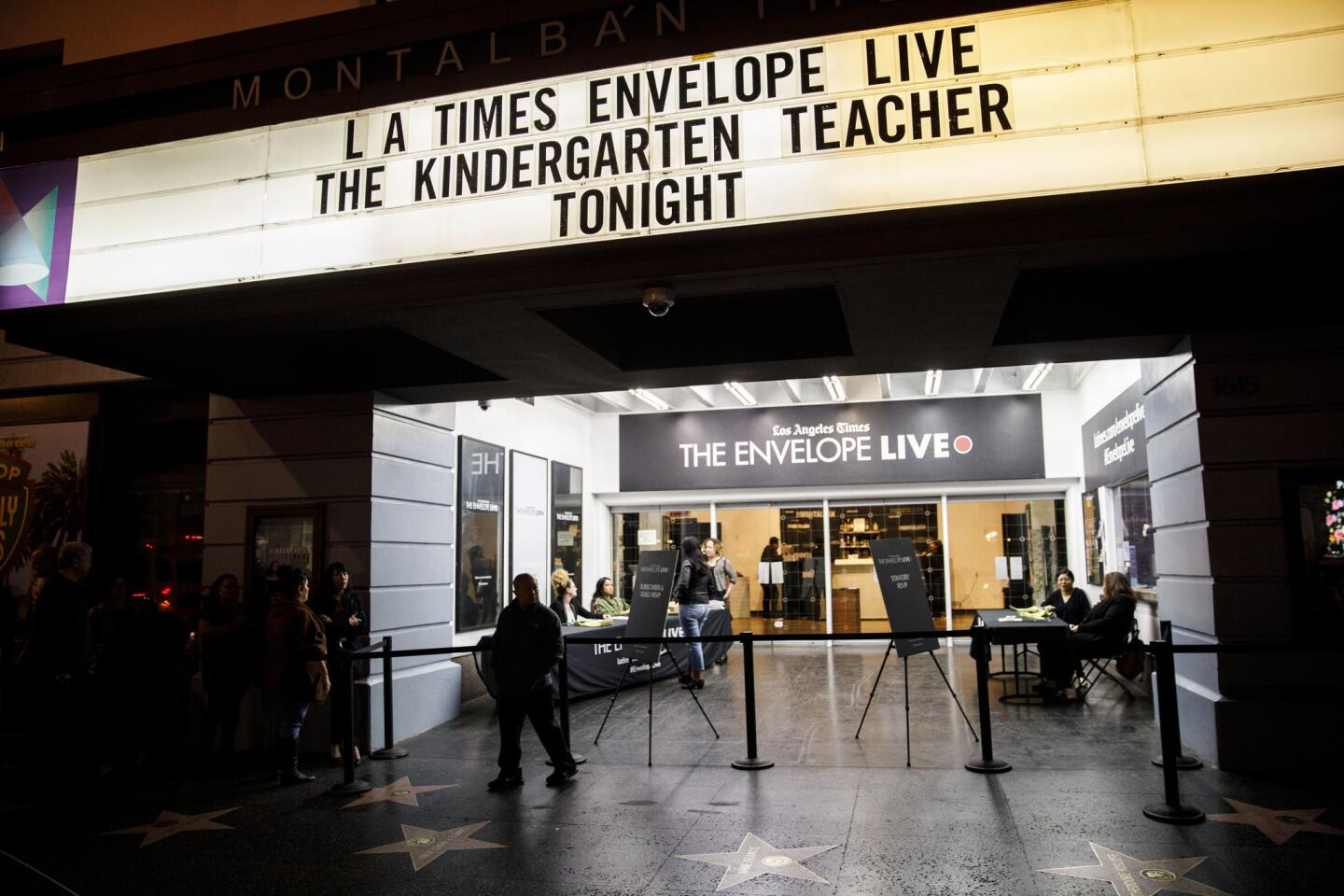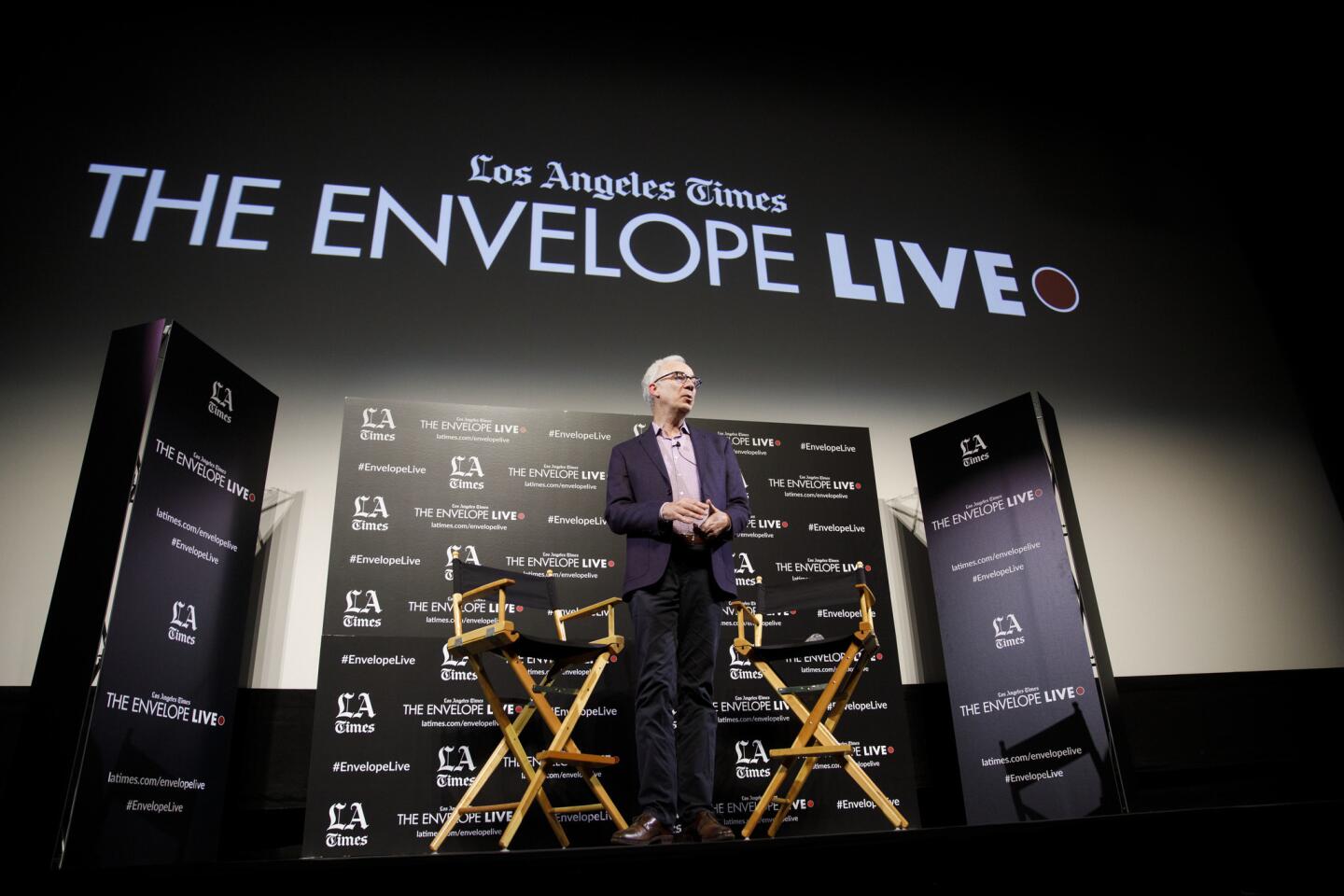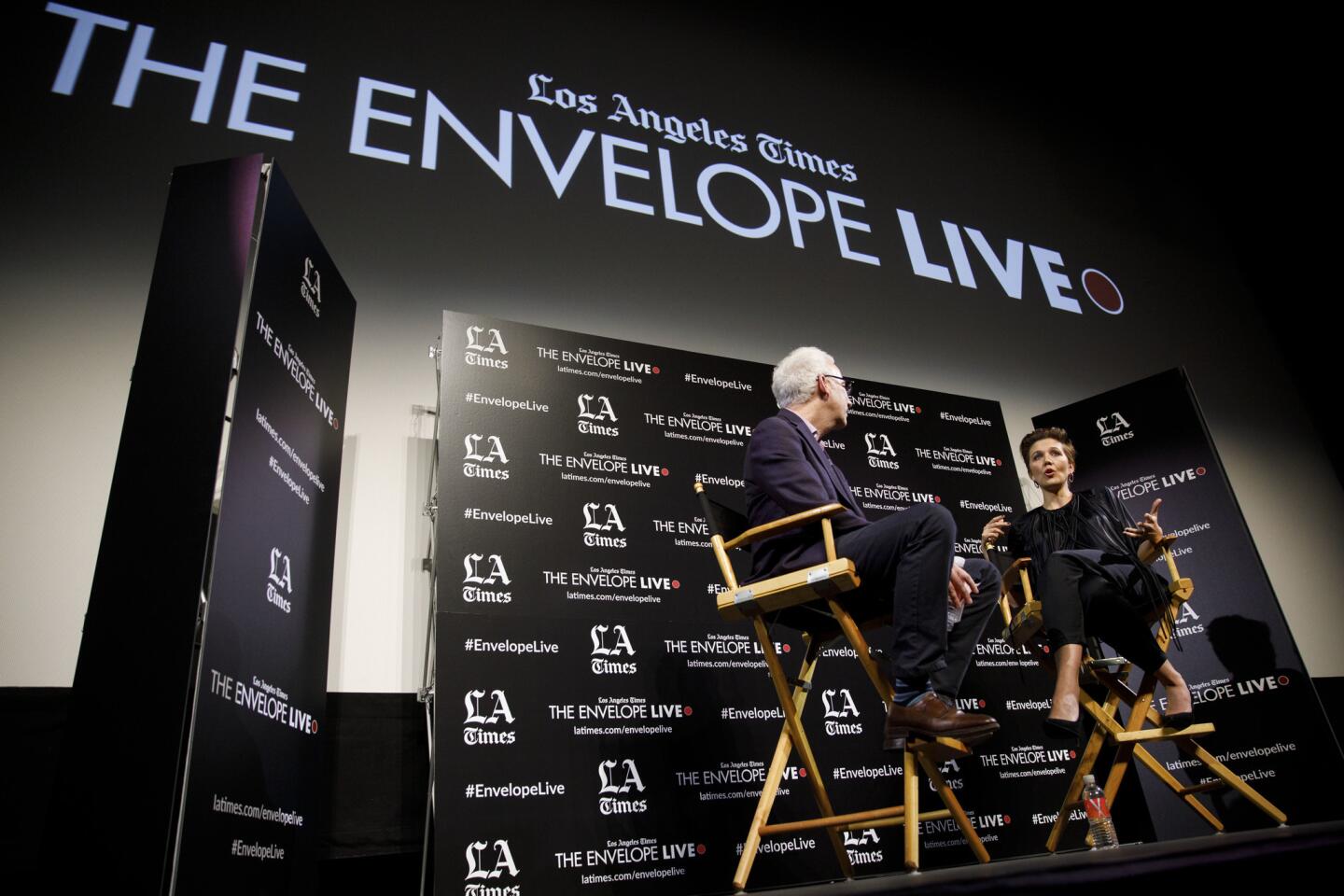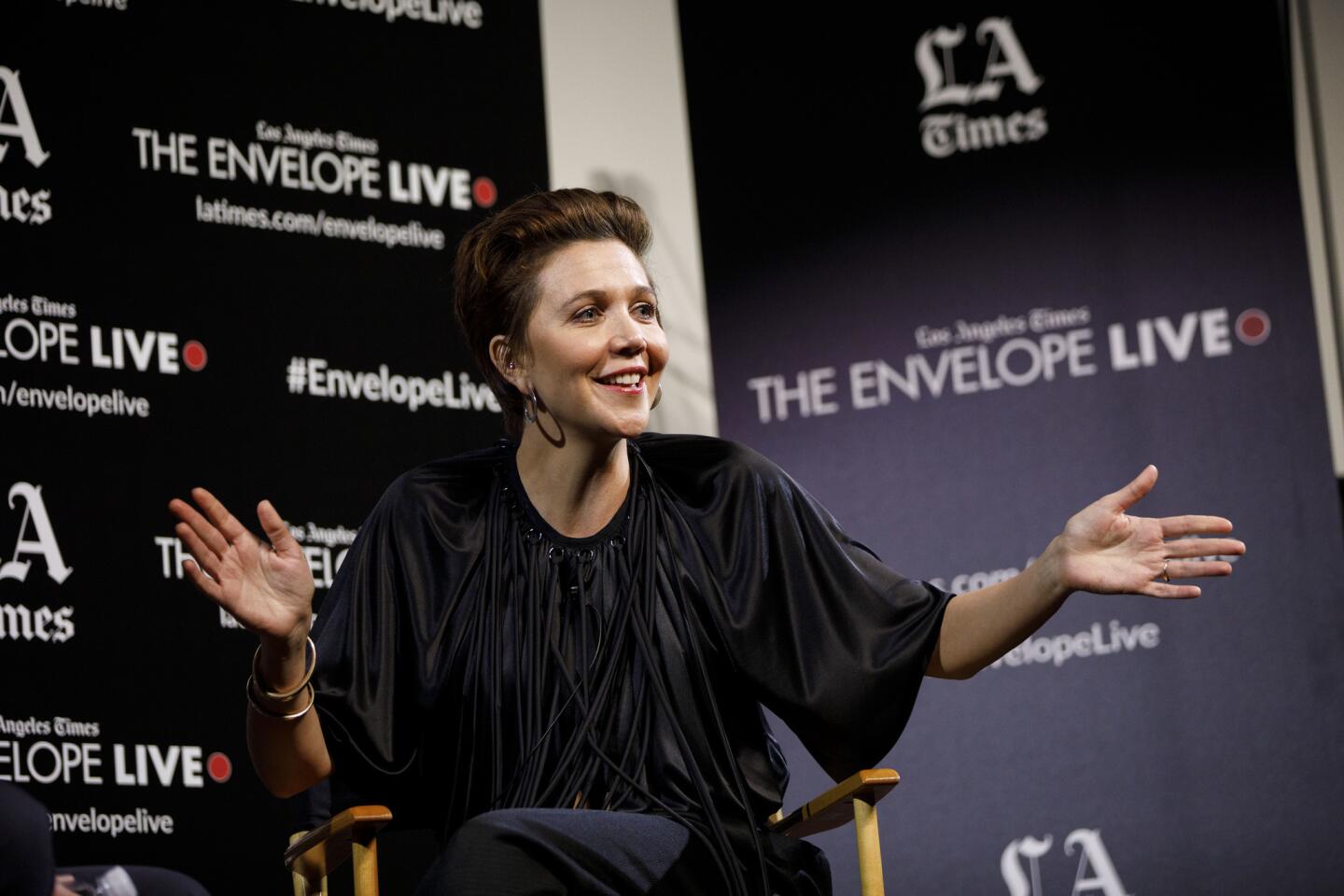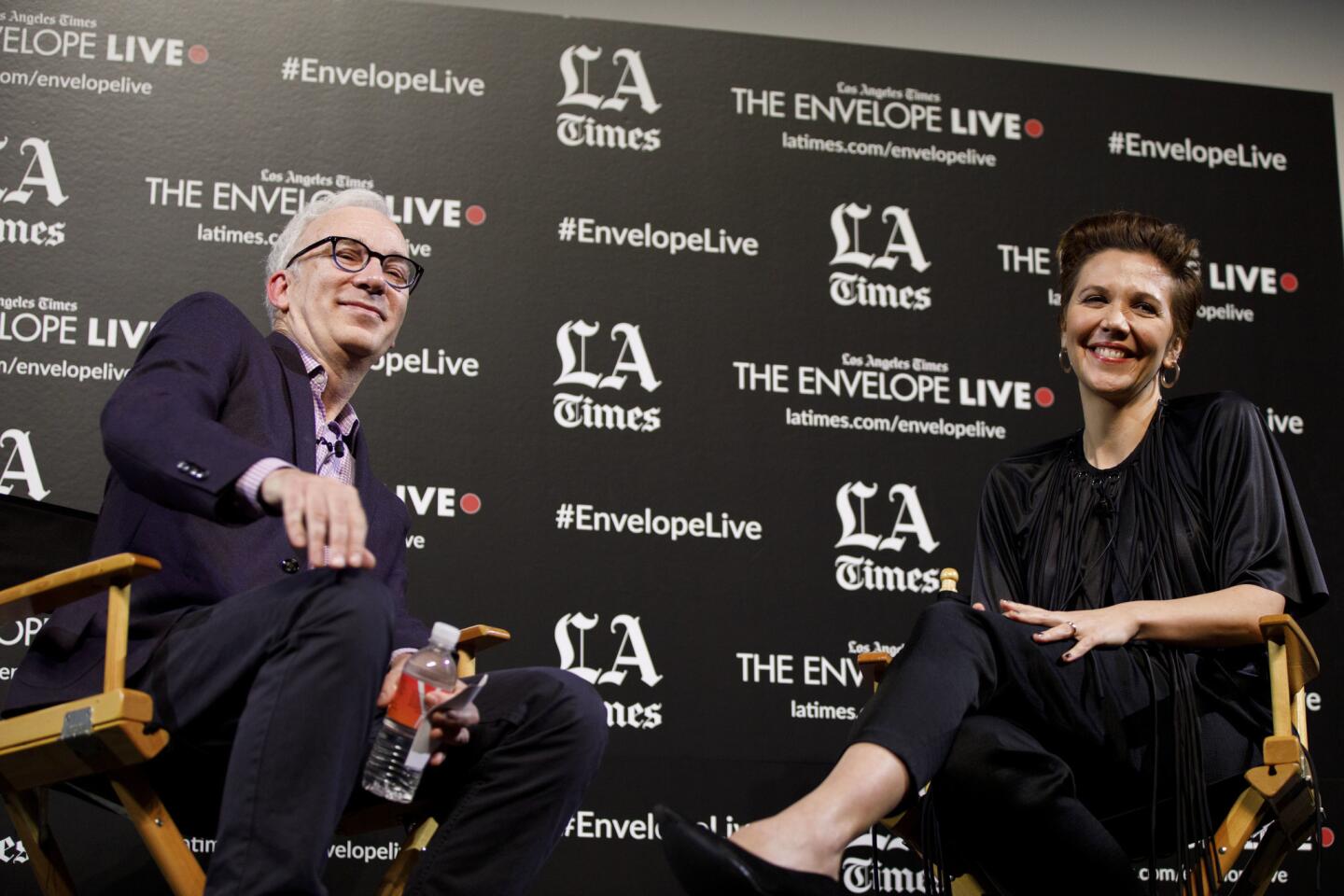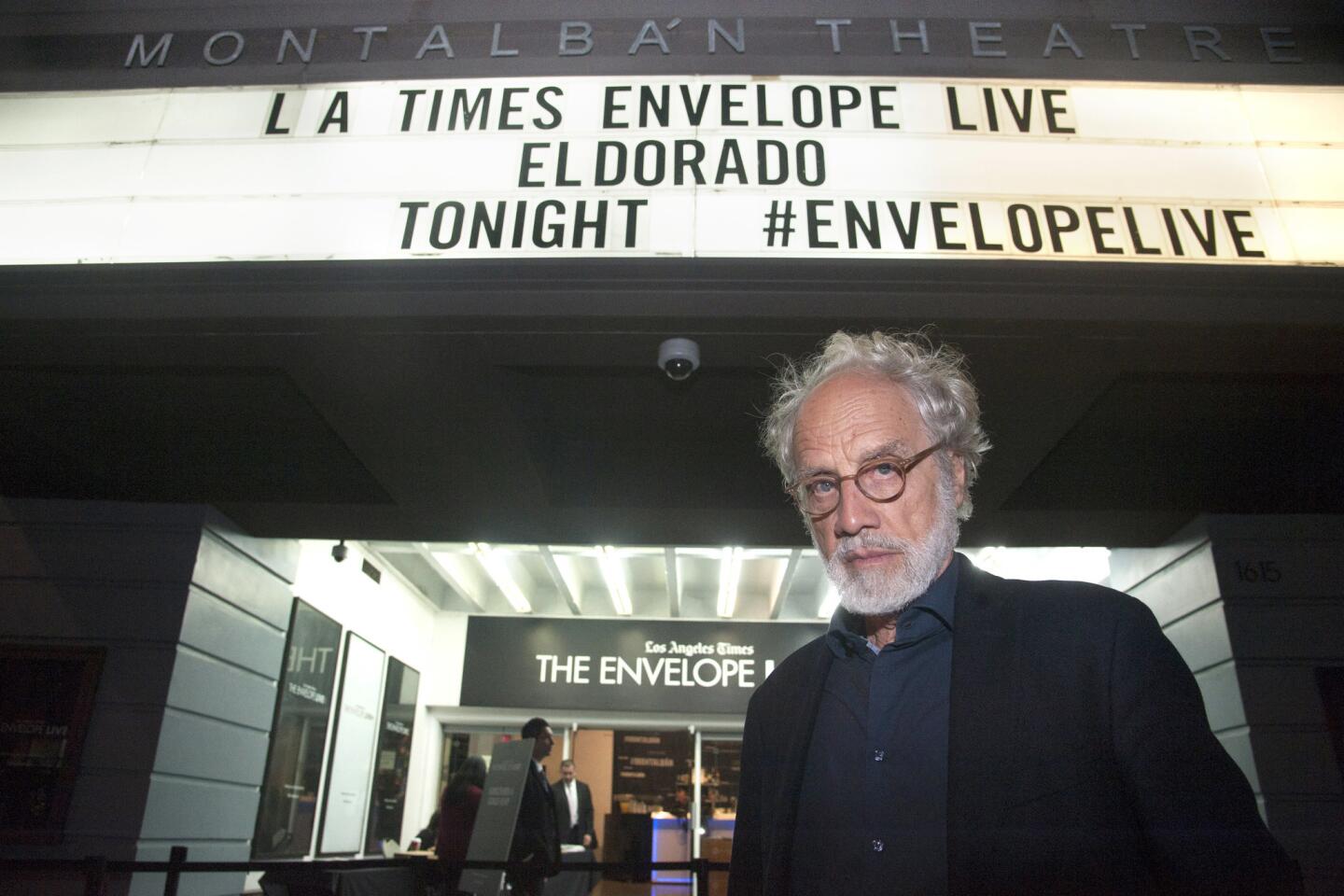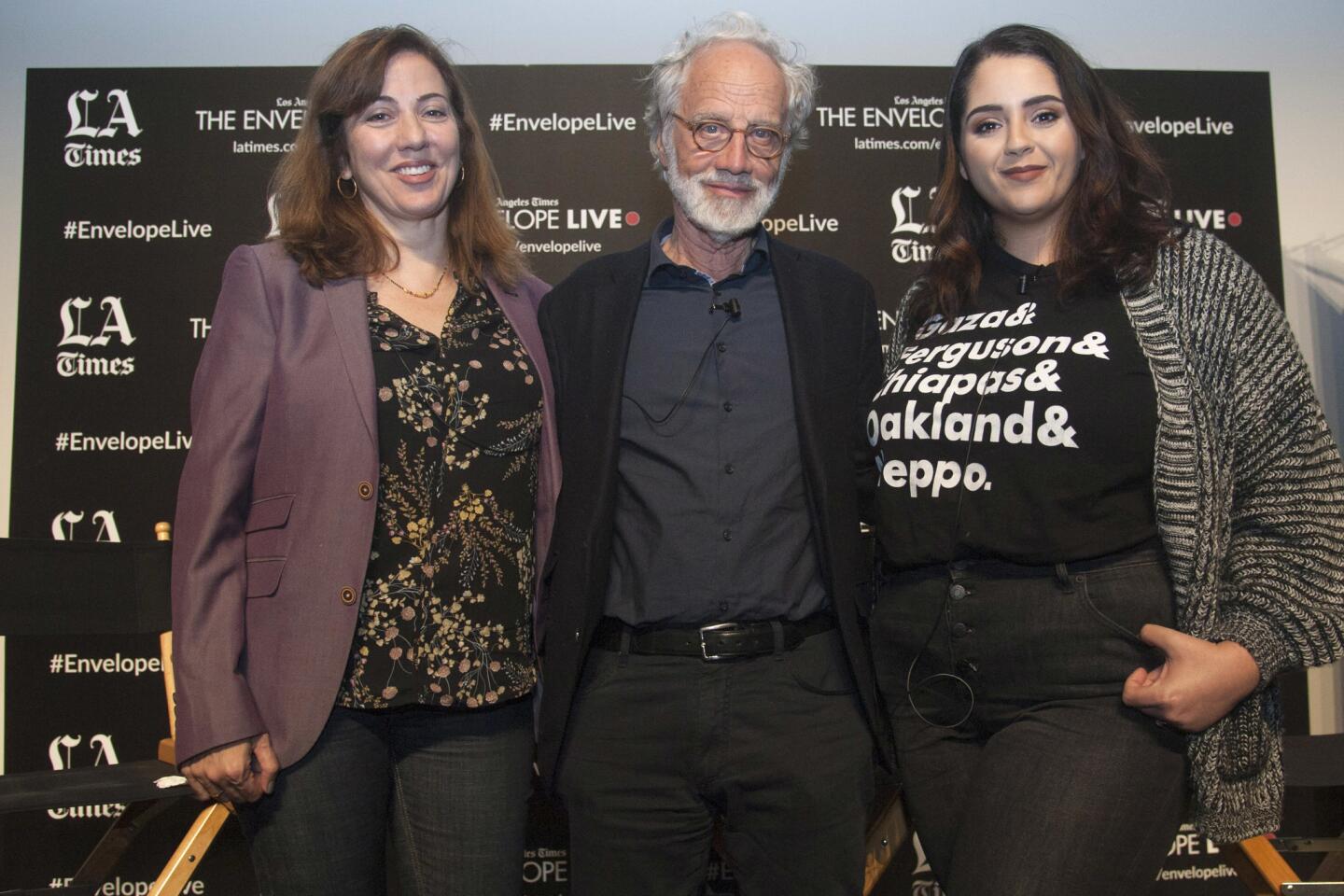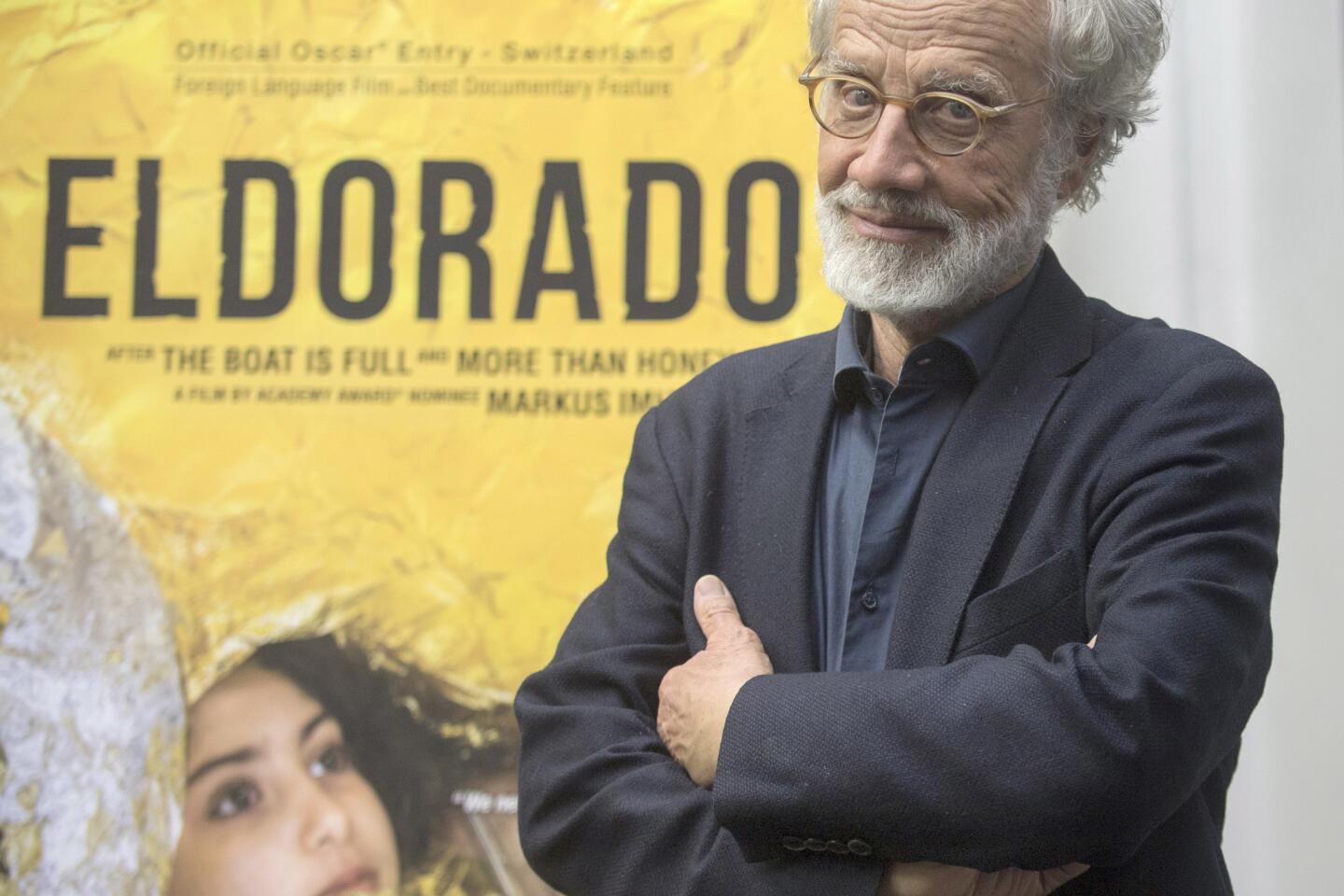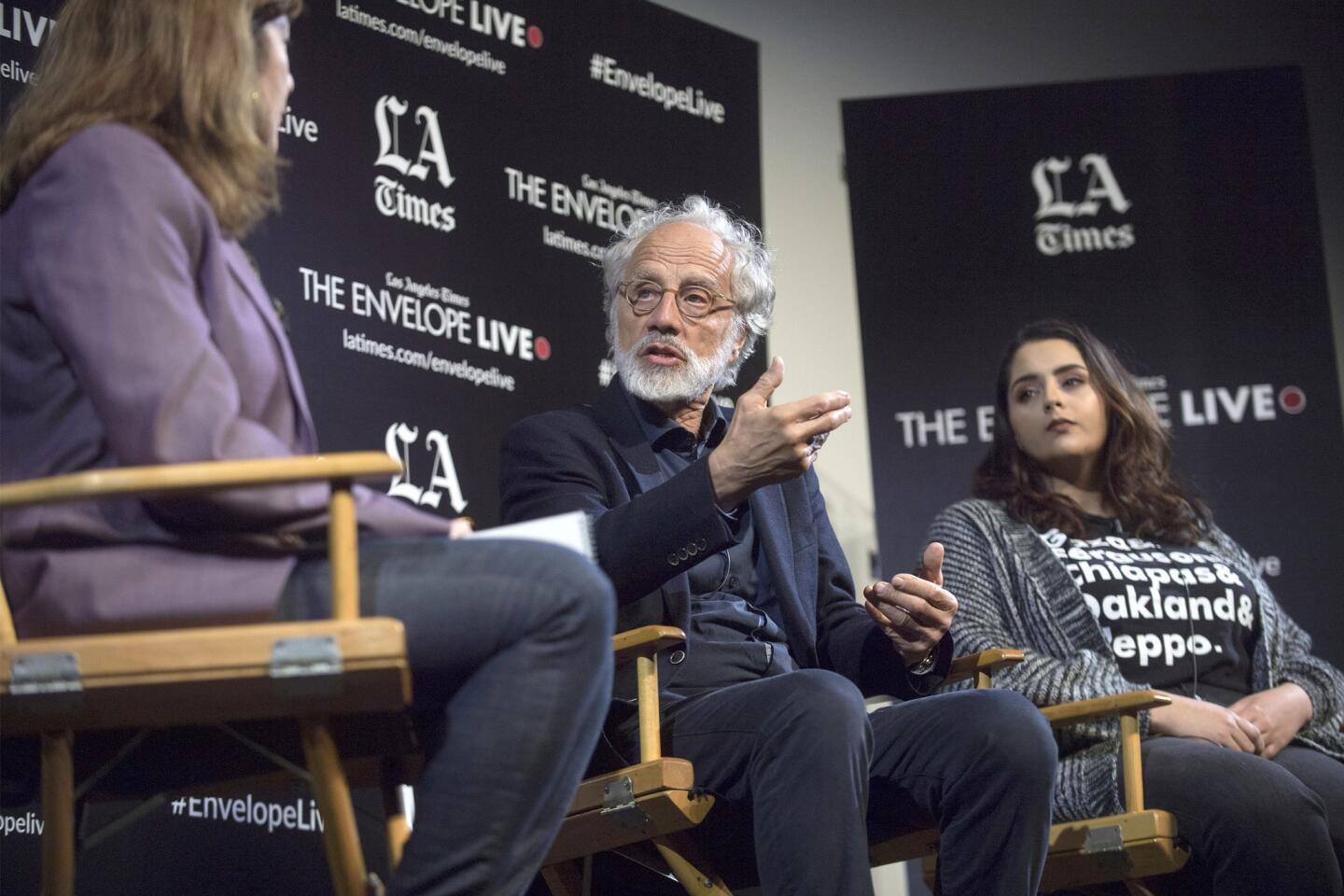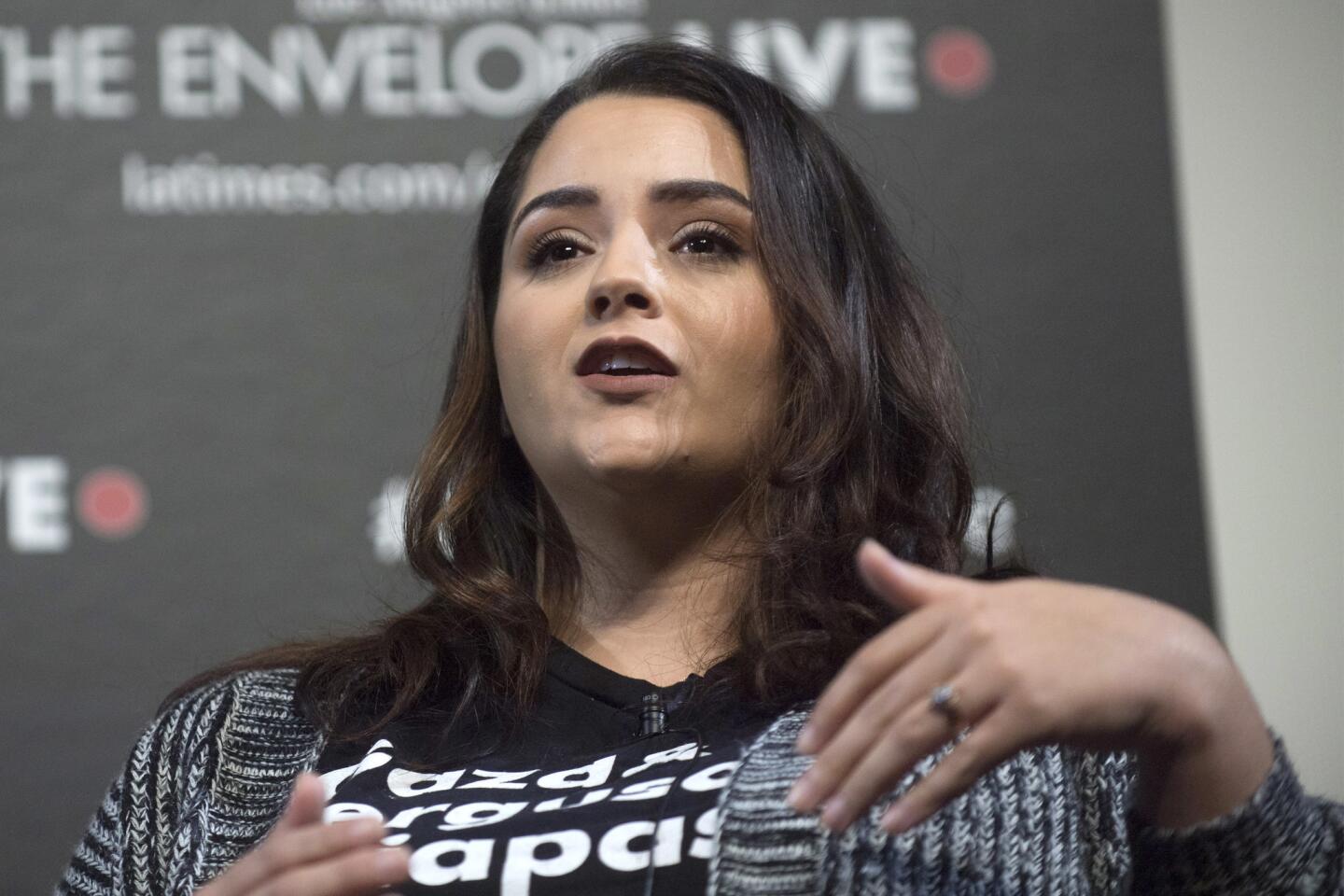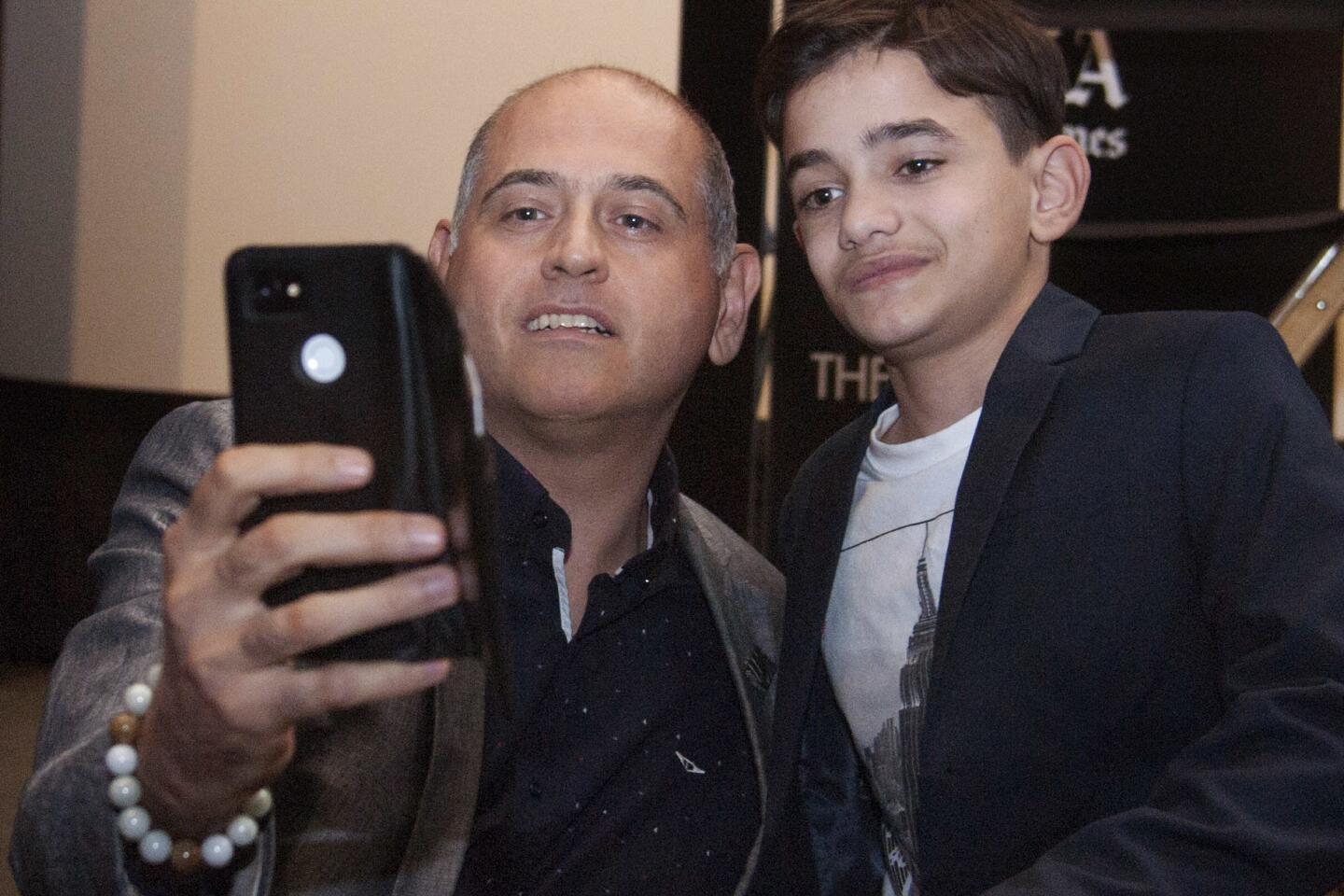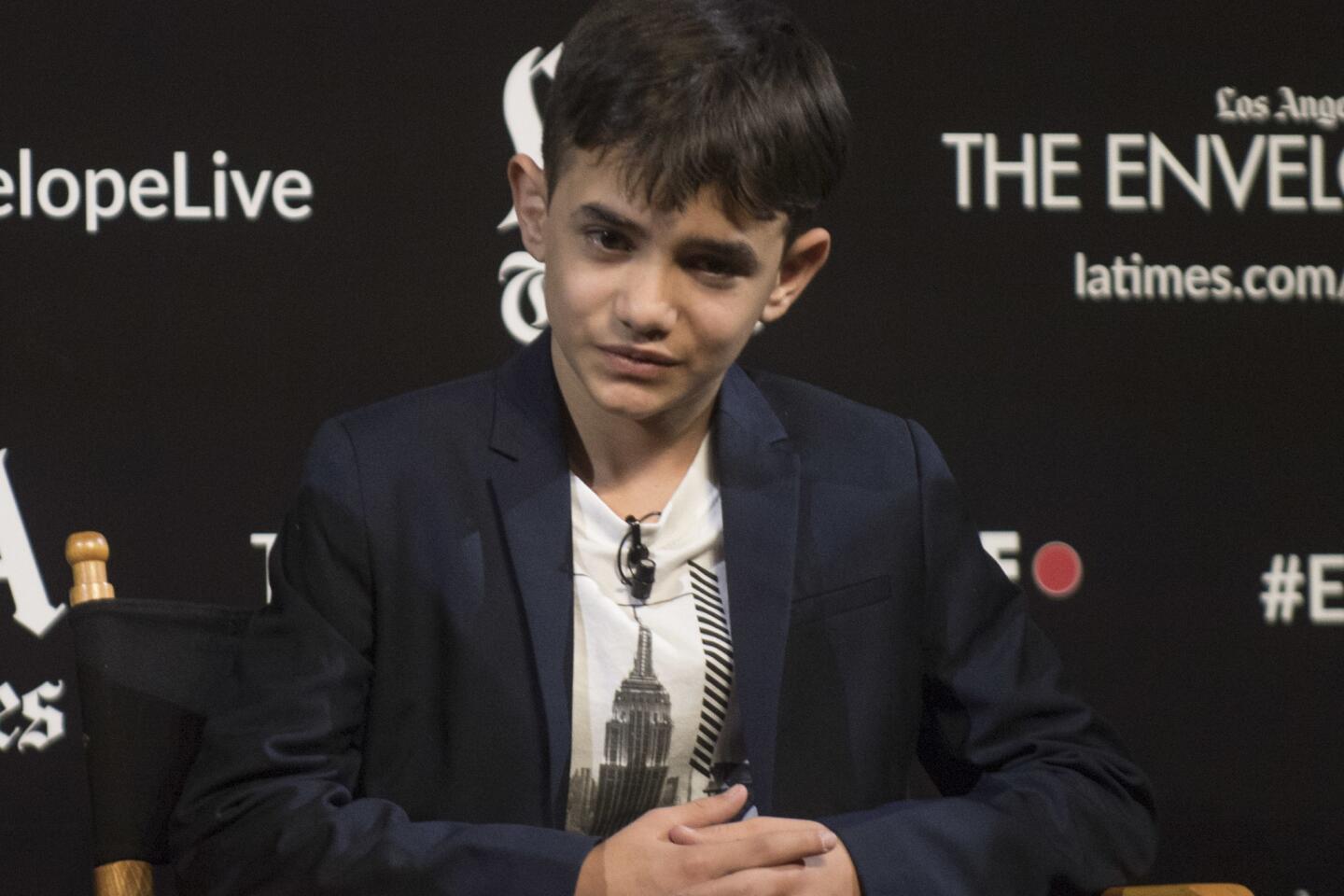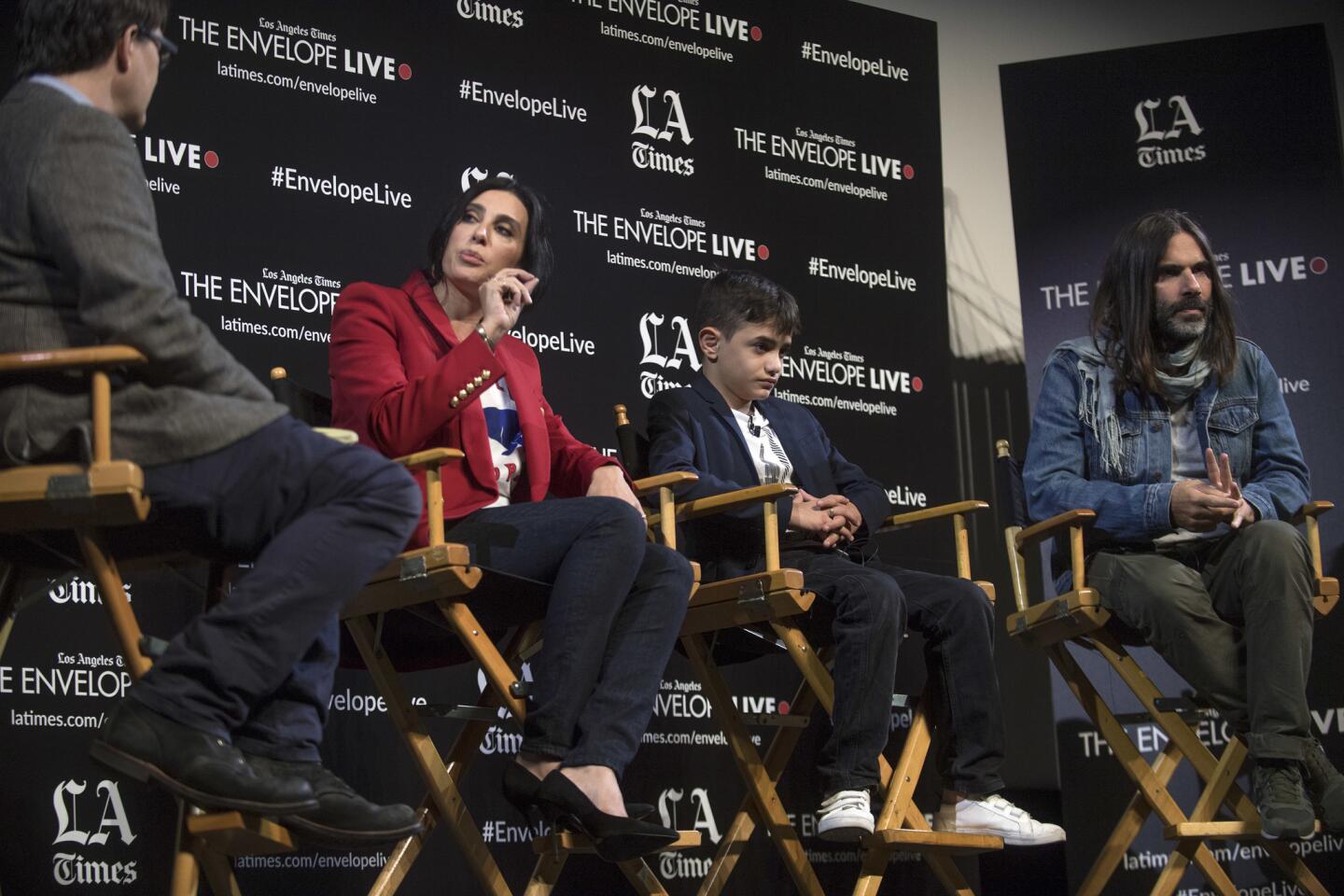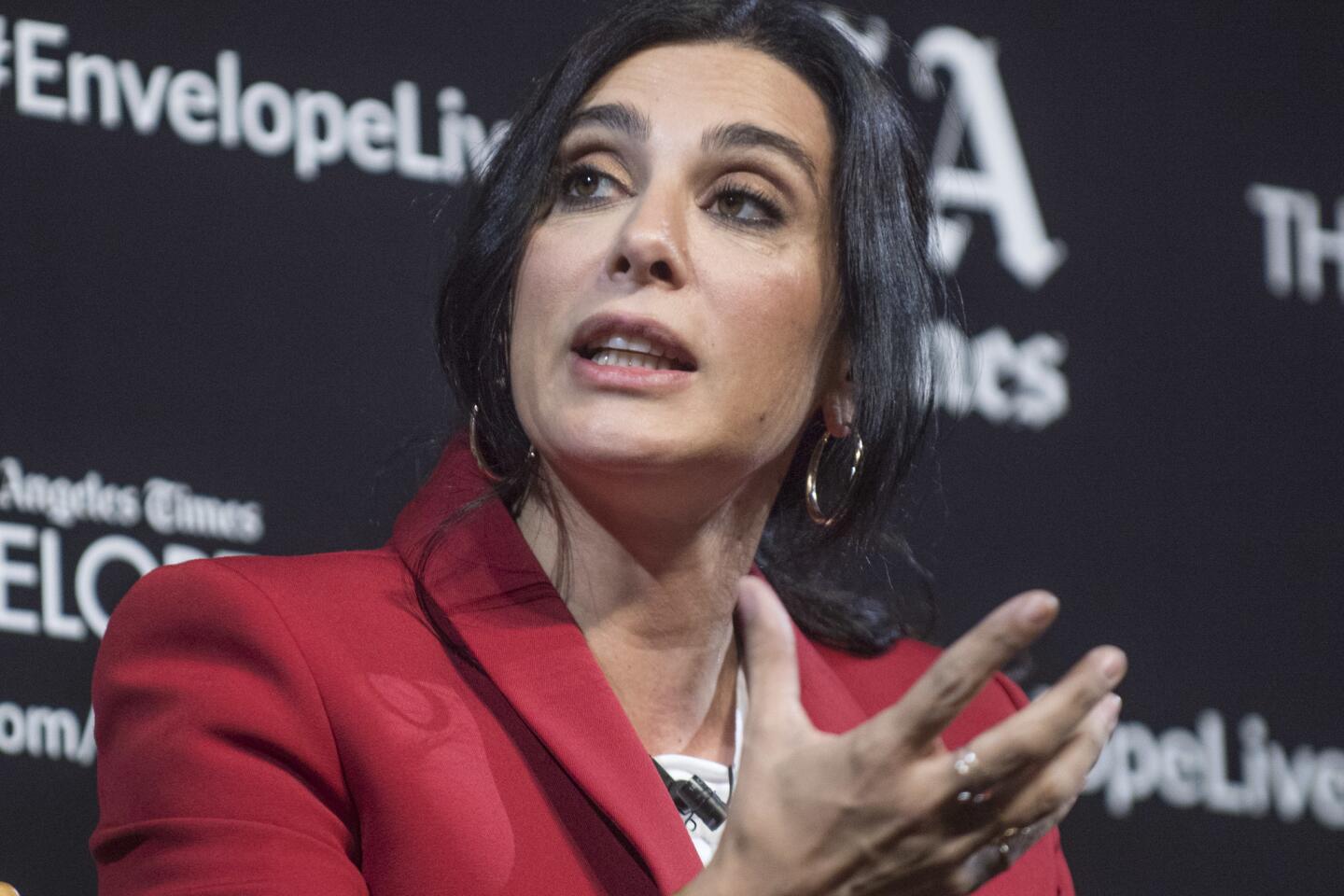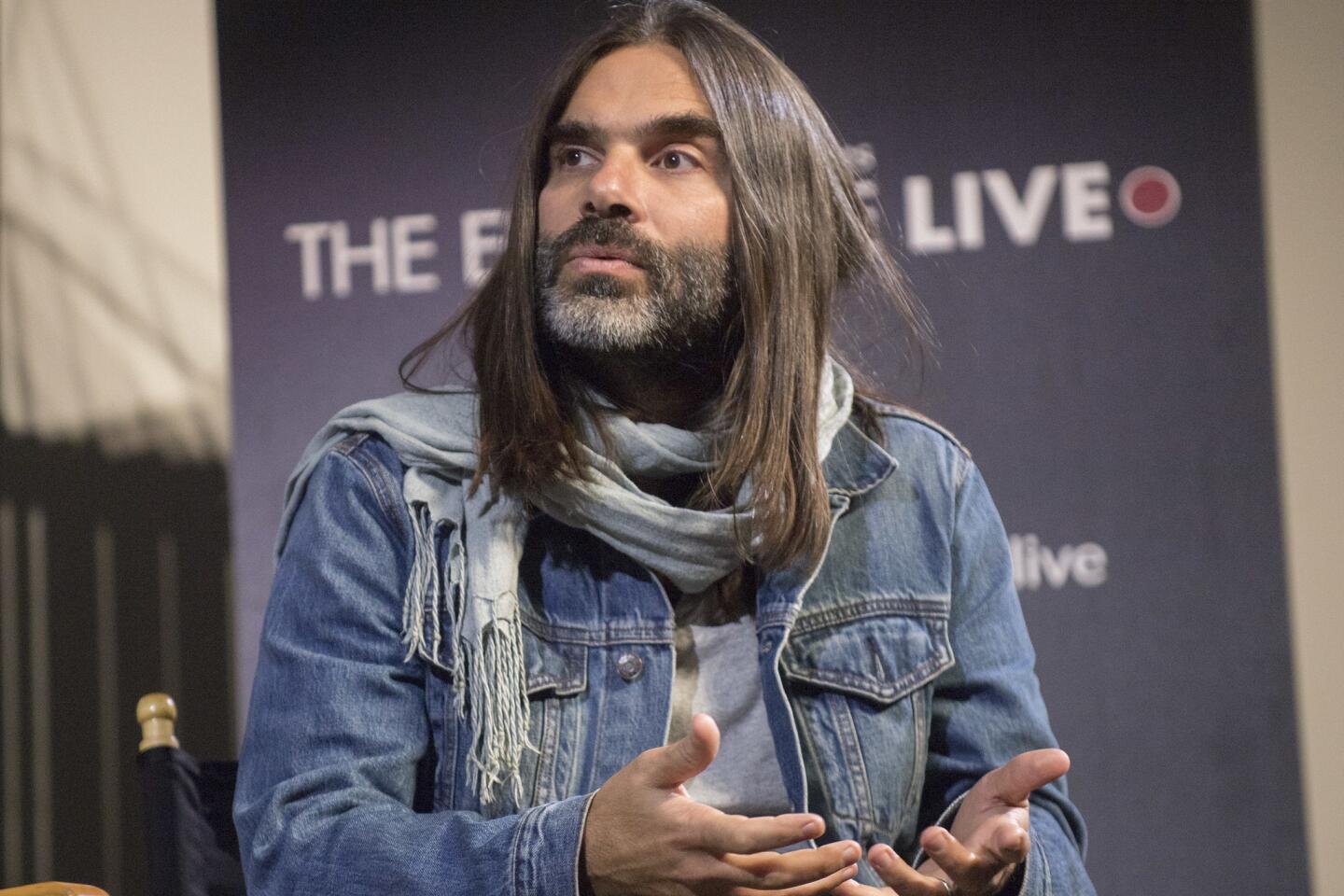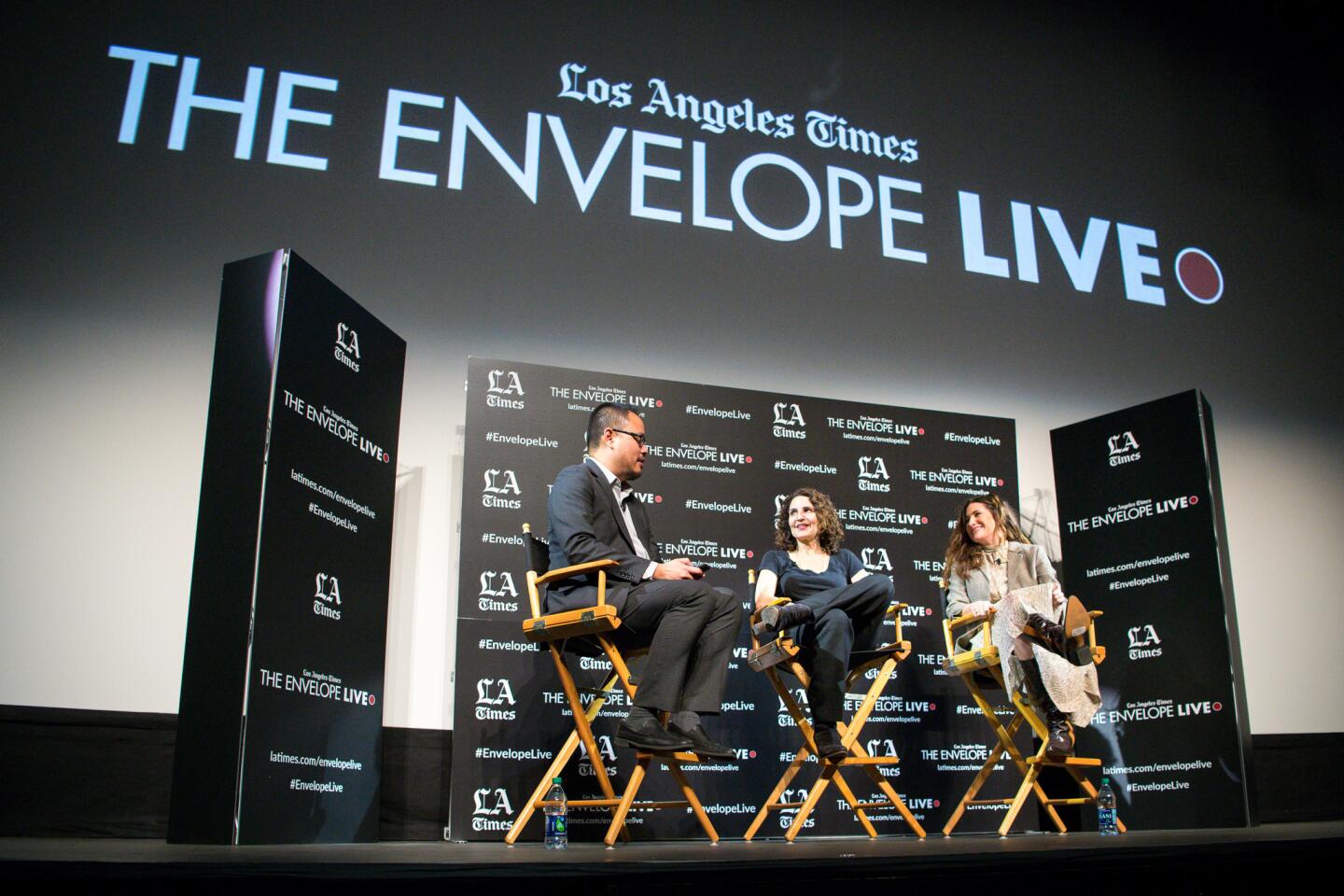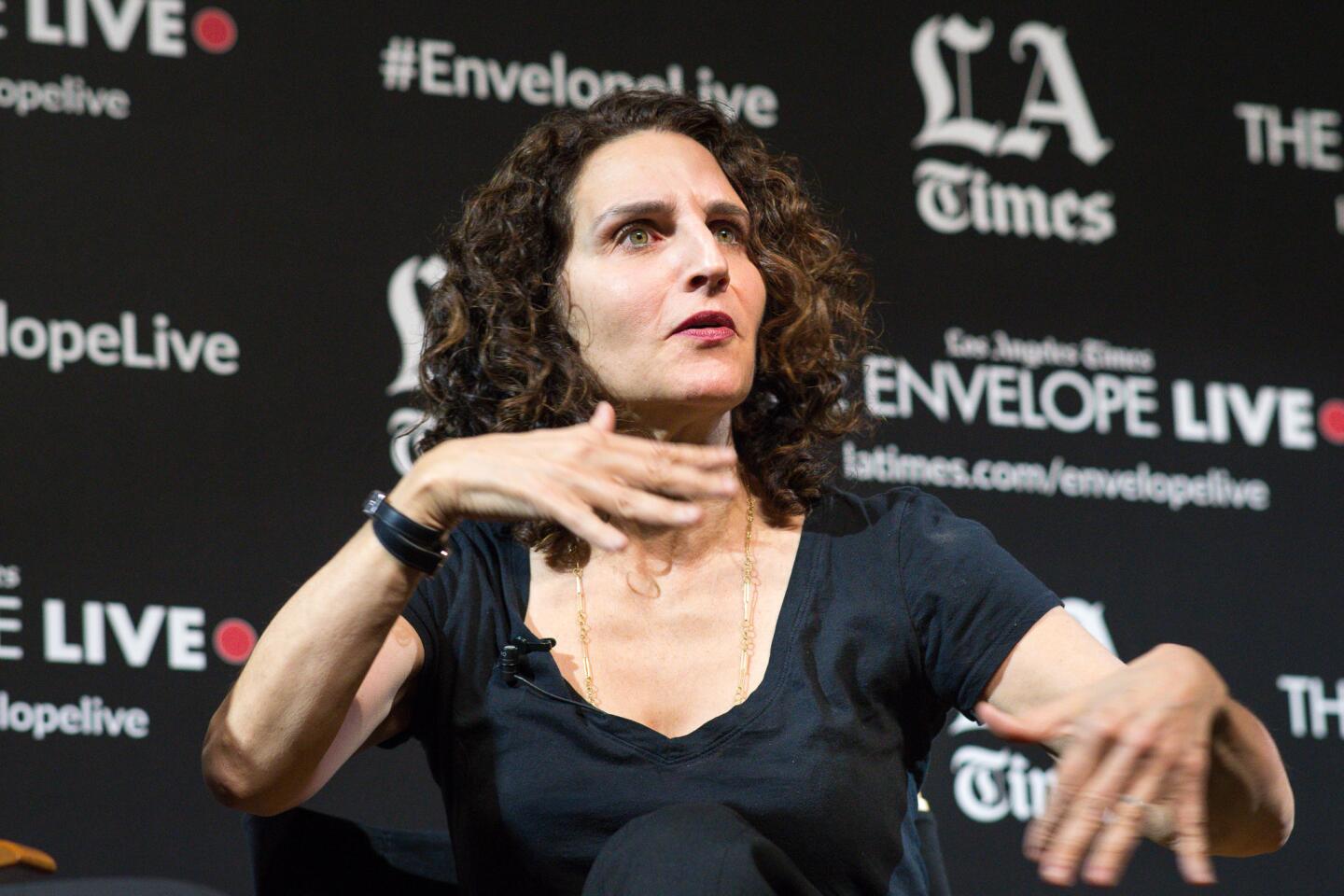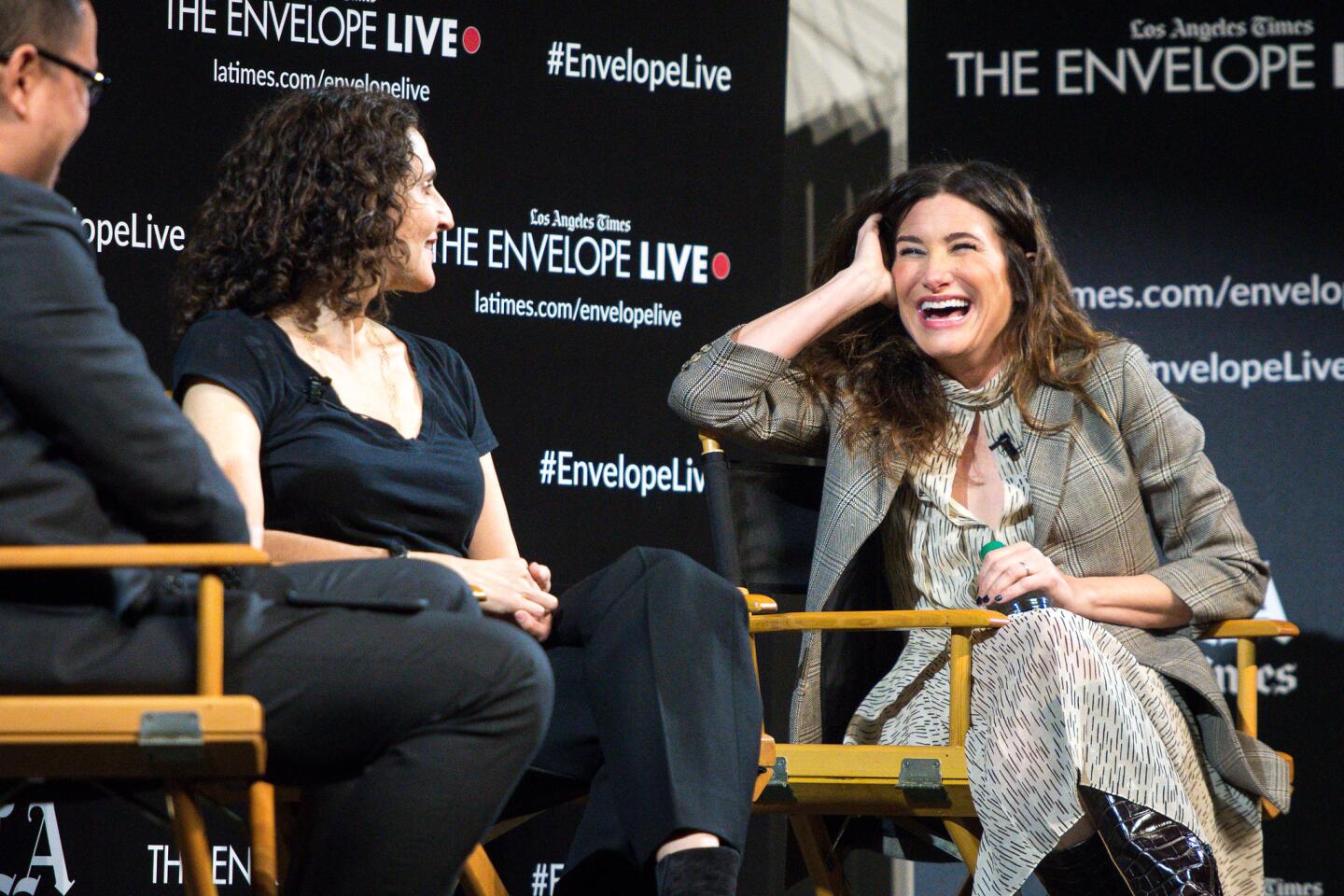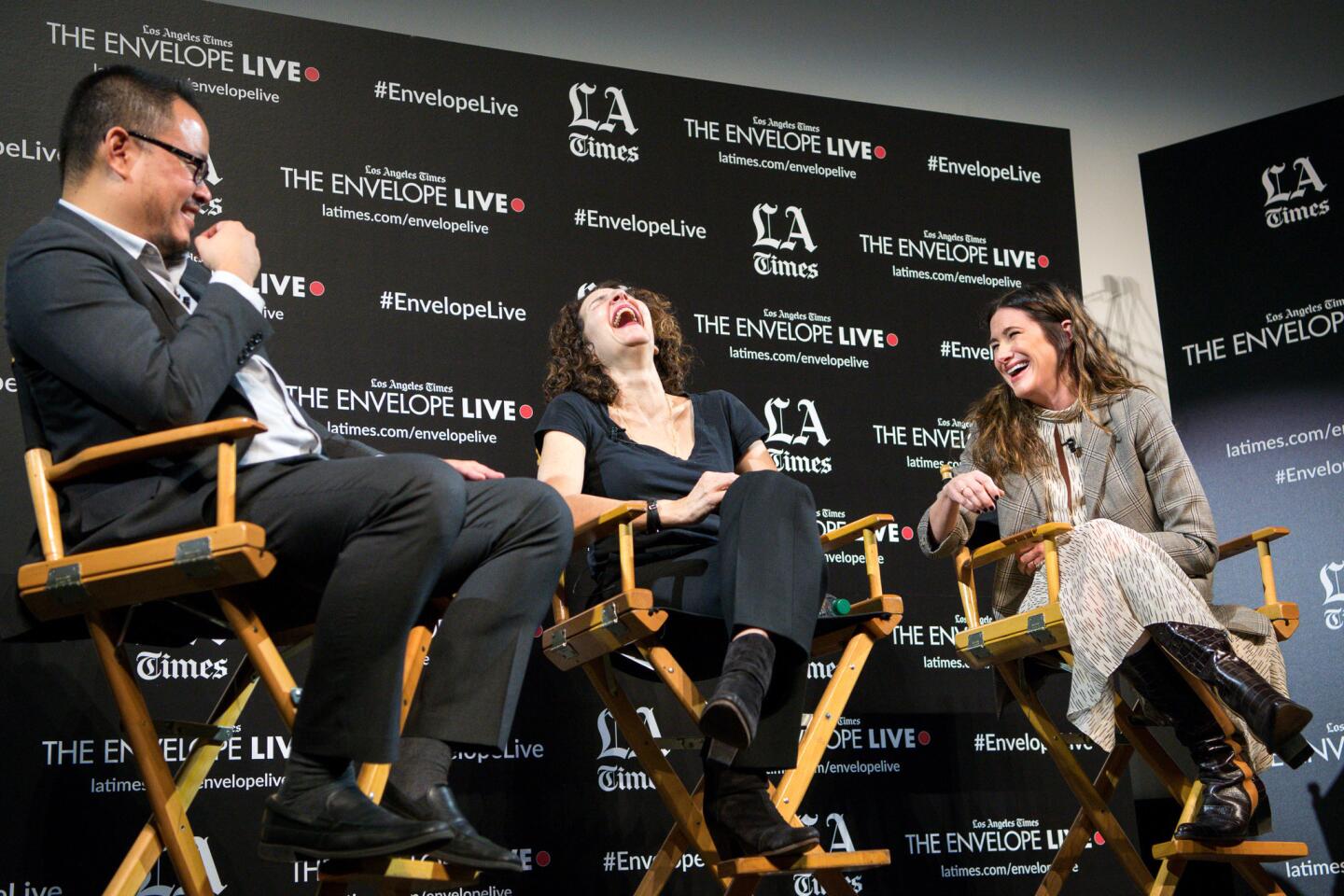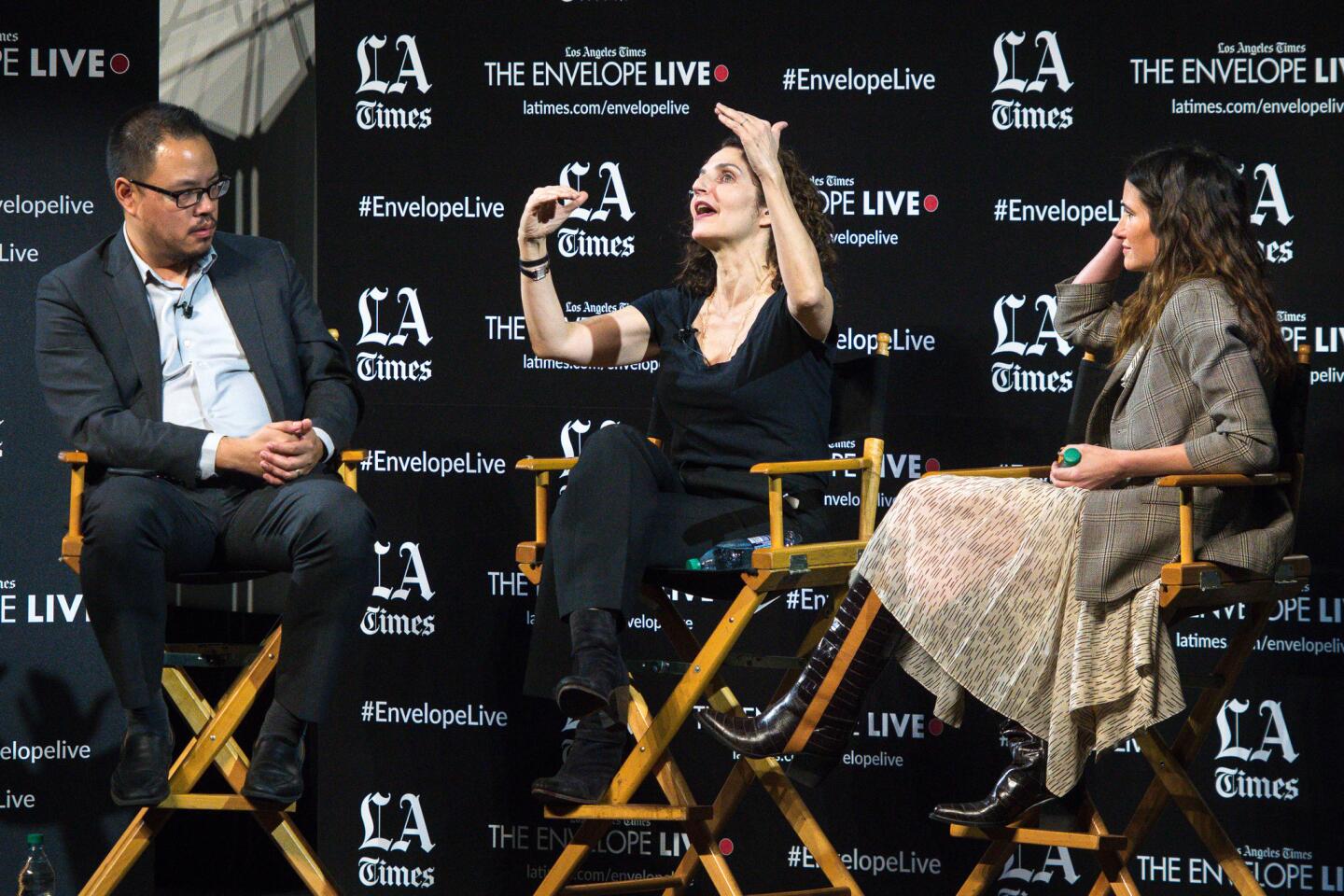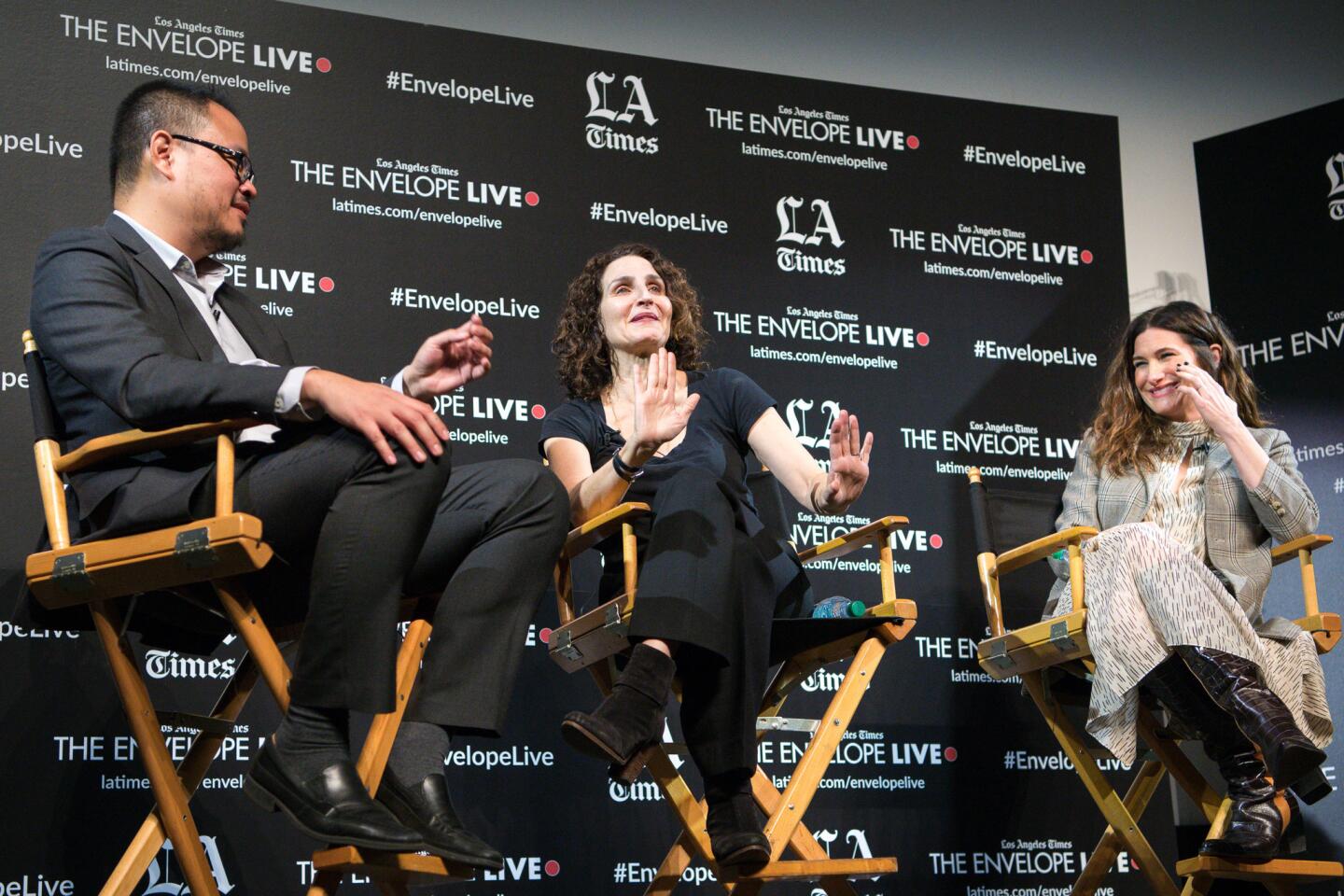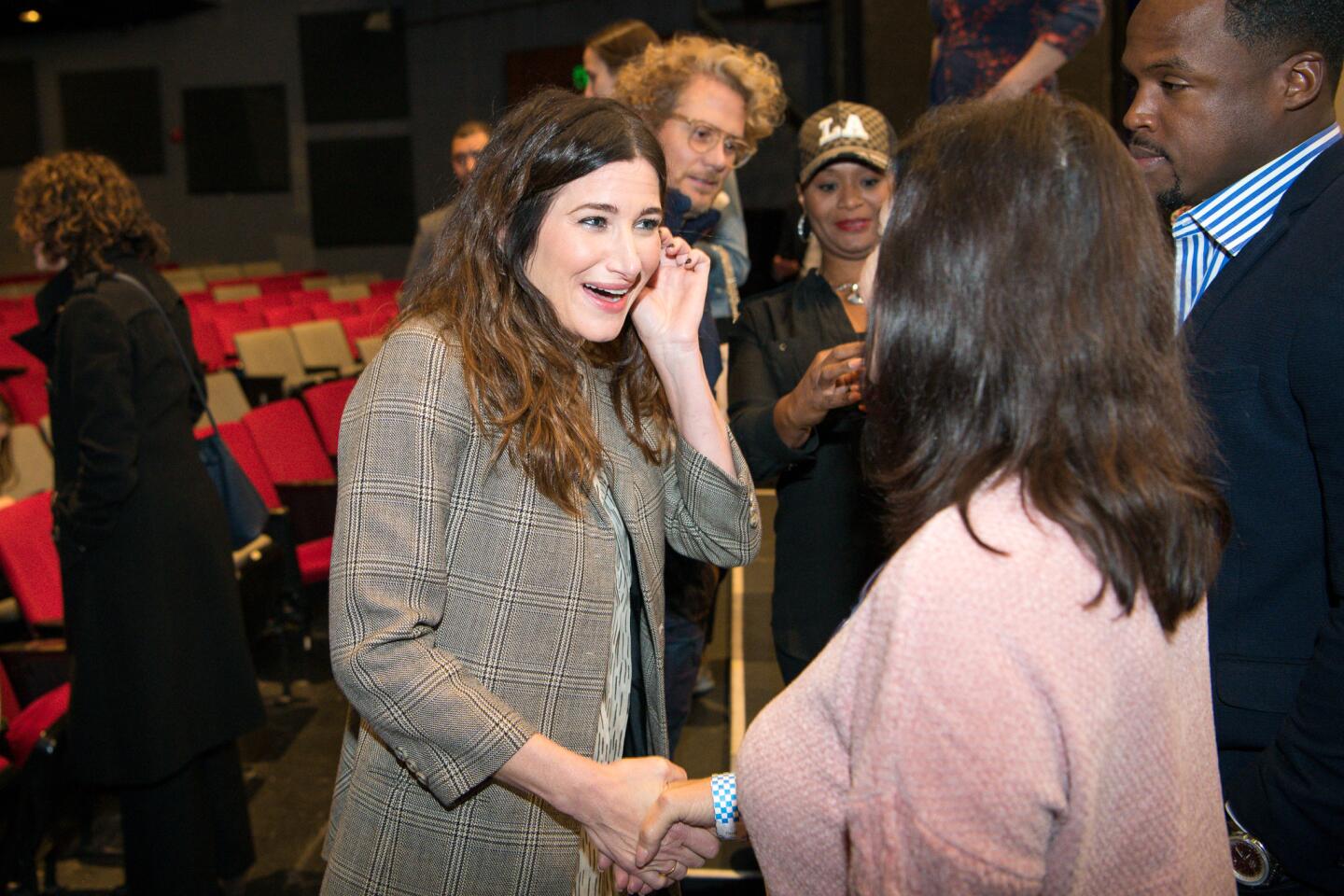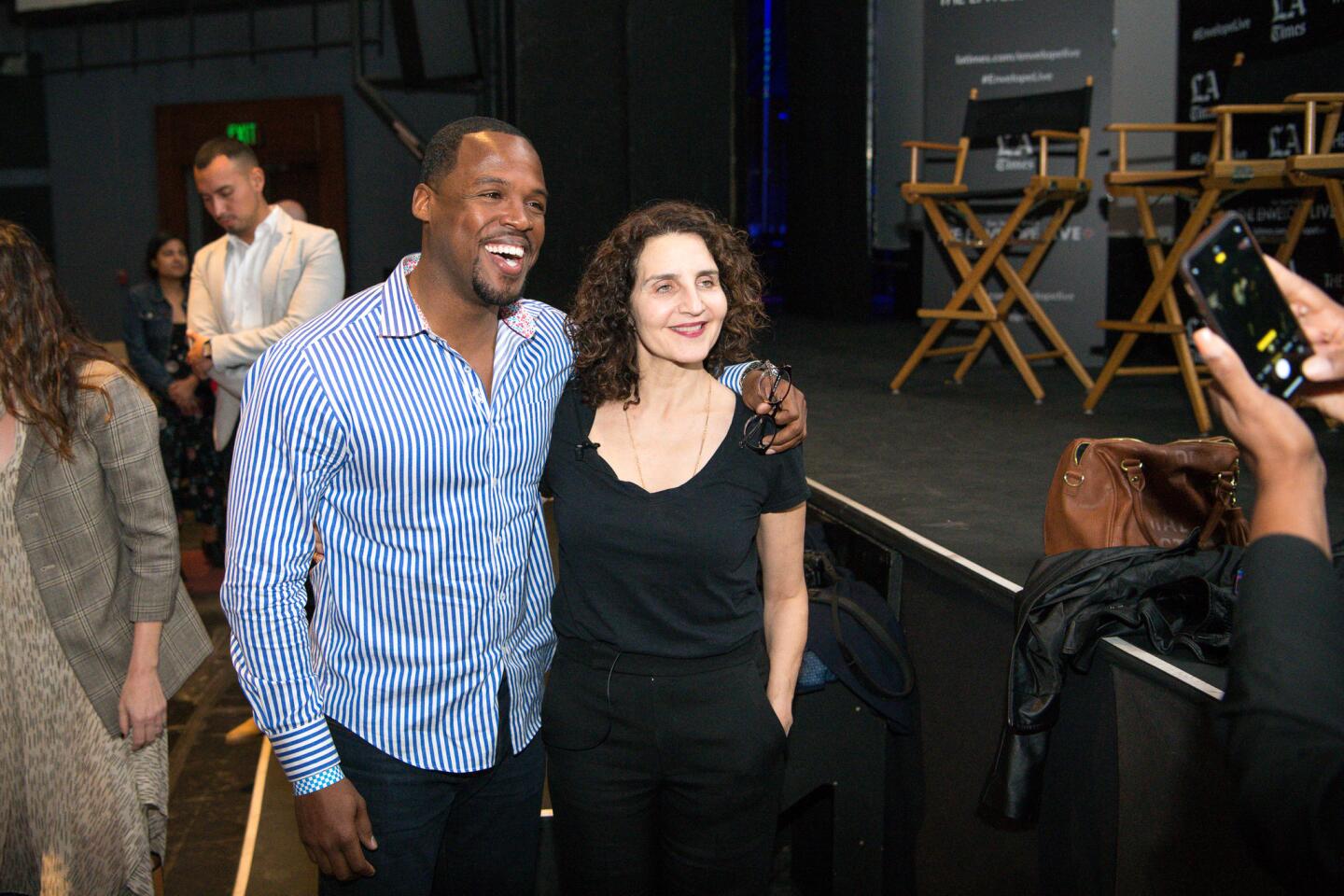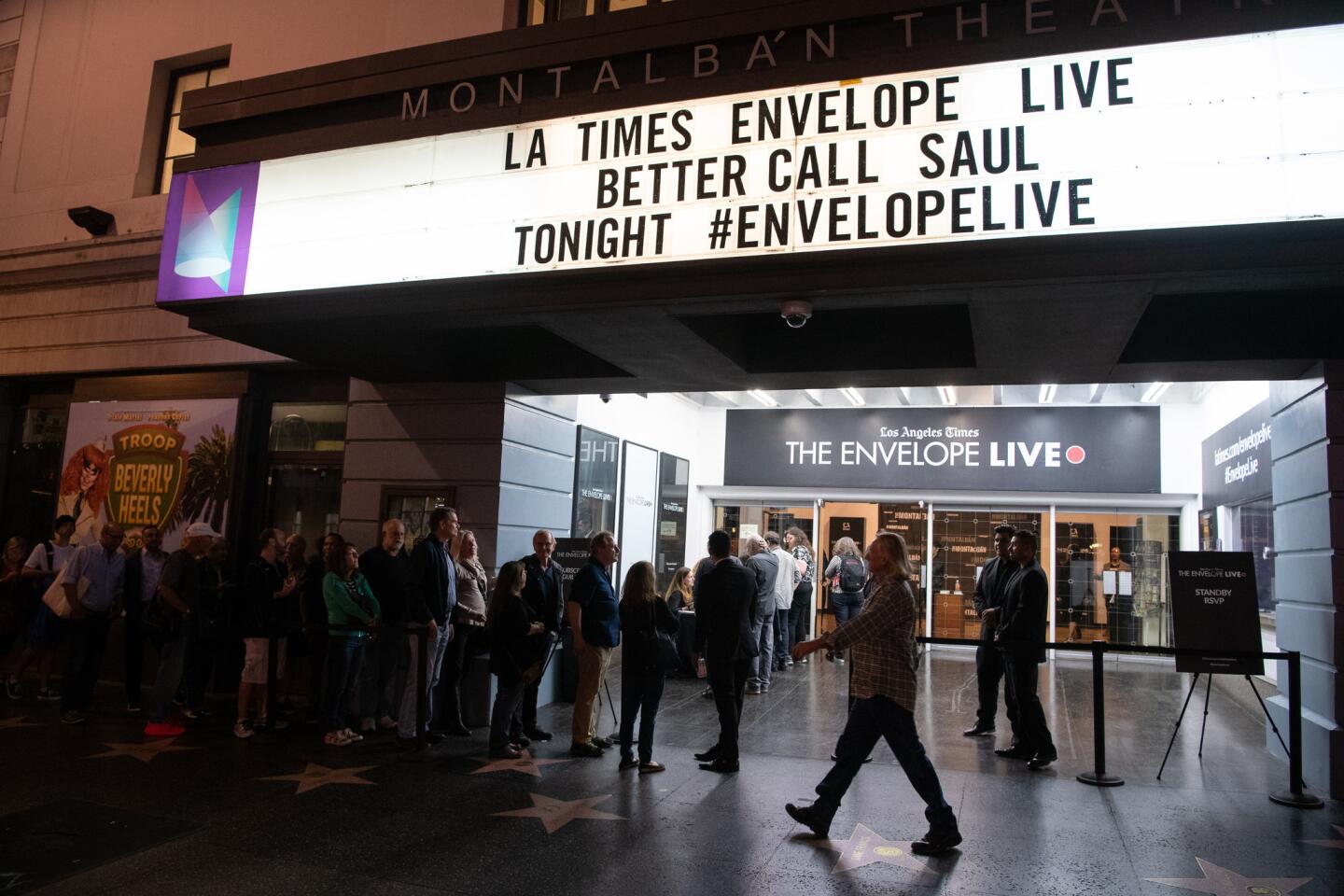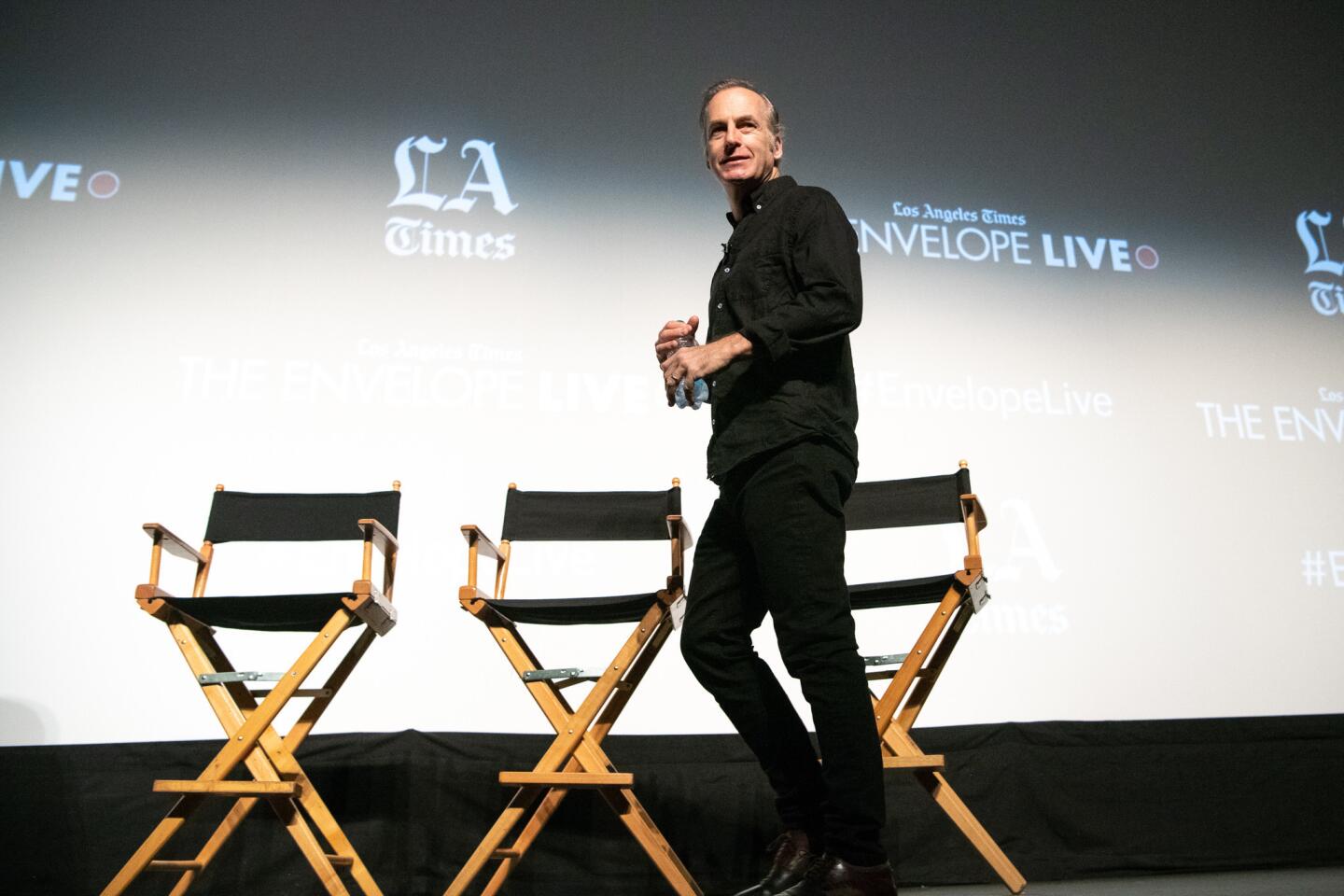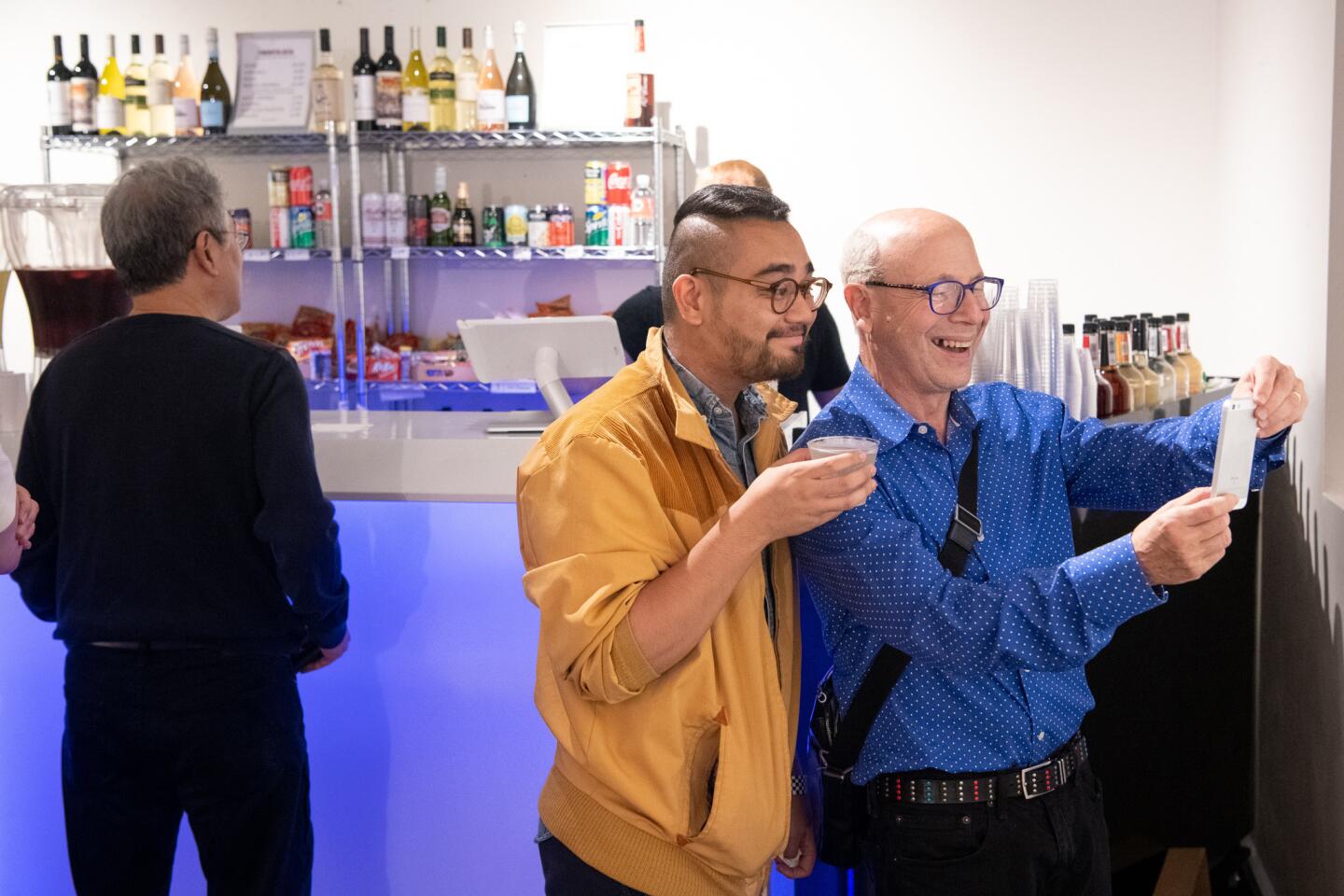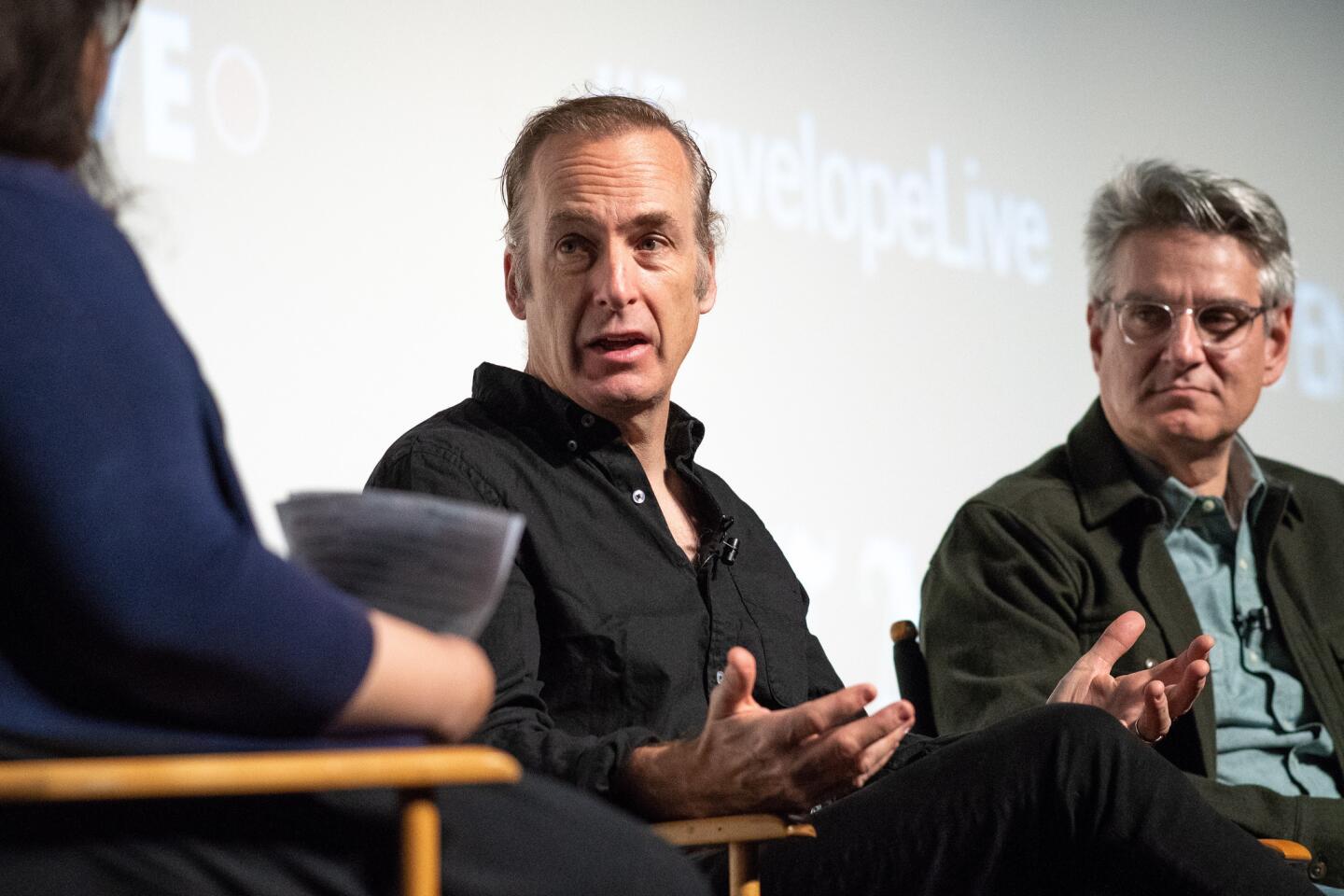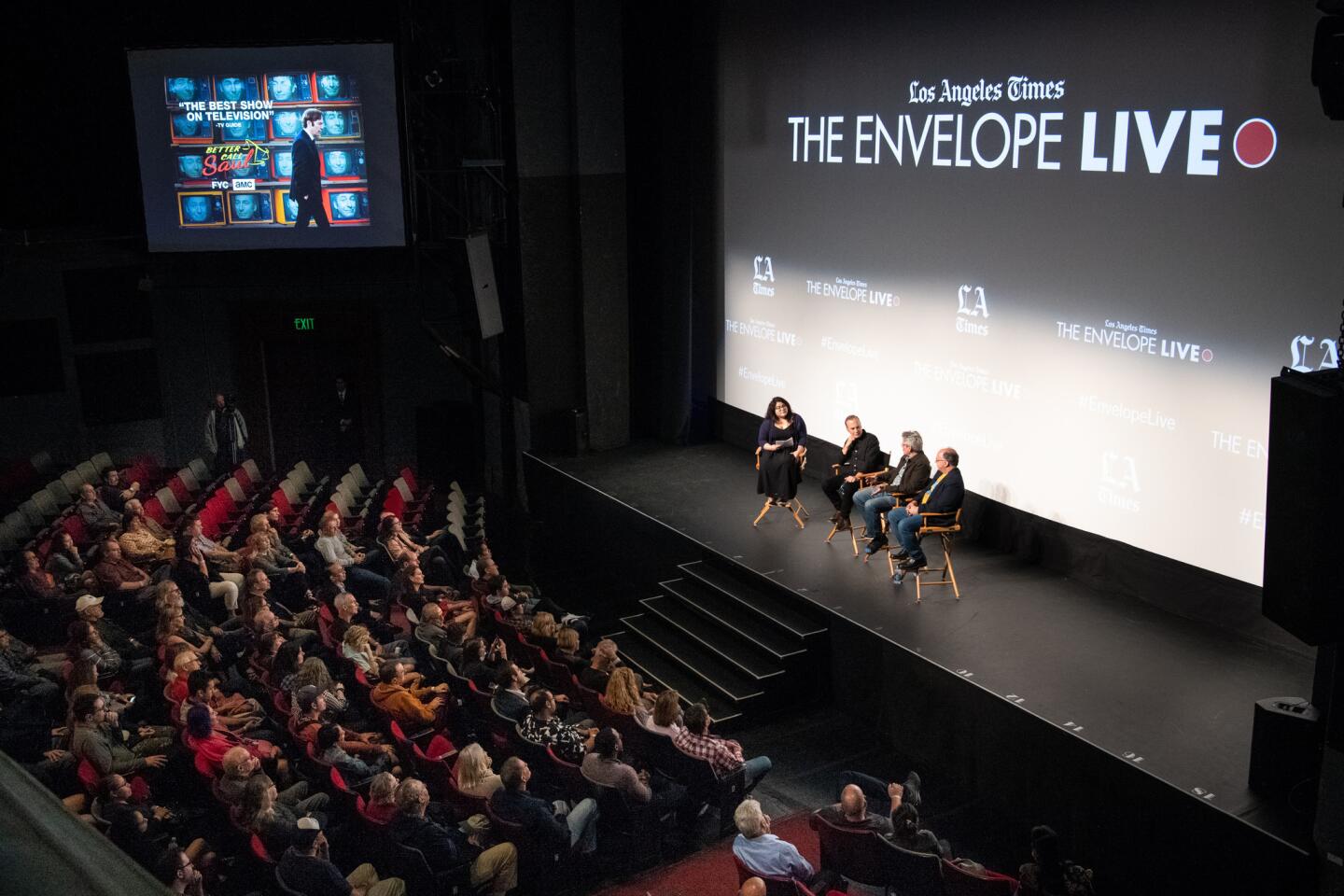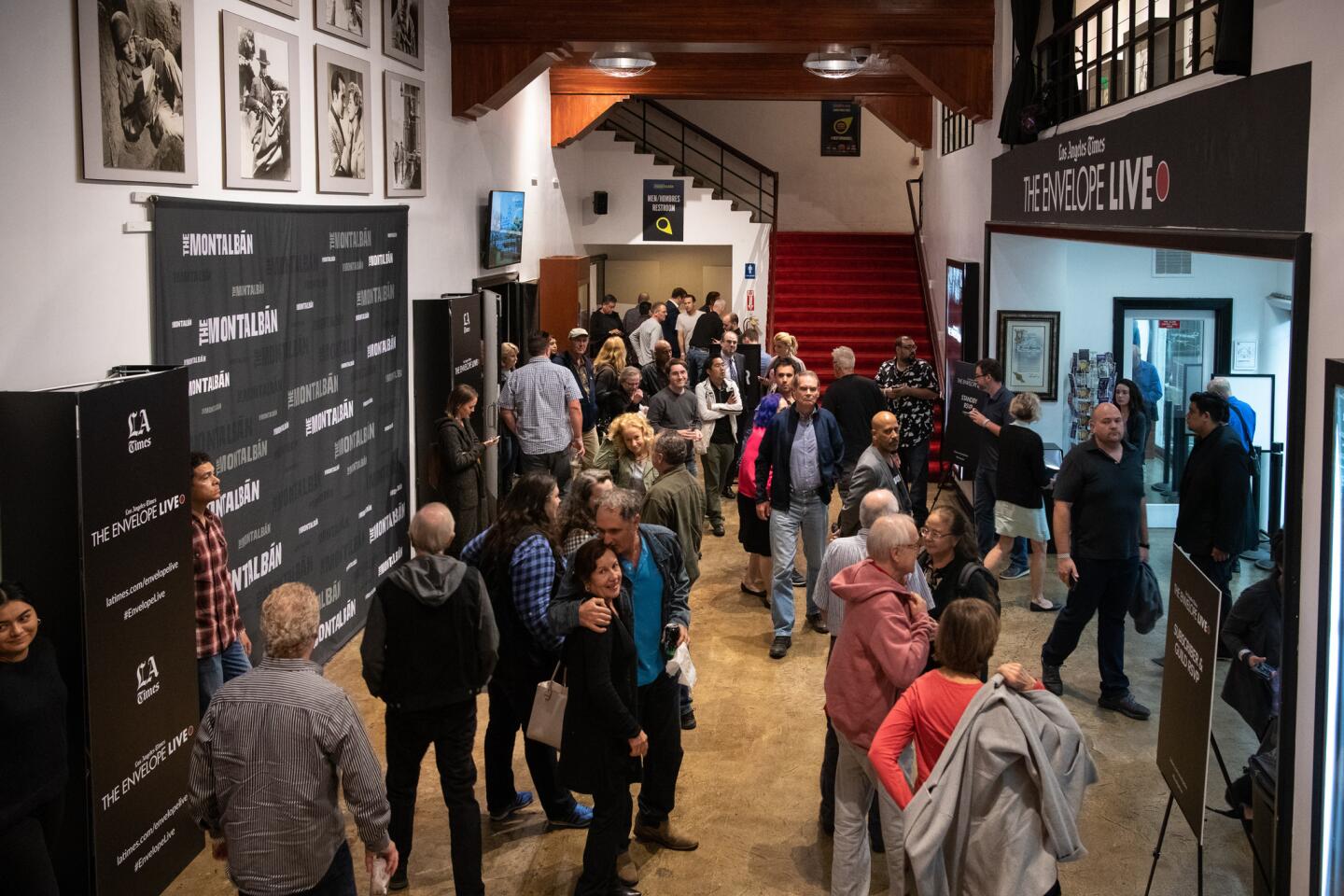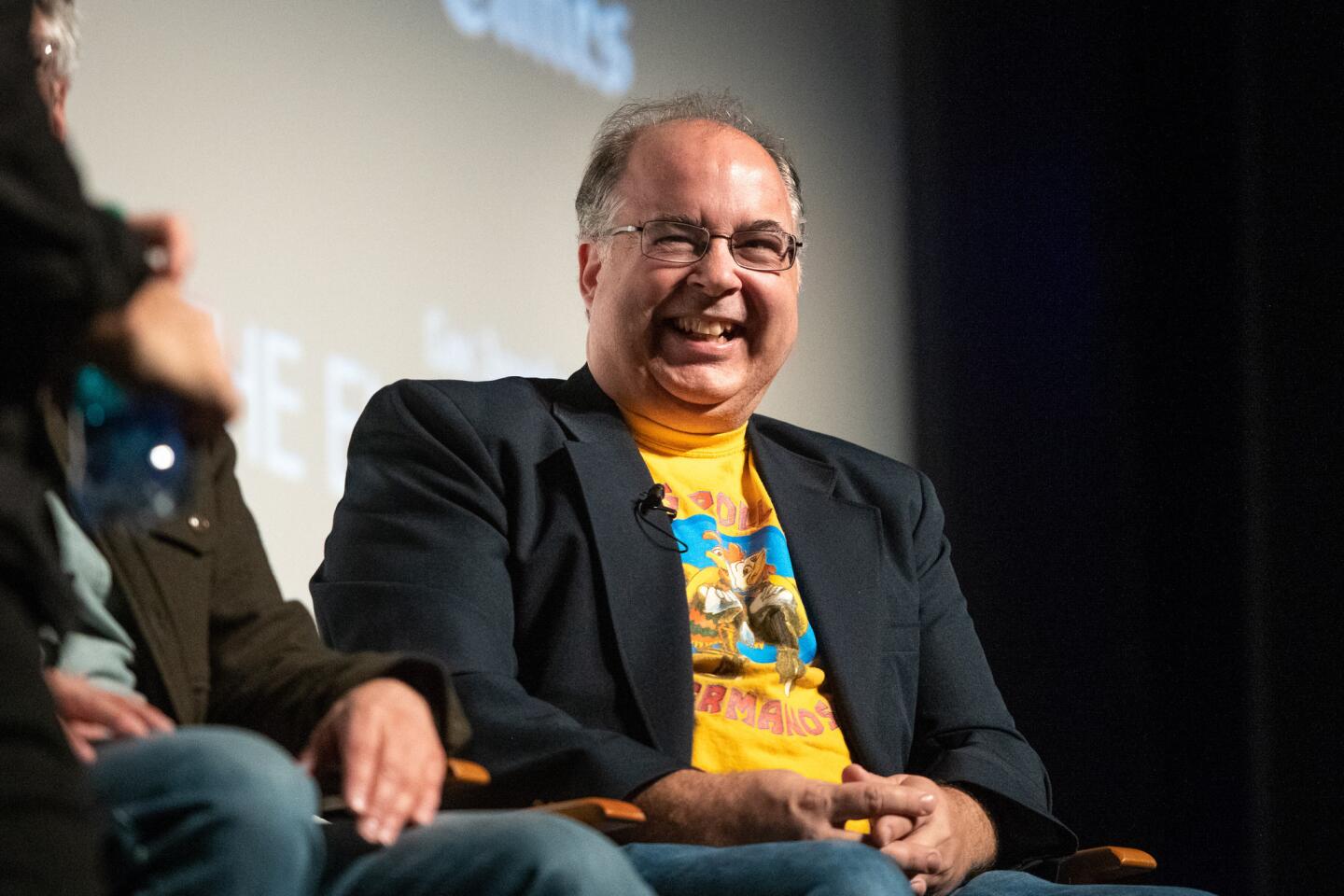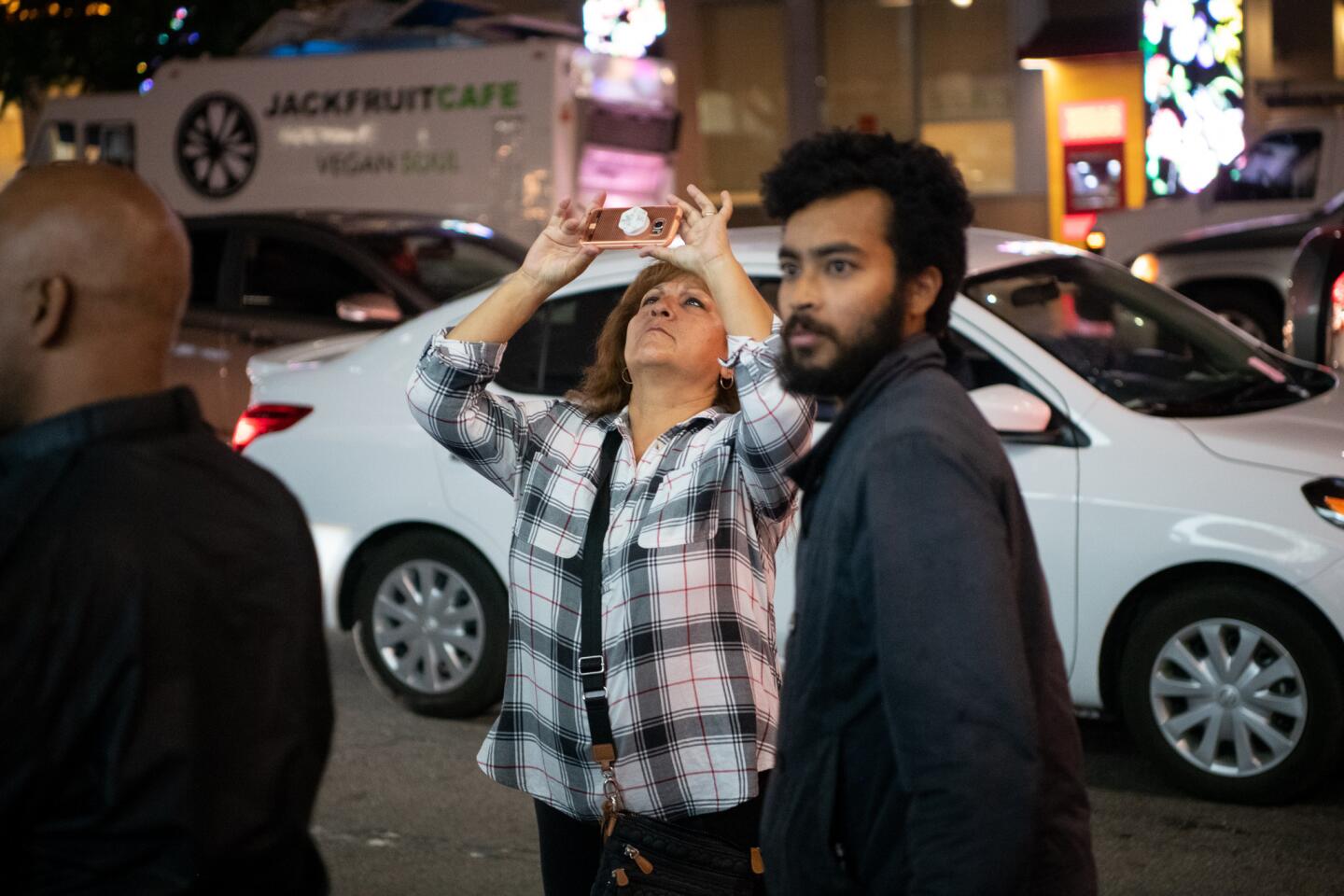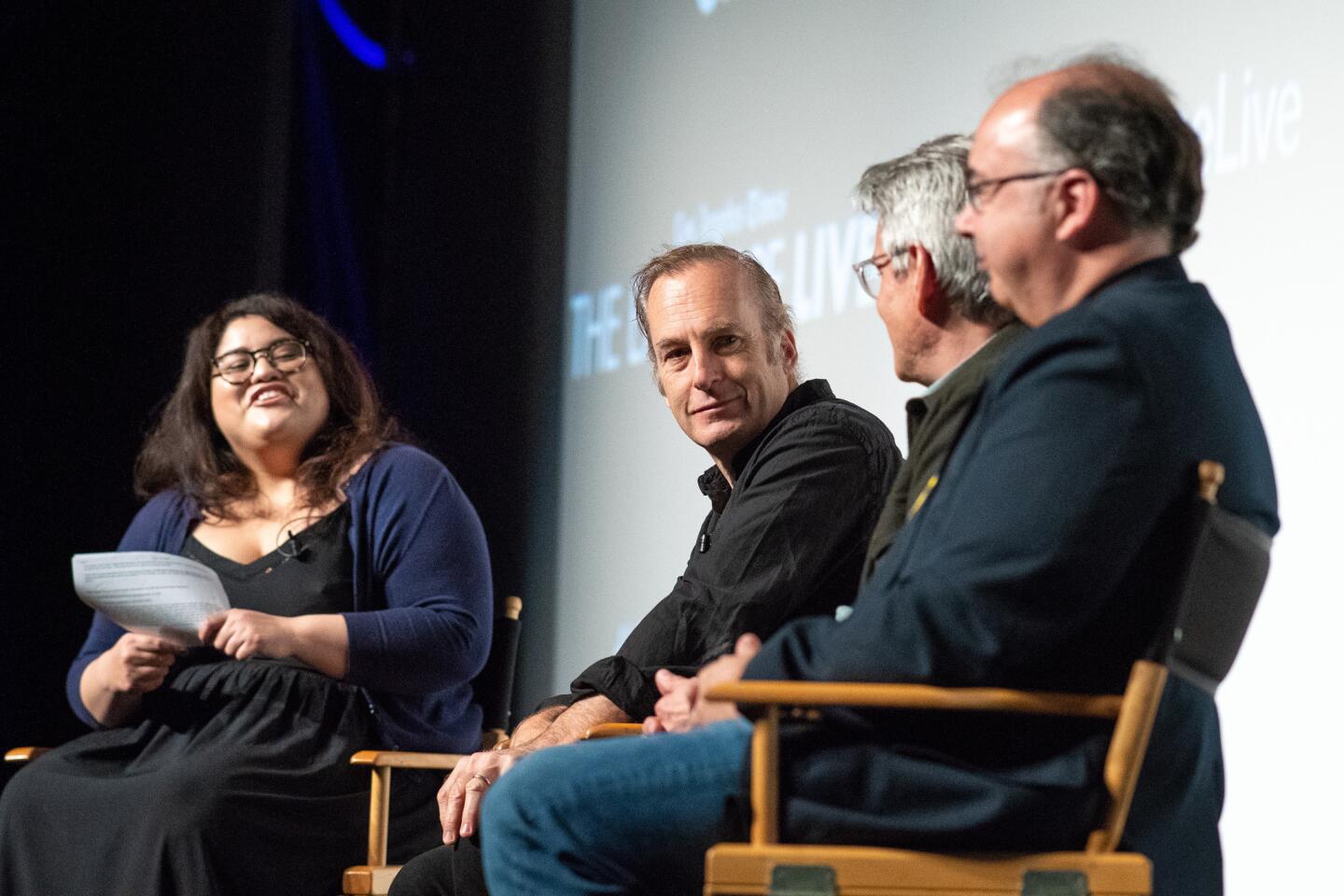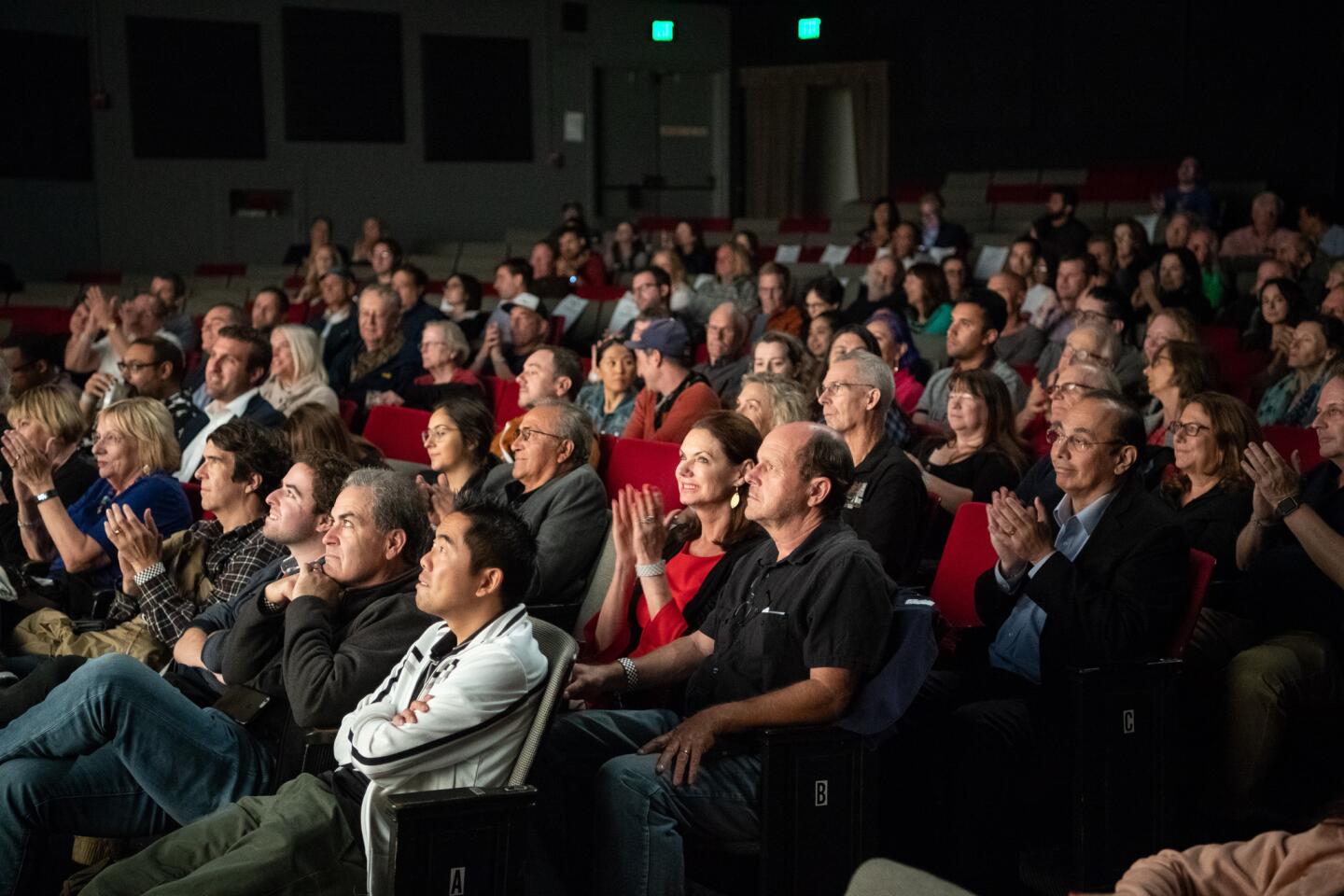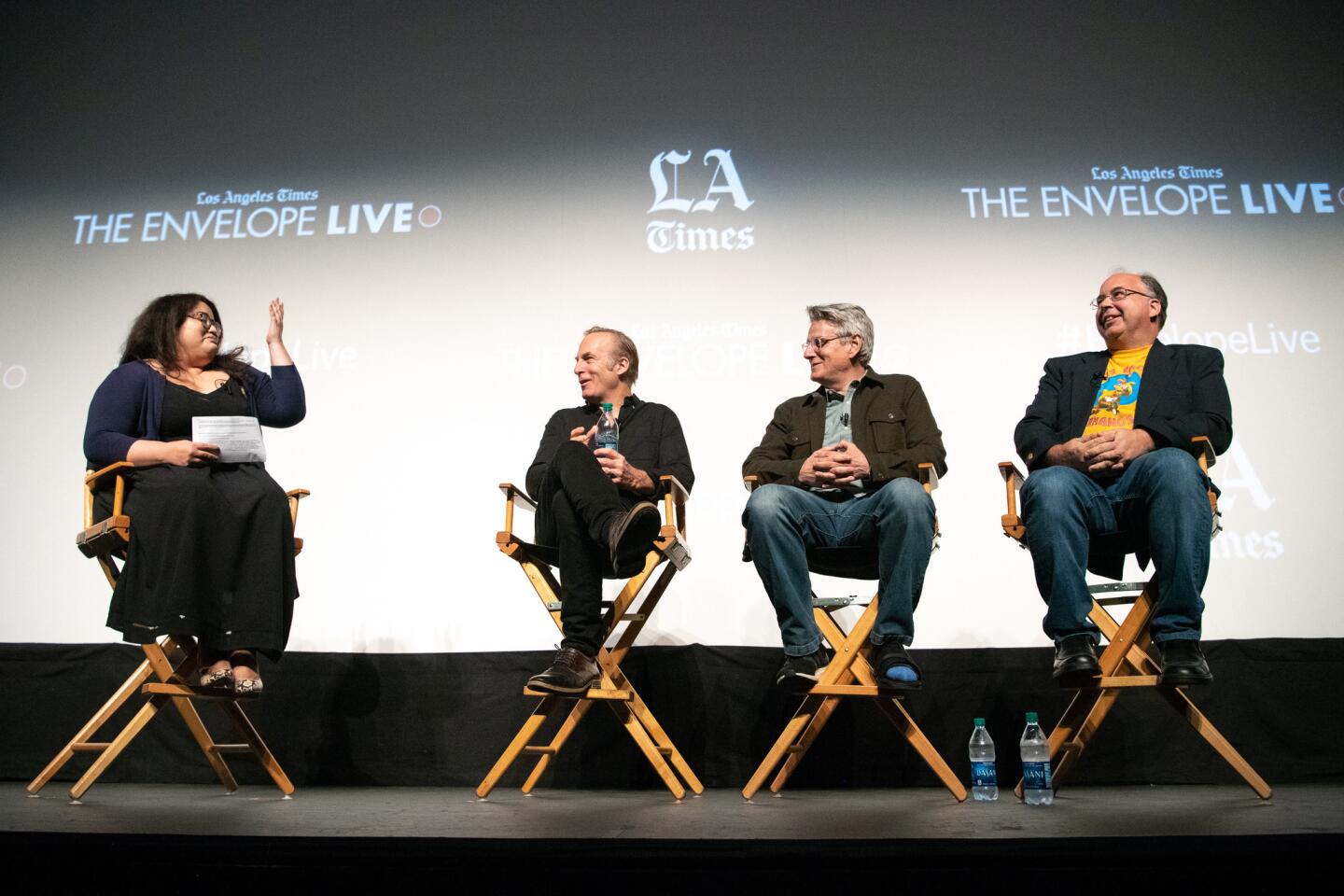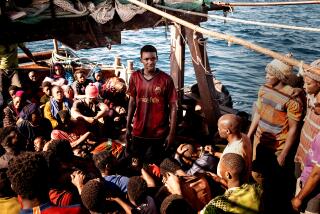Immigration issues have dominated headlines in the U.S. for much of the Trump administration, but the plight of migrants and refugees stretches far beyond the American borders.
The Swiss documentary “Eldorado” examines just that — looking at the European migrant crisis specifically in countries such as Lebanon, Italy, Germany, Switzerland and other areas along the Mediterranean Sea.
“When we look specifically at the scope of the United States and what has been accepted into the United States, as of a couple of years ago, it was only thousands of people that were brought in and we’re seeing that number decrease,” Amnesty International USA field organizer Muna Sharif said at a recent Envelope Live screening of the film.
“This xenophobia that has been spreading as part of the narrative is causing countries like Germany and Italy and Switzerland to close their borders and not welcome refugees and not allow people to apply for asylum so it’s only adding to the problem.”
Amnesty International USA field organizer Muna Sharif shares some startling facts and puts some perspective on the current refugee crisis.
Sharif was joined by the film’s director, Markus Imhoof, at the screening, which was held at the Montalban in Hollywood. The screening was followed by a conversation with Times critic Lorraine Ali in which Imhoof went into detail about his personal story behind the film — an encounter during World War II with an Italian refugee child named Giovanna.
“In the beginning, I was too shy to show it. I wanted to hide it because it’s my personal love story,” he said.
Imhoof then found old letters as well as a doll that brought his relationship with Giovanna back to the surface. “With the help of my friend I then opened my heart, so it grew more during the shooting into the film,” he said. “So for me, it’s kind of an emotional bridge to the theme.”
‘Eldorado’ director Markus Imhoof talks about how his own personal life story became a central story in the film.
Another challenge Imhoof faced during filming was getting access to the camps. “It was very difficult. It took months and months to go get the permission for every single step,” he said. “And then they gave me 2 ½ hours to shoot and only because of the migrants, the refugees starting to shout and to interact — we couldn’t go out because it took longer because we have to listen to them.”
To film in the ghettos where the workers live, Imhoof had to use small spy cameras. “This was difficult because these people are ashamed that they are living there,” he said. “They are all hoping that they will succeed and if they would show where they live, it’s a big shame for them.”
‘Eldorado’ director Markus Imhoof talks about gaining access to the refugee camps and the shame the people feel if their families were to see their living conditions.
However, despite the terrible living conditions these migrants and refugees face, it remains cheaper for the countries to deny them asylum and then hire them to work illegally. One such example is the Mitsubishi factory in Italy.
“Mitsubishi is working with these slave labors, and everybody knows, and its much cheaper than if they would have to pay normal salaries,” Imhoof said.
“Eldorado” director Markus Imhoof discusses how it’s more economical for countries to deny refugees asylum and instead use them as cheap slave labor.
For more information on future Envelope Live screenings and events, click here.
1/99
“Vice” was the subject of an L.A. Times Envelope Live screening and Q&A at the Montalbán in Hollywood.
(Ana Venegas / For The Times) 2/99
An exhibit hangs in the mezzanine gallery at the the Montalbán in Hollywood, where “Vice” was screened at an L.A. Times Envelope Live event.
(Ana Venegas / For The Times) 3/99
Christian Bale as Dick Cheney shows onscreen as “Vice” is shown at the L.A. Times Envelope Live screening in Hollywood.
(Ana Venegas / For The Times) 4/99
L.A. Times awards columnist Glenn Whipp takes the stage to introduce the director and editor of “Vice” at the movie’s L.A. Times Envelope Live screening.
(Ana Venegas / For The Times) 5/99
“Vice” director Adam McKay makes a point in the Q&A session following the screening of the movie at an L.A. Times Envelope Live event at the Montalbán in Hollywood.
(Ana Venegas / For The Times) 6/99
“Vice” editor Hank Corwin talks with his hands during the Q&A session following the screening of the movie.
(Ana Venegas / For The Times) 7/99
L.A. Times columnist Glenn Whipp, left, moderates a discussion about “Vice” after it screens, chatting with director Adam McKay and editor Hank Corwin in Hollywood.
(Ana Venegas / For The Times) 8/99
A downpour didn’t stop Charlie Bennett from attending the L.A. Times Envelope Live screening of “BlacKkKlansman” at the Montalbán in Hollywood.
(Ana Venegas / For The Times) 9/99
Director Spike Lee, right, arrives to the L.A. Times Envelope Live screening of “BlacKkKlansman” in Hollywood.
(Ana Venegas / For The Times) 10/99
Attendees check in at the L.A. Times Envelope Live screening of “BlacKkKlansman” in Hollywood.
(Ana Venegas / For The Times) 11/99
Spike Lee and editor Barry Alexander Brown catch up in the green room before the Q&A for “BlacKkKlansman.”
(Ana Venegas / For The Times) 12/99
Popcorn was served up at the “BlacKkKlansman” screening in Hollywood.
(Ana Venegas / For The Times) 13/99
“BlacKkKlansman” screens at the L.A. Times Envelope Live event at the Montalbán in Hollywood.
(Ana Venegas / For The Times) 14/99
Director Spike Lee and editor Barry Alexander Brown talk about “BlacKkKlansman” at a Q&A at the L.A. Times Envelope Live screening at the Montalbán in Hollywood.
(Ana Venegas / For The Times) 15/99
Director Spike Lee and editor Barry Alexander Brown talk about “BlacKkKlansman” at a Q&A at the LA Times Envelope Live screening.
(Ana Venegas / For The Times) 16/99
Phil Lord, writer and producer of “Spider-Man: Into The Spider-Verse,” meets a fan at the Montalbán in Hollywood.
(Ana Venegas / For The Times) 17/99
A line formed for “Spider-Man: Into The Spider-Verse” at the L.A. Times Envelope Live screening at the Montalbán in Hollywood.
(Ana Venegas / For The Times) 18/99
The audience watches “Spider-Man: Into The Spider-Verse” at it’s L.A. Times Envelope Live screening at the Montalbán.
(Ana Venegas / For The Times) 19/99
“Spider-Man: Into The Spider-Verse” attracted a full house at its L.A. Times Envelope Live screening at the Montalbán.
(Ana Venegas / For The Times) 20/99
Bob Persichetti listens at the Q&A for “Spider-Man: Into the Spider-Verse” at the L.A. Times Envelope Live screening.
(Ana Venegas / For The Times) 21/99
Chris Miller was part of the creation of “Spider-Man: Into The Spider-Verse.” The movie screened as part of L.A. Times Envelope Live at the Montalbán in Hollywood.
(Ana Venegas / For The Times) 22/99
Rodney Rothman talks about the creation of “Spider-Man: Into The Spider-Verse” at the L.A. Times Envelope Live screening at the Montalbán in Hollywood.
(Ana Venegas / For The Times) 23/99
Peter Ramsey, center, one of the directors of “Spider-Man: Into The Spider-Verse,” speaks at the movie’s L.A. Times Envelope Live screening in Hollywood.
(Ana Venegas / For The Times) 24/99
The marquee outside of the L.A. Times Envelope Live screening of “Won’t You Be My Neighbor?,” with a Q&A moderated by Los Angeles Times writer Lorraine Ali to follow with director Morgan Neville.
(Ringo H.W. Chiu / For The Times) 25/99
Fans take photos at the L.A. Times Envelope Live screening of “Won’t You Be My Neighbor?”
(Ringo H.W. Chiu / For The Times) 26/99
At the L.A. Times Envelope Live screening of the documentary “Won’t You Be My Neighbor?,” director Morgan Neville sits down for a moderated chat with L.A. Times writer Lorraine Ali.
(Ringo H.W. Chiu / For The Times) 27/99
Moderator Lorraine Ali of the Los Angeles Times questions “Won’t You Be My Neighbor?” director Morgan Neville at the L.A. Times Envelope Live screeening of the movie.
(Ringo H.W. Chiu / For The Times) 28/99
“Won’t You Be My Neighbor?” director Morgan Neville smiles at a Q&A moderated by Los Angeles Times writer Lorraine Ali.
(Ringo H.W. Chiu / For The Times) 29/99
Director Morgan Neville chats with onlookers at the L.A. Times Envelope Live screening of the documentary “Won’t You Be My Neighbor?”
(Ringo H.W. Chiu / For The Times) 30/99
Los Angeles Times writer Mark Olsen, left, discusses “The Hate U Give” with actors Regina Hall, Amandla Stenberg and director George Tillman Jr. at an Envelope Live screening at the Montalbán.
(Michael Owen Baker / For The Times) 31/99
Actor Amandla Stenberg discusses “The Hate U Give” at an Envelope Live screening.
(Michael Owen Baker / For The Times) 32/99
Director George Tillman Jr. discusses “The Hate U Give.”
(Michael Owen Baker / For The Times) 33/99
Actors Regina Hall, left, Amandla Stenberg and director George Tillman Jr. at The Envelope Live’s presentation of “The Hate U Give.”
(Michael Owen Baker / For The Times) 34/99
Actor Amandla Stenberg, center, takes a picture with a fan at the Los Angeles Times Envelope Live screening of “The Hate U Give” at the Montalbán.
(Michael Owen Baker / For The Times) 35/99
Actor Regina Hall, center, talks with attendees at the Los Angeles Times Envelope Live screening of “The Hate U Give.”
(Michael Owen Baker / For The Times) 36/99
The marquee for the Los Angeles Times Envelope Live’s “Rise of the Documentary” panel at The Montalbán.
(Michael Owen Baker / For The Times) 37/99
Los Angeles Times writer Amy Kaufman moderates a “Rise of the Documentary” discussion with documentary directors Elizabeth Chai Vasarhelyi (“Free Solo”), left, Tim Wardle (“Three Identical Strangers”), Betsy West (“RBG”), Morgan Neville (“Won’t You Be My Neighbor”) and Sandi Tan (“Shirkers”) during a Los Angeles Times Envelope Live event at The Montalbán.
(Michael Owen Baker / For The Times) 38/99
“Won’t You Be My Neighbor” director Morgan Neville discusses his, and other, documentaries during a Los Angeles Times Envelope Live event at The Montalbán.
(Michael Owen Baker / For The Times) 39/99
Director Sandi Tan (“Shirkers”) discusses the “Rise of the Documentary” during a Los Angeles Times Envelope Live event at The Montalbán.
(Michael Owen Baker / For The Times) 40/99
Director Tim Wardle of “Three Identical Strangers” discusses with other documentarians the “Rise of the Documentary” during a Los Angeles Times Envelope Live event.
(Michael Owen Baker / For The Times) 41/99
“Free Solo” director Elizabeth Chai Vasarhelyi talks during the “Rise of the Documentary” panel during a Los Angeles Times Envelope Live event.
(Michael Owen Baker / For The Times) 42/99
The director of “RBG,” Betsy West, takes part in a panel -- “Rise of the Documentary” -- during a Los Angeles Times Envelope Live event at The Montalbán.
(Michael Owen Baker / For The Times) 43/99
“Free Solo” director Elizabeth Chai Vasarhelyi, center, talks with attendees at a reception following “Rise of the Documentary” at a Los Angeles Times Envelope Live event.
(Michael Owen Baker / For The Times) 44/99
“Three Identical Strangers” director Tim Wardle, center, talks with attendees at a reception following the “Rise of the Documentary” panel.
(Michael Owen Baker / For The Times) 45/99
At the Los Angeles Times Envelope Live screening of “Science Fair,” following the “Rise of the Documentaries” panel at The Montalbán.
(Michael Owen Baker / For The Times) 46/99
Directors Darren Foster, left, Cristina Constantini, actor Robbie Barrat, Ava DuVernay and actor Serena McCalla at the Los Angeles Times Envelope Live screening of “Science Fair” at The Montalbán.
(Michael Owen Baker / For The Times) 47/99
A fan of the film, director Ava DuVernay introduces “Science Fair” at Los Angeles Times Envelope Live screening at The Montalbán.
(Michael Owen Baker / For The Times) 48/99
Closer on Ava DuVernay, who is introducing a screening of “Science Fair” at Los Angeles Times Envelope Live.
(Michael Owen Baker / For The Times) 49/99
Directors Cristina Constantin and Darren Fosteri stand on stage at the Los Angeles Times Envelope Live screening of “Science Fair” at The Montalbán.
(Michael Owen Baker / For The Times) 50/99
Los Angeles Times writer Chris Barton, left, directors Darren Foster, Cristina Constantini, actors Serena McCalla and Robbie Barrat discuss “Science Fair.”
(Michael Owen Baker / For The Times) 51/99
Director Darren Foster looks out at the crowd during the q&a session at the Los Angeles Times Envelope Live screening of “Science Fair” at The Montalbán.
(Michael Owen Baker / For The Times) 52/99
Actor Robbie Barrat makes a point at the Los Angeles Times Envelope Live screening of “Science Fair.”
(Michael Owen Baker / For The Times) 53/99
Director Cristina Constantini listens while onstage at the Los Angeles Times Envelope Live screening of “Science Fair.”
(Michael Owen Baker / For The Times) 54/99
Teacher/actor Serena McCalla smiles during he q&a seession at the Los Angeles Times Envelope Live screening of “Science Fair.”
(Michael Owen Baker / For The Times) 55/99
Los Angeles Times writer Chris Barton, left, poses a question to the assembled panel including directors Darren Foster and Cristina Constantini, and actors Serena McCalla and Robbie Barrat while discussing “Science Fair” during a Los Angeles Times Envelope Live screening.
(Michael Owen Baker / For The Times) 56/99
Los Angeles Times writer Chris Barton, left, directors Darren Foster and Cristina Constantini discuss “Science Fair.”
(Michael Owen Baker / For The Times) 57/99
Los Angeles Times writer Chris Barton, left, directors Darren Foster, Cristina Constantini, actors Serena McCalla and Robbie Barrat pose onstage at the Los Angeles Times Envelope Live screening of “Science Fair” at The Montalbán.
(Michael Owen Baker / For The Times) 58/99
L.A. Times Envelope Live screening of “Dirty John” at The Montalbán.
(Michael Owen Baker / For The Times) 59/99
Free “Dirty John” books for attendees at L.A. Times Envelope Live screening of “Dirty John” at The Montalbán.
(Michael Owen Baker / For The Times) 60/99
Free “Dirty John” books are given to attendees at the L.A. Times Envelope Live screening of “Dirty John” at The Montalbán.
(Michael Owen Baker / For The Times) 61/99
Actor Connie Britton at the Envelope Live screening of “Dirty John” at The Montalbán.
(Michael Owen Baker / For The Times) 62/99
Actors Connie Britton, left, and Julia Garner at the L.A. Times Envelope Live screening of “Dirty John” at The Montalbán.
(Michael Owen Baker / For The Times) 63/99
Director Jeffery Reiner, right, at the Envelope Live screening of “Dirty John” at The Montalbán.
(Michael Owen Baker / For The Times) 64/99
Los Angeles Times writer Christopher Goffard, from left, moderates a discussion with actors Connie Britton, Julia Garner, showrunner Alexandra Cunningham, executive producer Richard Suckle and director Jeffery Reiner at the L.A. Times Envelope Live screening of “Dirty John” at The Montalbán.
(Michael Owen Baker / For The Times) 65/99
Los Angeles Times writer Christopher Goffard, from left, moderates a discussion with actors Connie Britton, Julia Garner, showrunner Alexandra Cunningham, executive producer Richard Suckle and director Jeffery Reiner at the Envelope Live screening of “Dirty John” at The Montalbán.
(Michael Owen Baker / For The Times) 66/99
Attendees arrive for the Envelope Live screening of “The Kindergarten Teacher” at the Montalban in Los Angeles.
(Patrick T. Fallon / For The Times) 67/99
Reporter Glenn Whipp speaks during the Envelope Live screening of “The Kindergarten Teacher.”
(Patrick T. Fallon / For The Times) 68/99
Actress Maggie Gyllenhaal speaks with reporter Glenn Whipp during the Envelope Live screening of “The Kindergarten Teacher” at the Montalbán in Los Angeles.
(Patrick T. Fallon / For The Times) 69/99
Actress Maggie Gyllenhaal speaks during the Envelope Live screening of “The Kindergarten Teacher.”
(Patrick T. Fallon / For The Times) 70/99
Actress Maggie Gyllenhaal speaks with reporter Glenn Whipp during the Envelope Live screening of “The Kindergarten Teacher” at the Montalbán in Los Angeles.
(Patrick T. Fallon / For The Times) 71/99
Director Markus Imhoof attends the LA Times Envelope Live screening of his movie “El Dorado” at the Montalbán.
(Ana Venegas / For The Times) 72/99
Los Angeles Times critic Lorraine Ali, left, director Markus Imhoof and Muna Sharif of Amnesty International at the LA Times Envelope Live screening for “El Dorado.”
(Ana Venegas / For The Times) 73/99
Director Markus Imhoof attended the LA Times Envelope Live screening of his movie “El Dorado.”
(Ana Venegas / For The Times) 74/99
Director Markus Imhoof, center, in a Q&A for his movie “El Dorado” with Los Angles Times critic Lorraine Ali, left, and Muna Sharif at the LA Times Envelope Live screening.
(Ana Venegas / For The Times) 75/99
Muna Sharif, a field organizer with Amnesty International, in a Q&A for “El Dorado.”
(Ana Venegas / For The Times) 76/99
Actor Zain Al Refeea, right, poses for photos at the “Capernaum” screening.
(Ana Venegas / For The Times) 77/99
Actor Zain Al Rafeea at the Envelope Live screening of “Capernaum.”
(Ana Venegas / For The Times) 78/99
Times reporter Mark Olsen, left, discusses “Capernaum” with director Nadine Labaki, actor Zain Al Rafeea and producer Khaled Mouzanar at an Envelope Live screening of the movie.
(Ana Venegas / For The Times) 79/99
Director Nadine Labaki discusses “Capernaum” at the movie’s Envelope Live screening.
(Ana Venegas / For The Times) 80/99
Producer Khaled Mouzanar discusses “Capernaum” at the L.A. Times Envelope Live screening of the movie at The Montalban.
(Ana Venegas / For The Times) 81/99
Los Angeles Times film critic Justin Chang, left, moderates a discussion with writer-director-producer Tamara Jenkins and actress Kathryn Hahn at The Times’ Envelope Live screening of “Private Life.”
(Michael Owen Baker / For The Times) 82/99
Writer-director-producer Tamara Jenkins at the Envelope Live screening of “Private Life.”
(Michael Owen Baker / For The Times) 83/99
Actress Kathryn Hahn, right, writer-director-producer Tamara Jenkins and Times film critic Justin Chang discuss “Private Life” at the L.A. Times Envelope Live screening of the film.
(Michael Owen Baker / For The Times) 84/99
Times film critic Justin Chang, left, writer-director-producer Tamara Jenkins and actress Kathryn Hahn have a hearty laugh during their discusion of “Private Life.”
(Michael Owen Baker / For The Times) 85/99
Writer-director-producer Tamara Jenkins, center, gets into the conversation with Times film critic Justin Chang and actress Kathryn Hahn at The Times’ Envelope Live screening of “Private Life” at the Montalban.
(Michael Owen Baker / For The Times) 86/99
Times film critic Justin Chang, left, moderates a discussion with writer-director-producer Tamara Jenkins and actress Kathryn Hahn at The Times’ Envelope Live screening of “Private Life.”
(Michael Owen Baker / For The Times) 87/99
Actress Kathryn Hahn, left, greets fans at the L.A. Times Envelope Live screening of “Private Life.”
(Michael Owen Baker / For The Times) 88/99
Writer-director-producer Tamara Jenkins pauses for a photo with a fan at the L.A. Times Envelope Live screening of “Private Life.”
(Michael Owen Baker / For The Times) 89/99
The L.A. Times Envelope Live screened “Better Call Saul” at the Montalban in Hollywood.
(Michael Owen Baker / For The Times) 90/99
Bob Odenkirk takes the stage at the L.A. Times Envelope Live screening of “Better Call Saul.”
(Michael Owen Baker / For The Times) 91/99
Audience members take a selfie at the L.A. Times Envelope Live screening of “Better Call Saul” at the Montalban.
(Michael Owen Baker / For The Times) 92/99
“Better Call Saul” actor Bob Odenkirk with co-creator/executive producer Peter Gould at the L.A. Times Envelope Live screening.
(Michael Owen Baker / For The Times) 93/99
Los Angeles Times reporter Yvonne Villarreal moderates a discussion at the L.A. Times Envelope Live screening of “Better Call Saul” with actor Bob Odenkirk, co-creator/executive producer Peter Gould and writer/executive producer Thomas Schnauz.
(Michael Owen Baker / For The Times) 94/99
The lobby at the L.A. Times Envelope Live screening of “Better Call Saul” at the Montalban.
(Michael Owen Baker / For The Times) 95/99
“Better Call Saul” writer/executive producer Thomas Schnauz takes part in a discussion following the L.A. Times Envelope Live screening of the Season 4 finale.
(Michael Owen Baker / For The Times) 96/99
A woman takes a photo outside the L.A. Times Envelope Live screening of “Better Call Saul” at the Montalban.
(Michael Owen Baker / For The Times) 97/99
Los Angeles Times reporter Yvonne Villarreal moderates a discussion for “Better Call Saul” with actor Bob Odenkirk, co-creator/executive producer Peter Gould and writer/executive producer Thomas Schnauz as part of The Envelope Live.
(Michael Owen Baker / For The Times) 98/99
Audience members react to the panel at the L.A. Times Envelope Live screening of “Better Call Saul” at the Montalban.
(Michael Owen Baker / For The Times) 99/99
Los Angeles Times reporter Yvonne Villarreal moderates a discussion about “Better Call Saul” with actor Bob Odenkirk, co-creator/executive producer Peter Gould and writer/executive producer Thomas Schnauz for The Envelope Live.
(Michael Owen Baker / For The Times) 